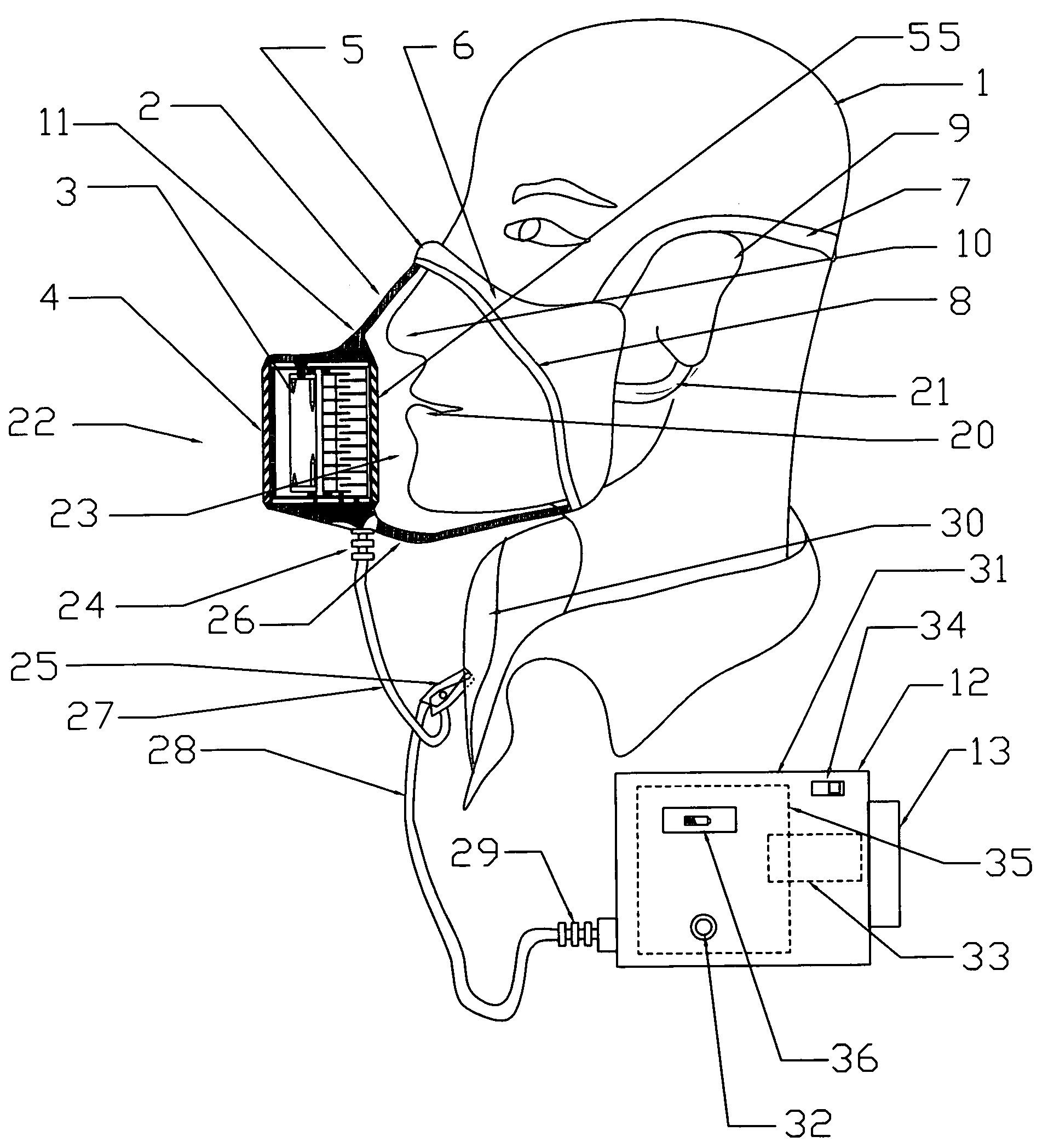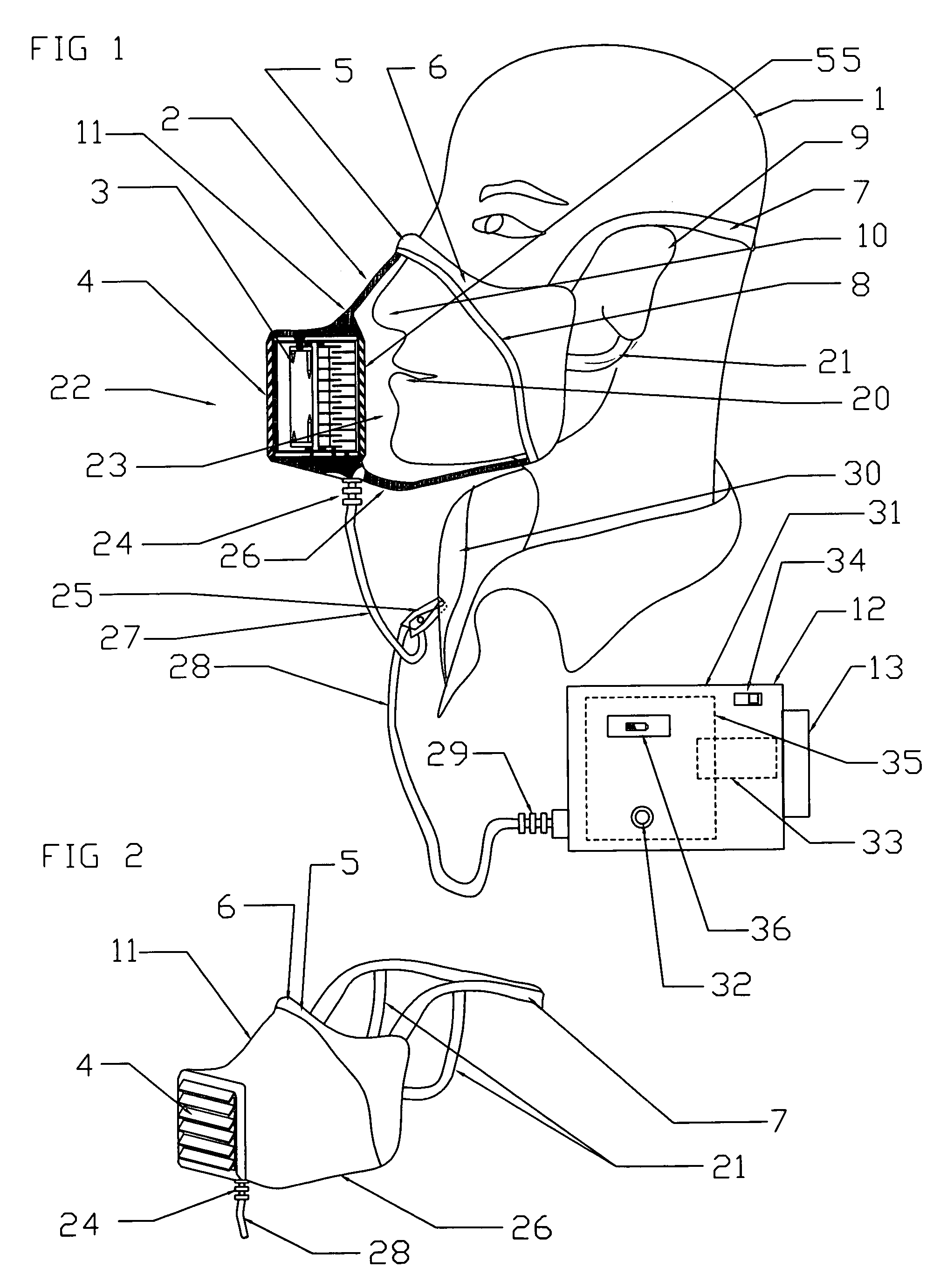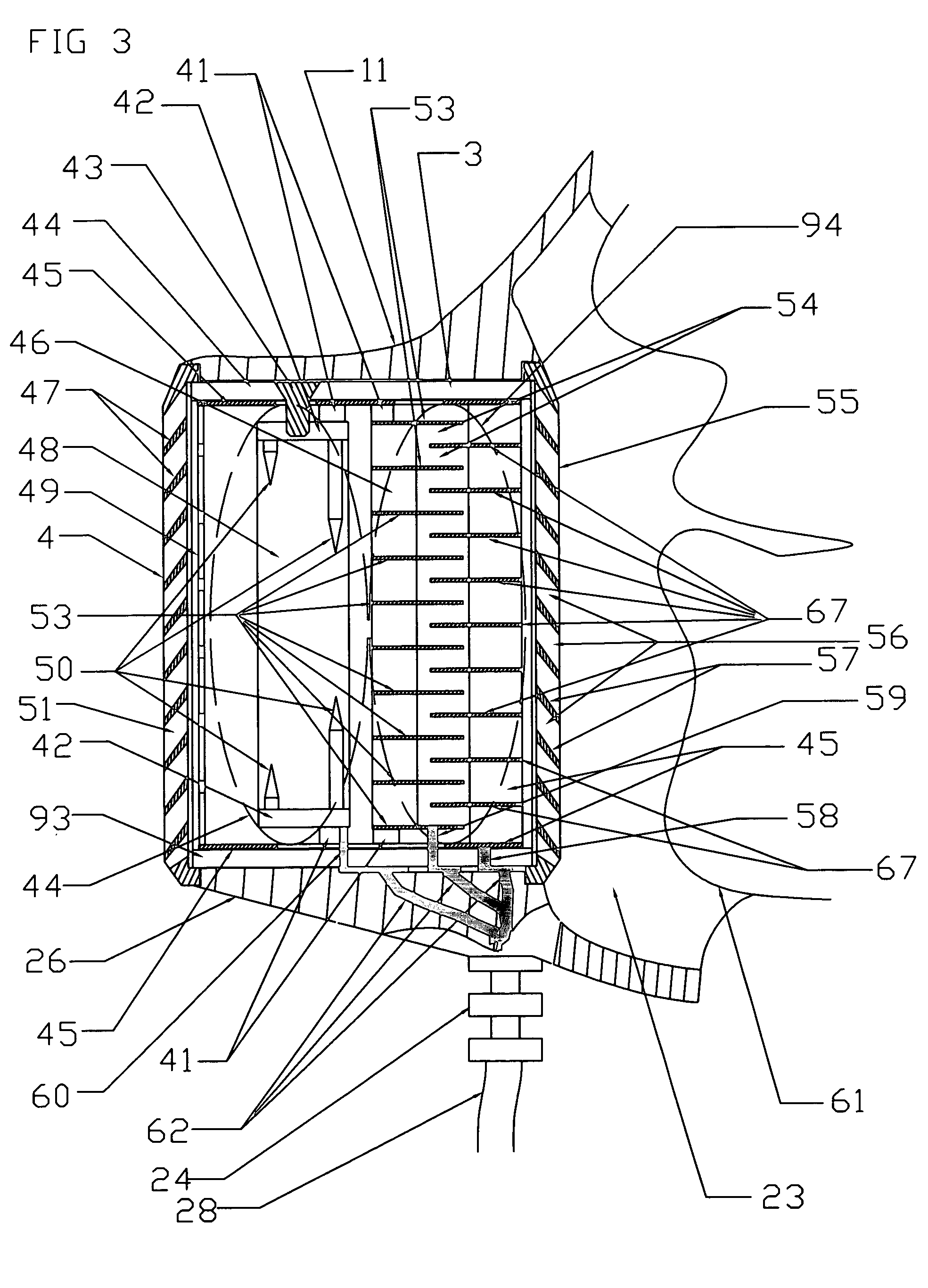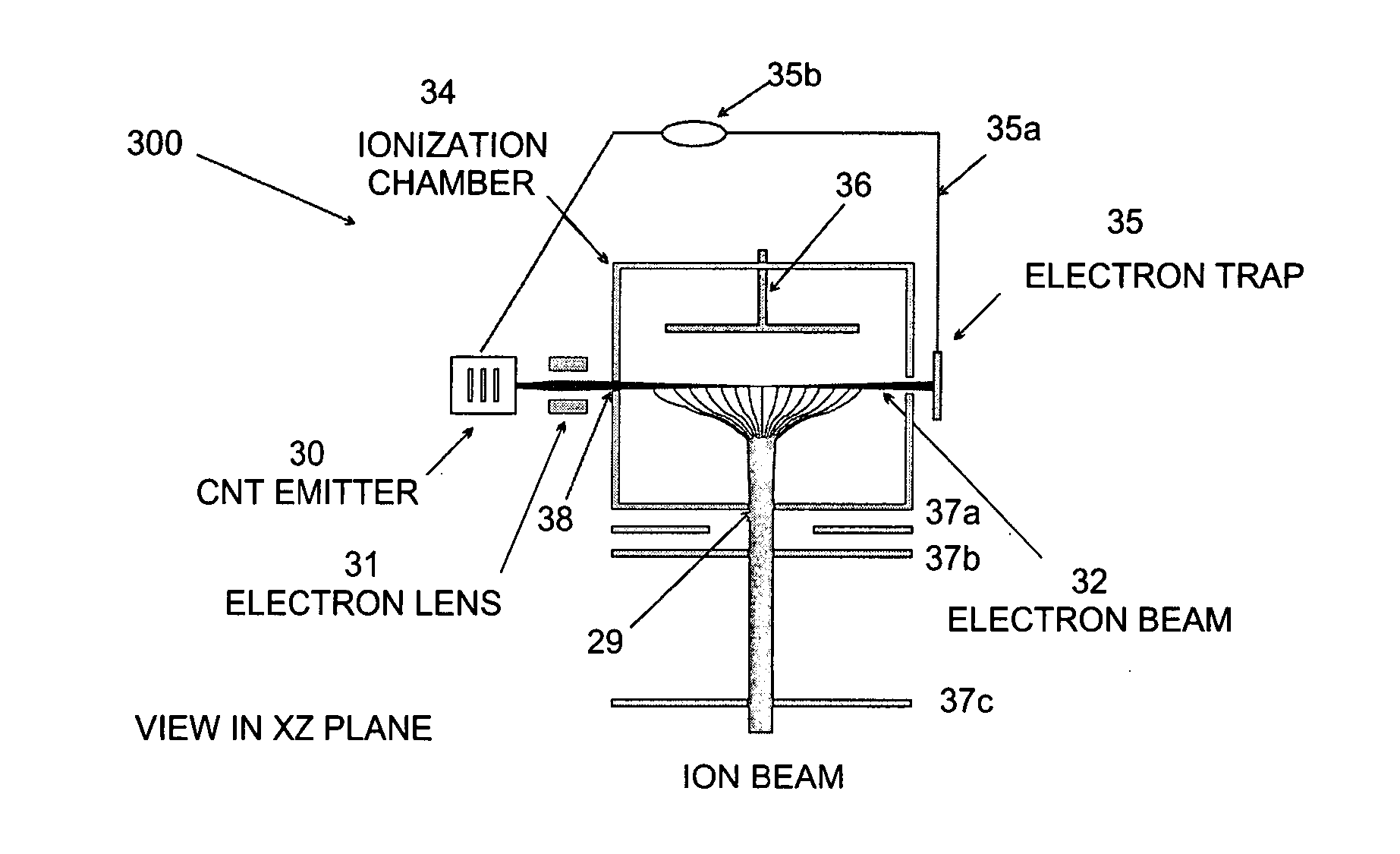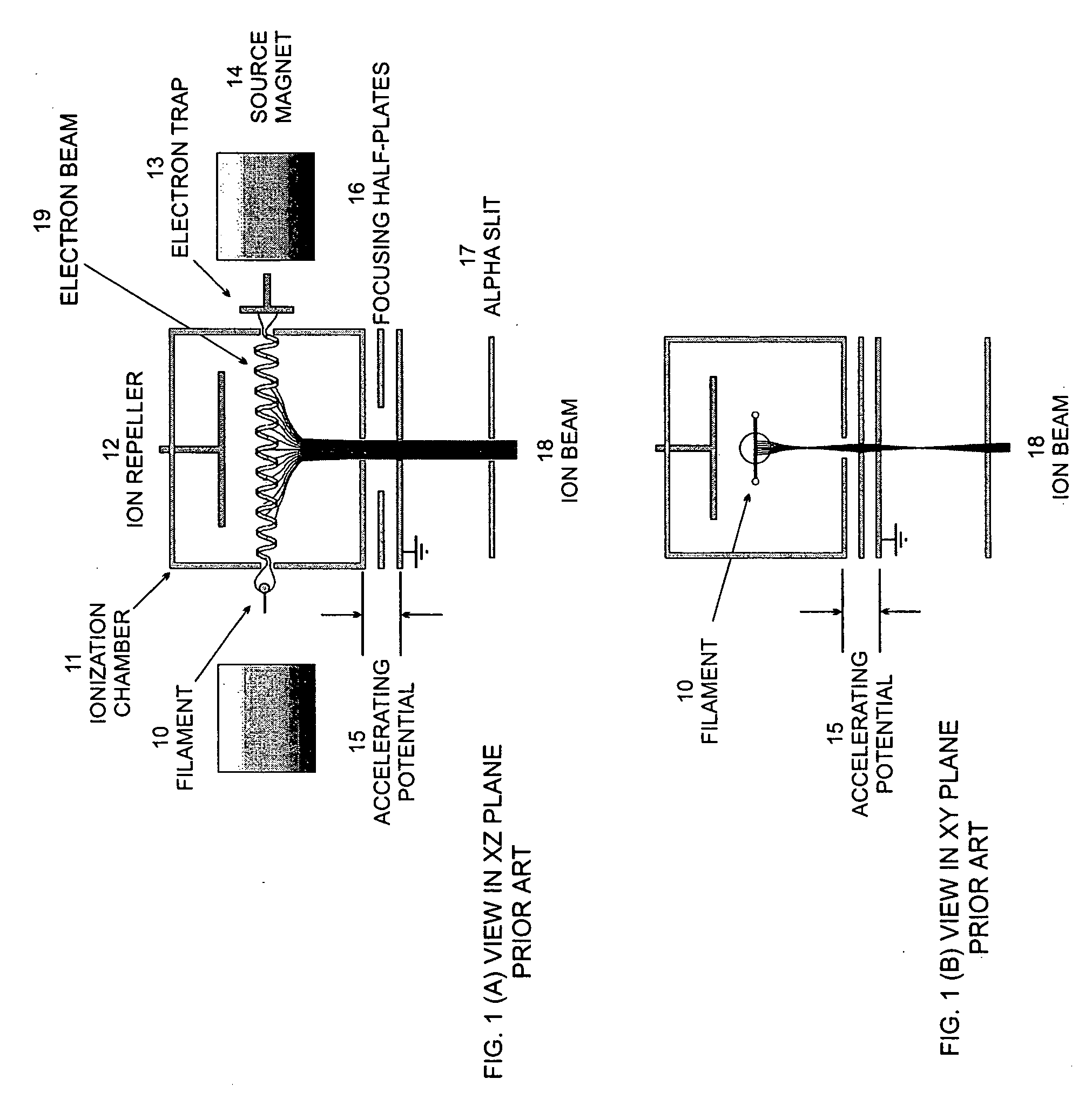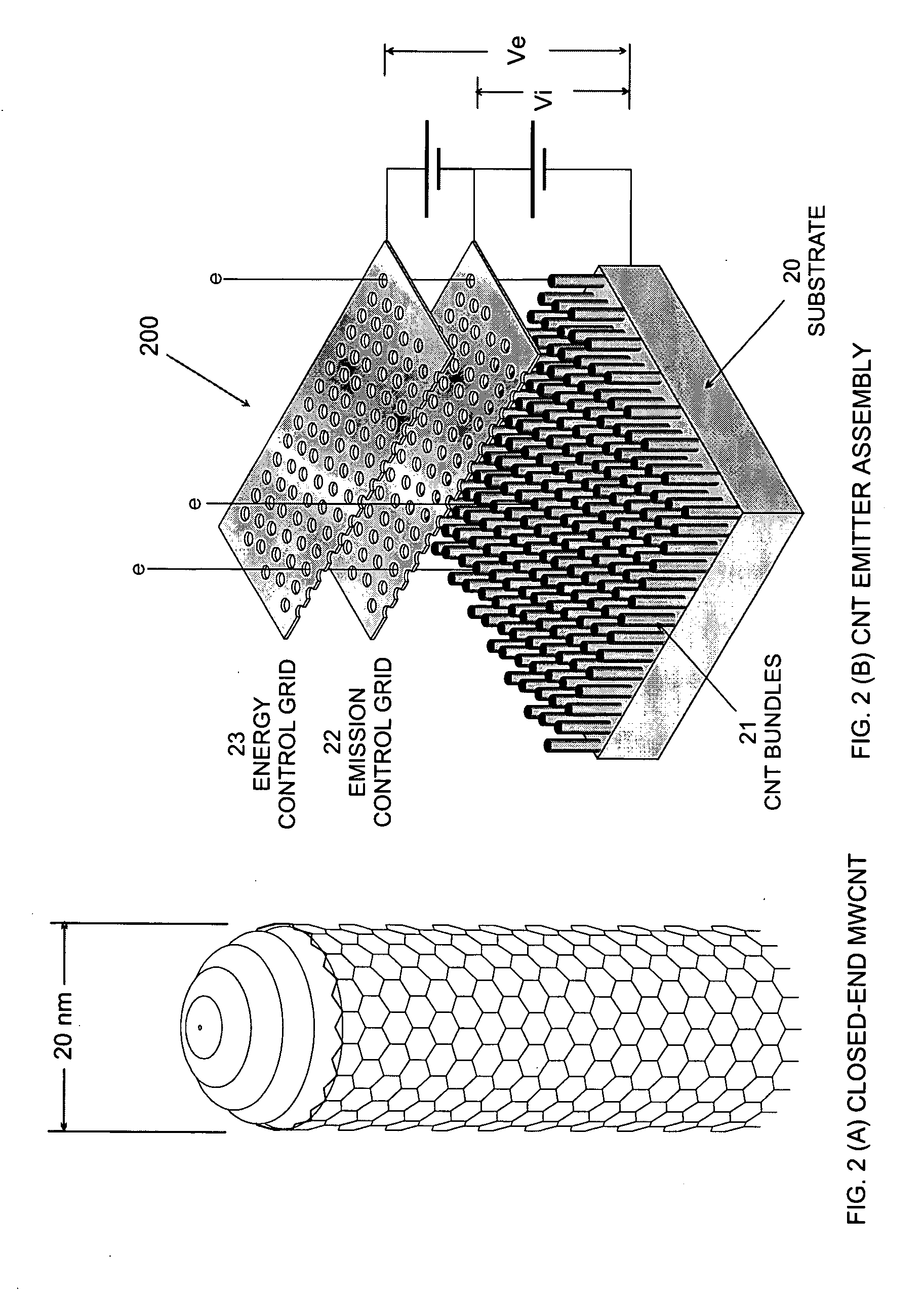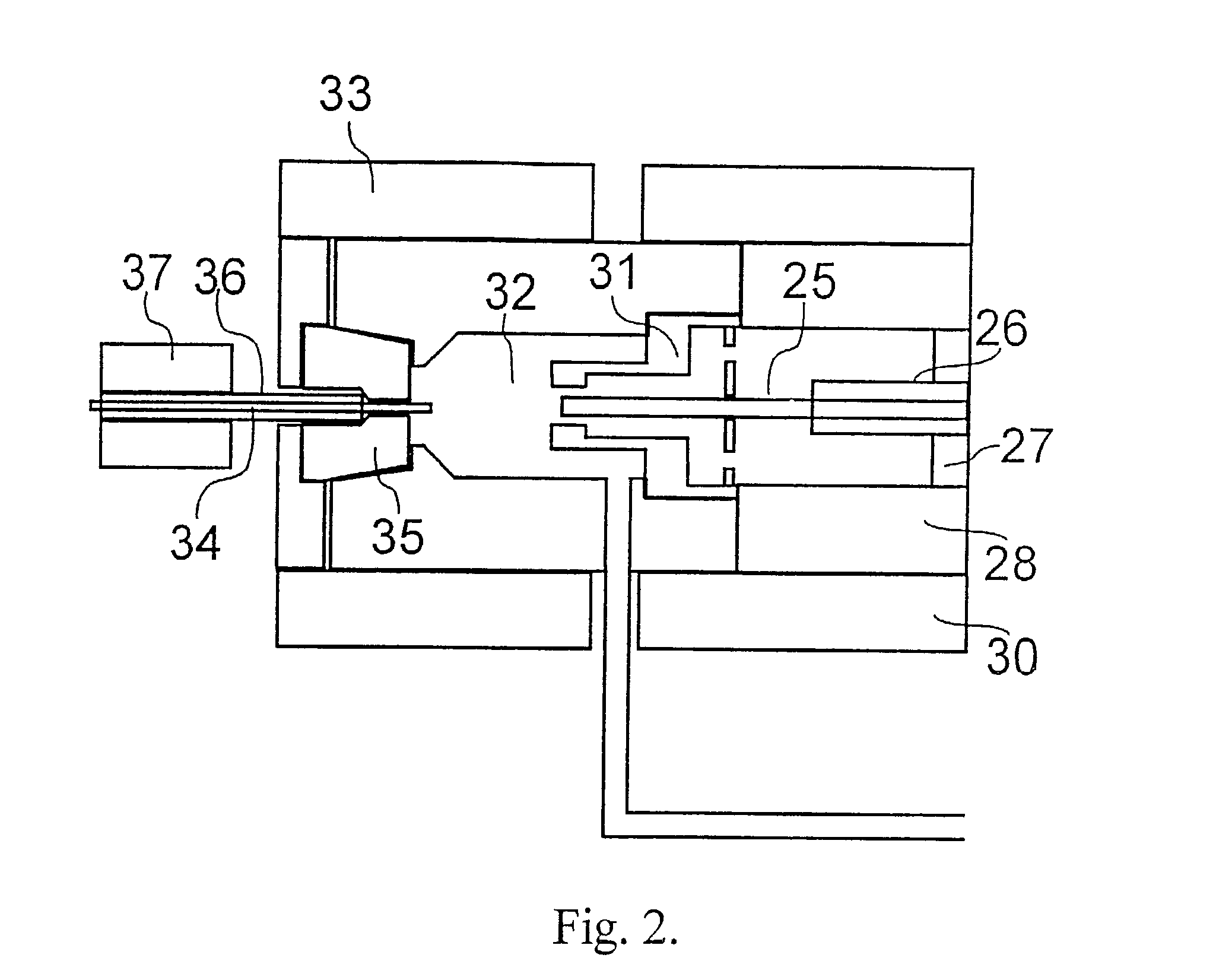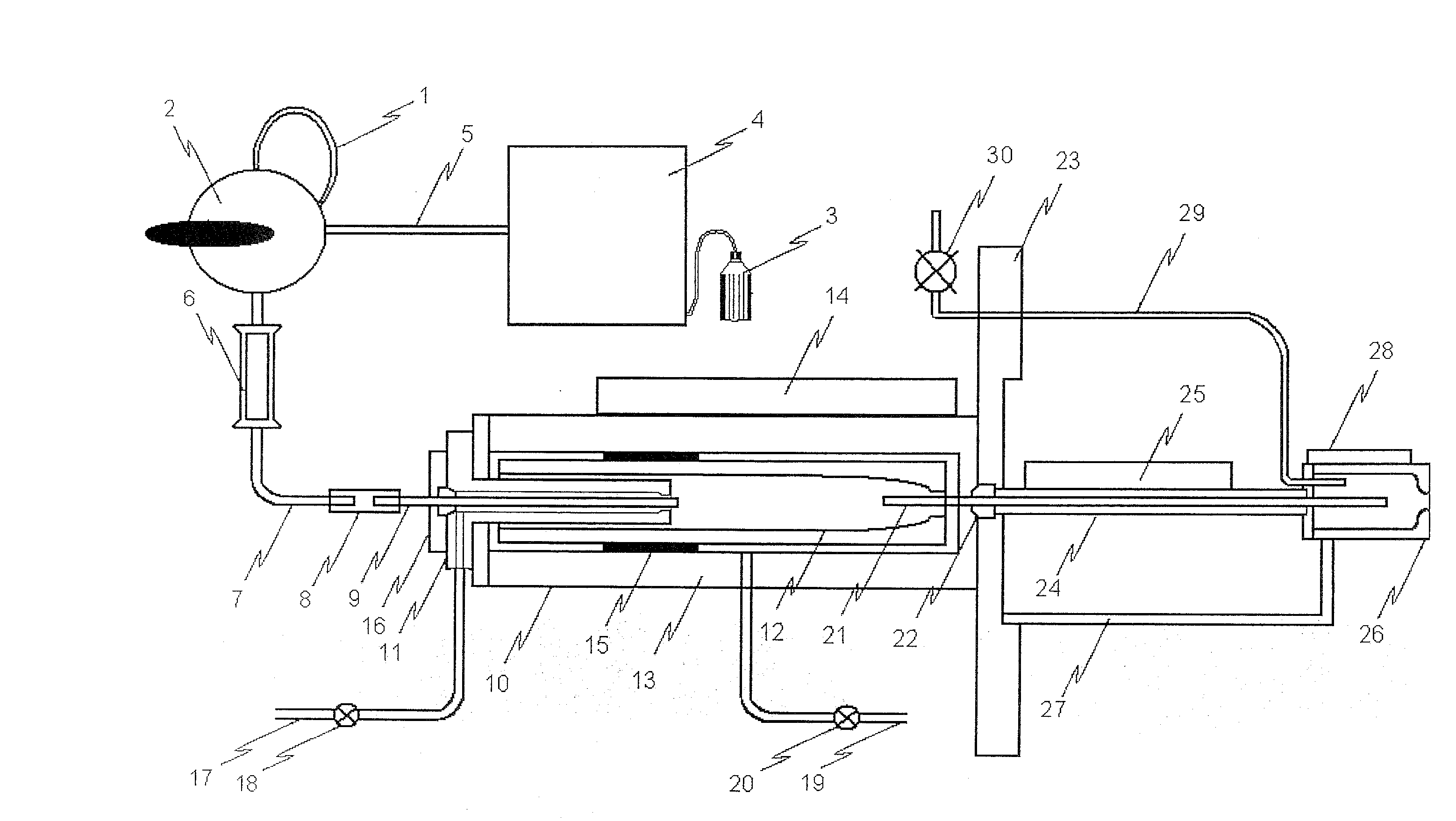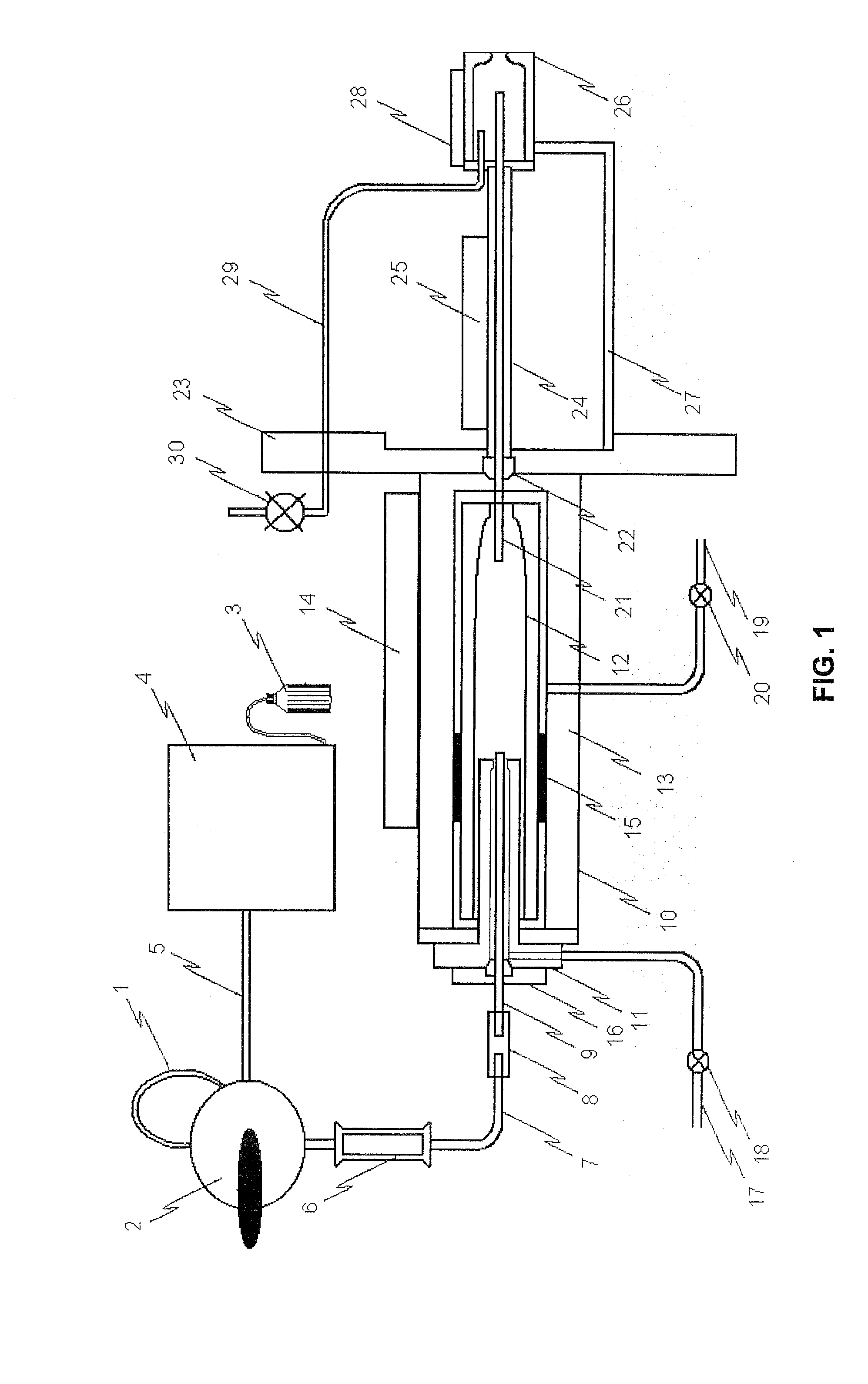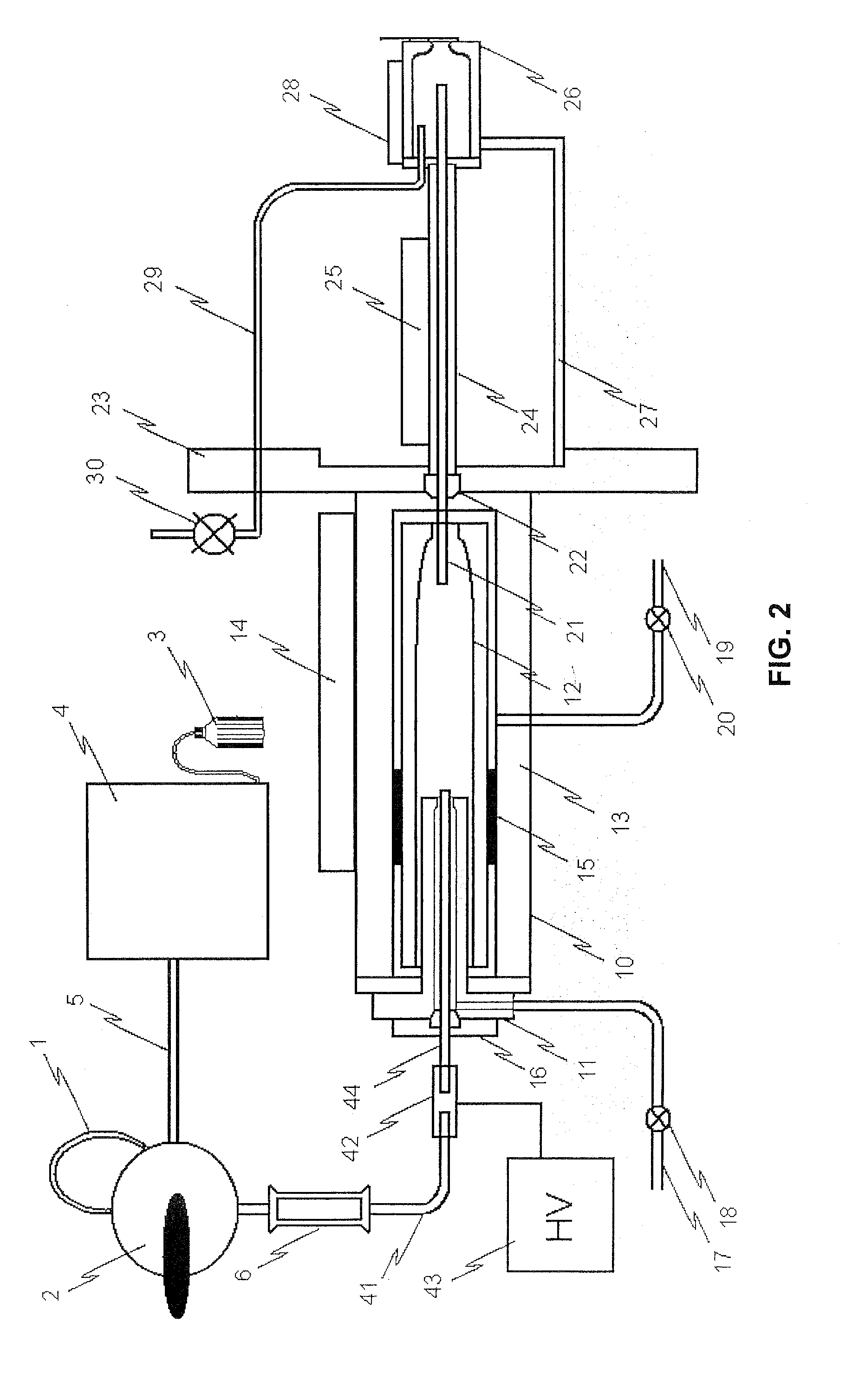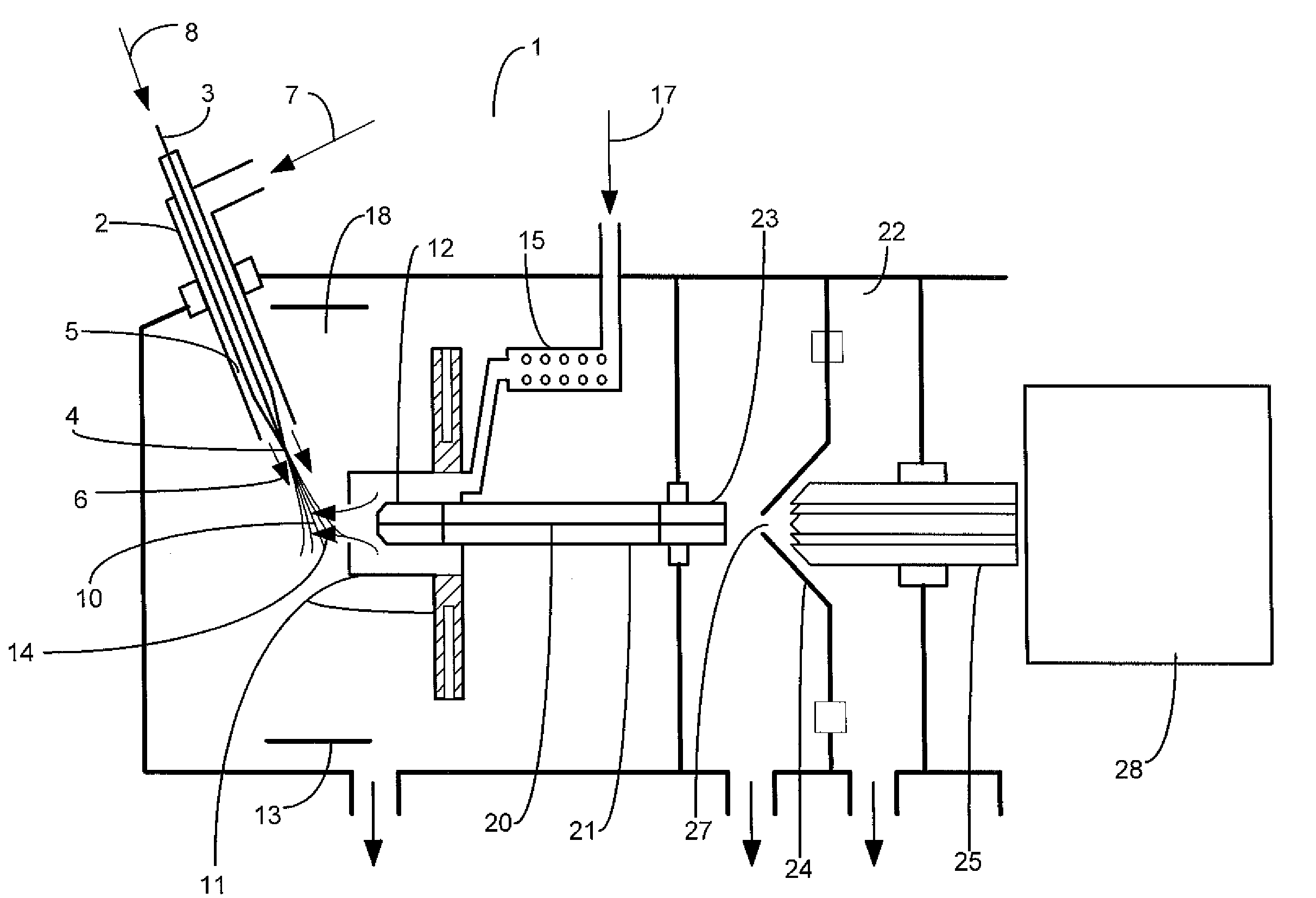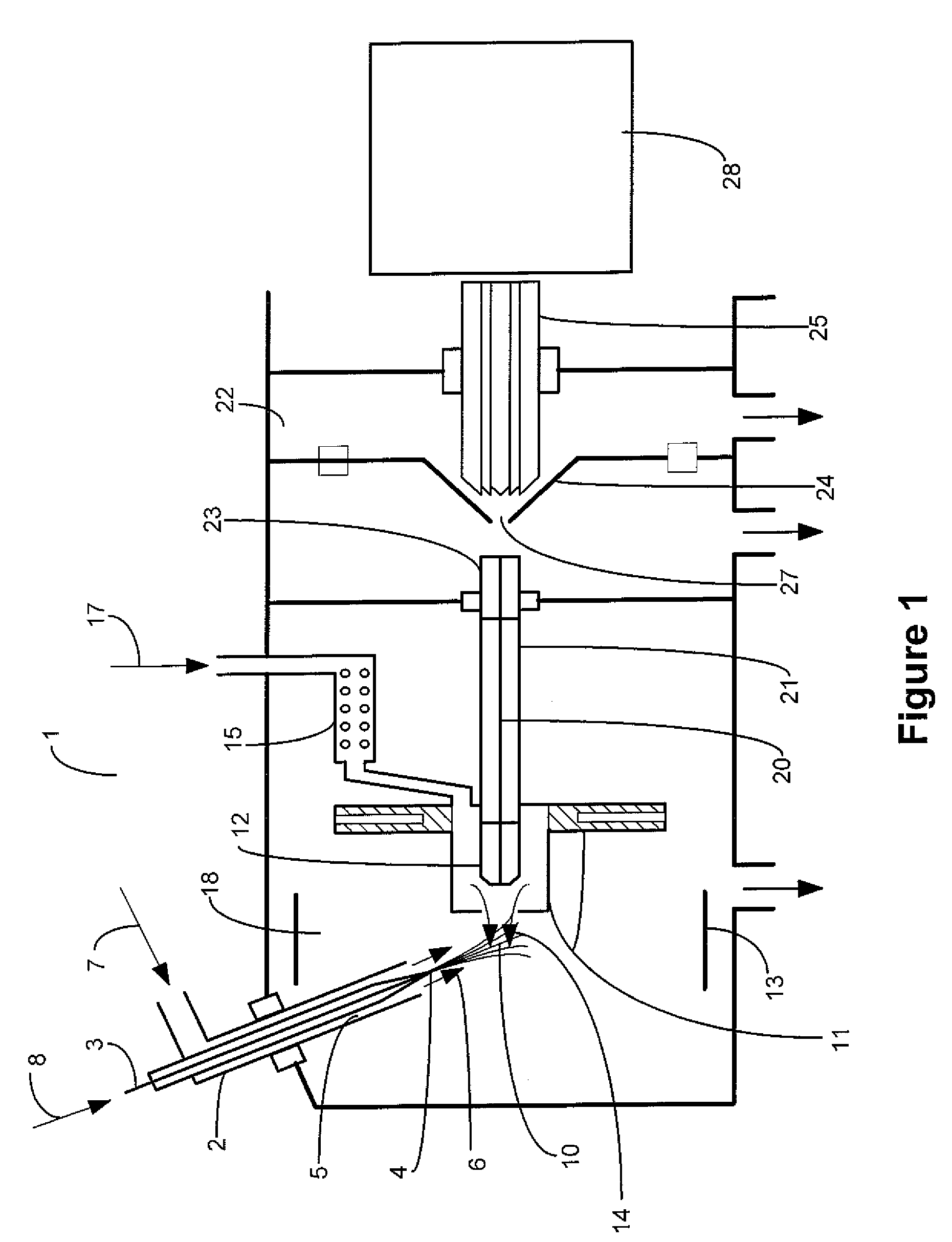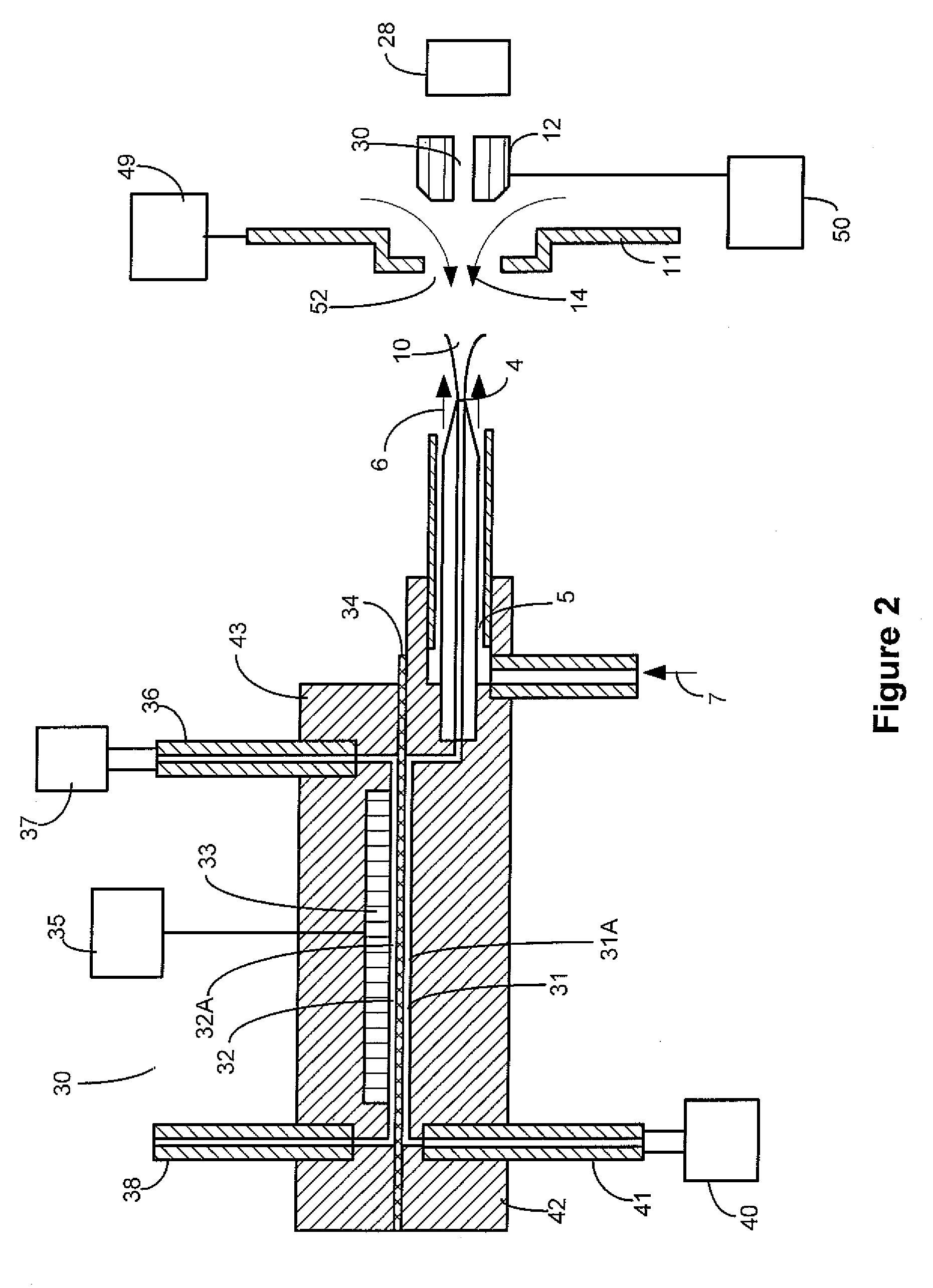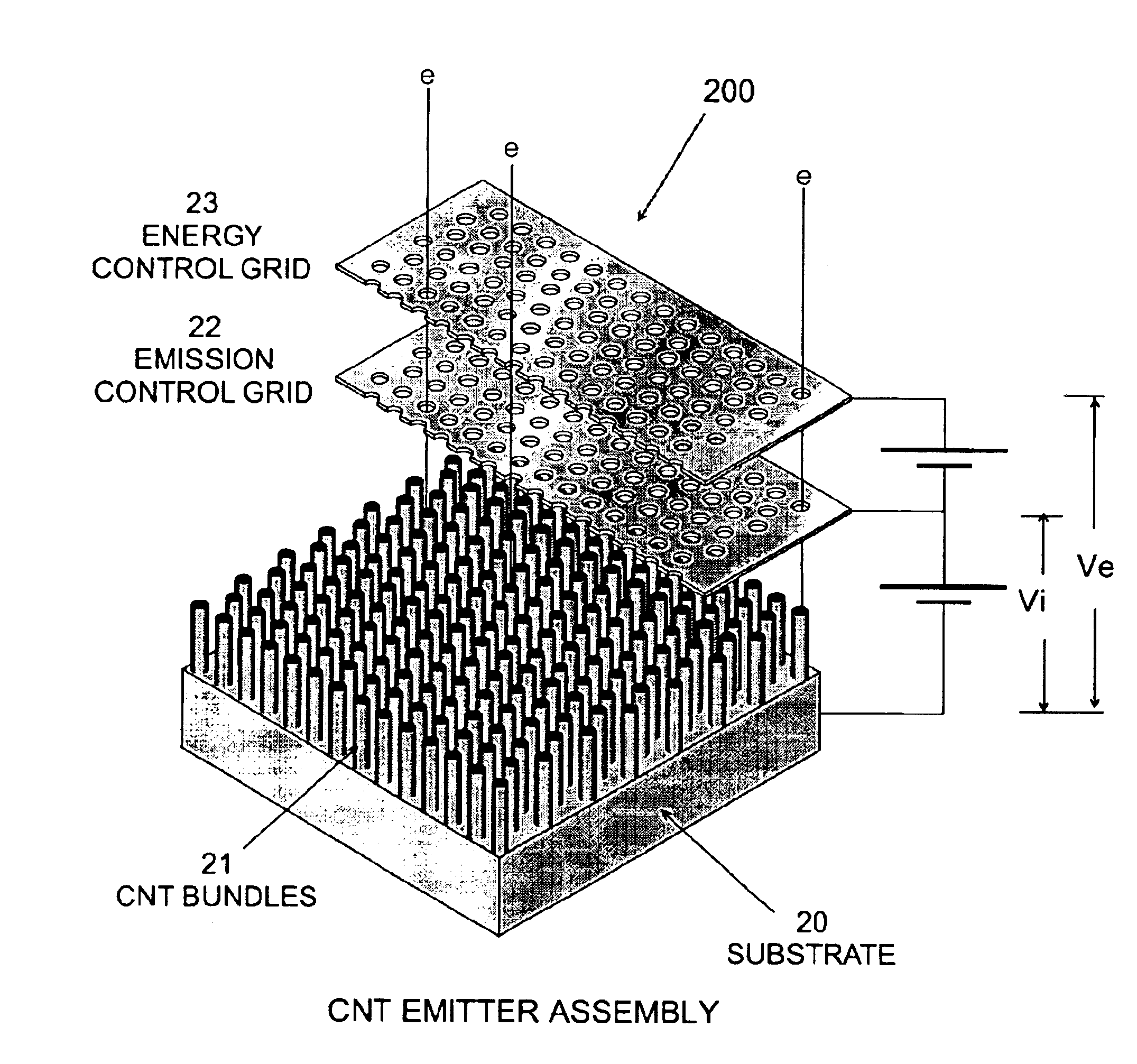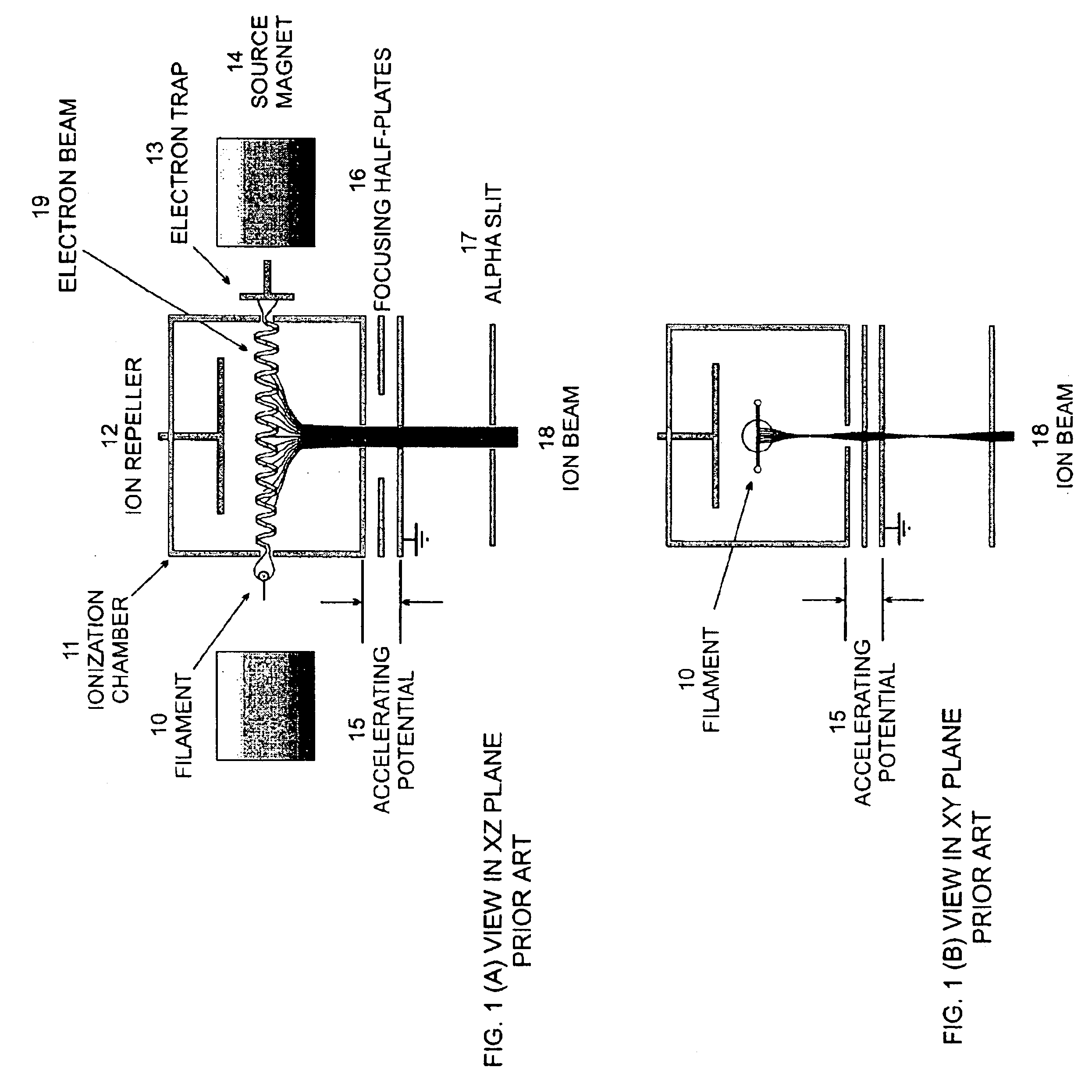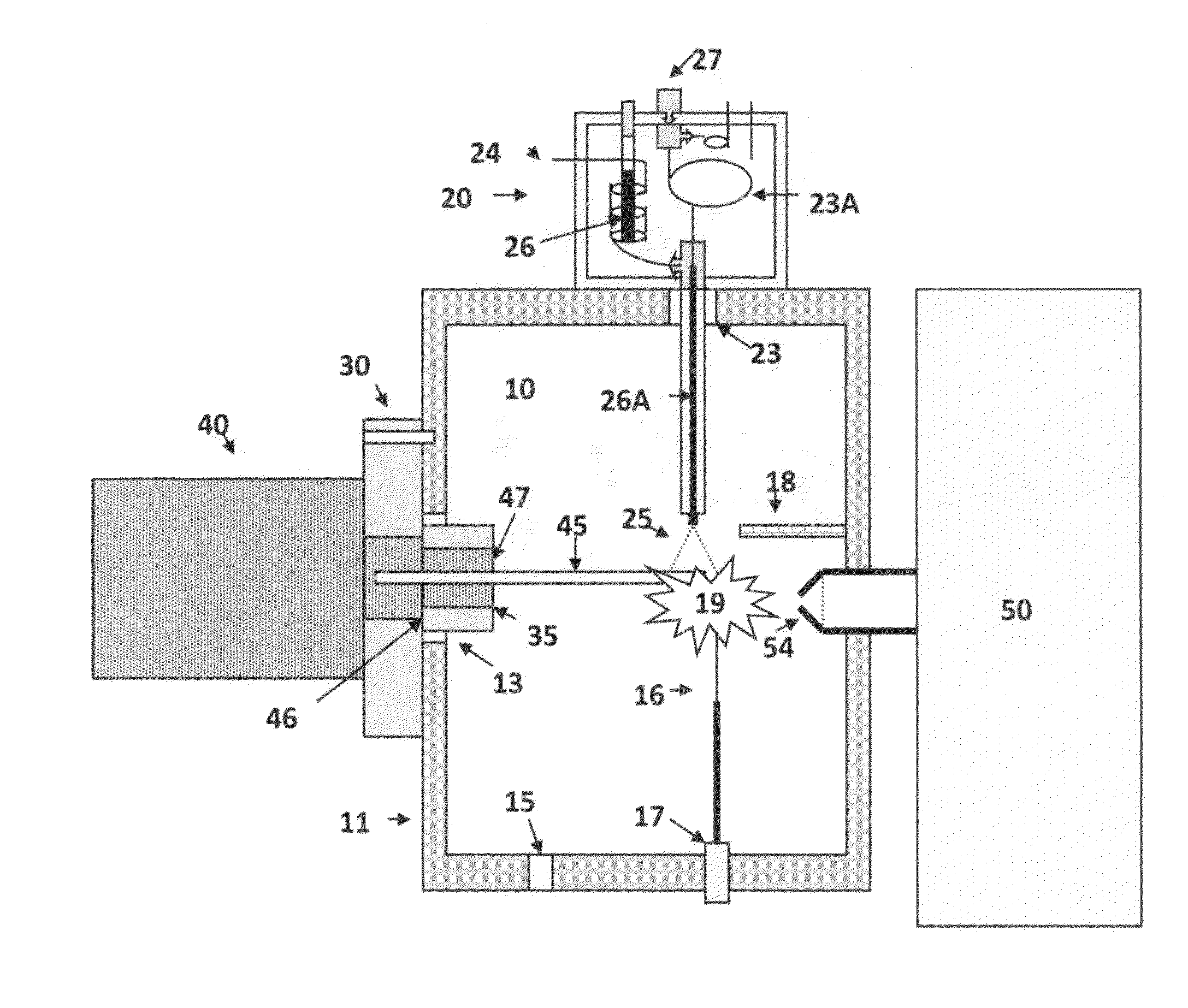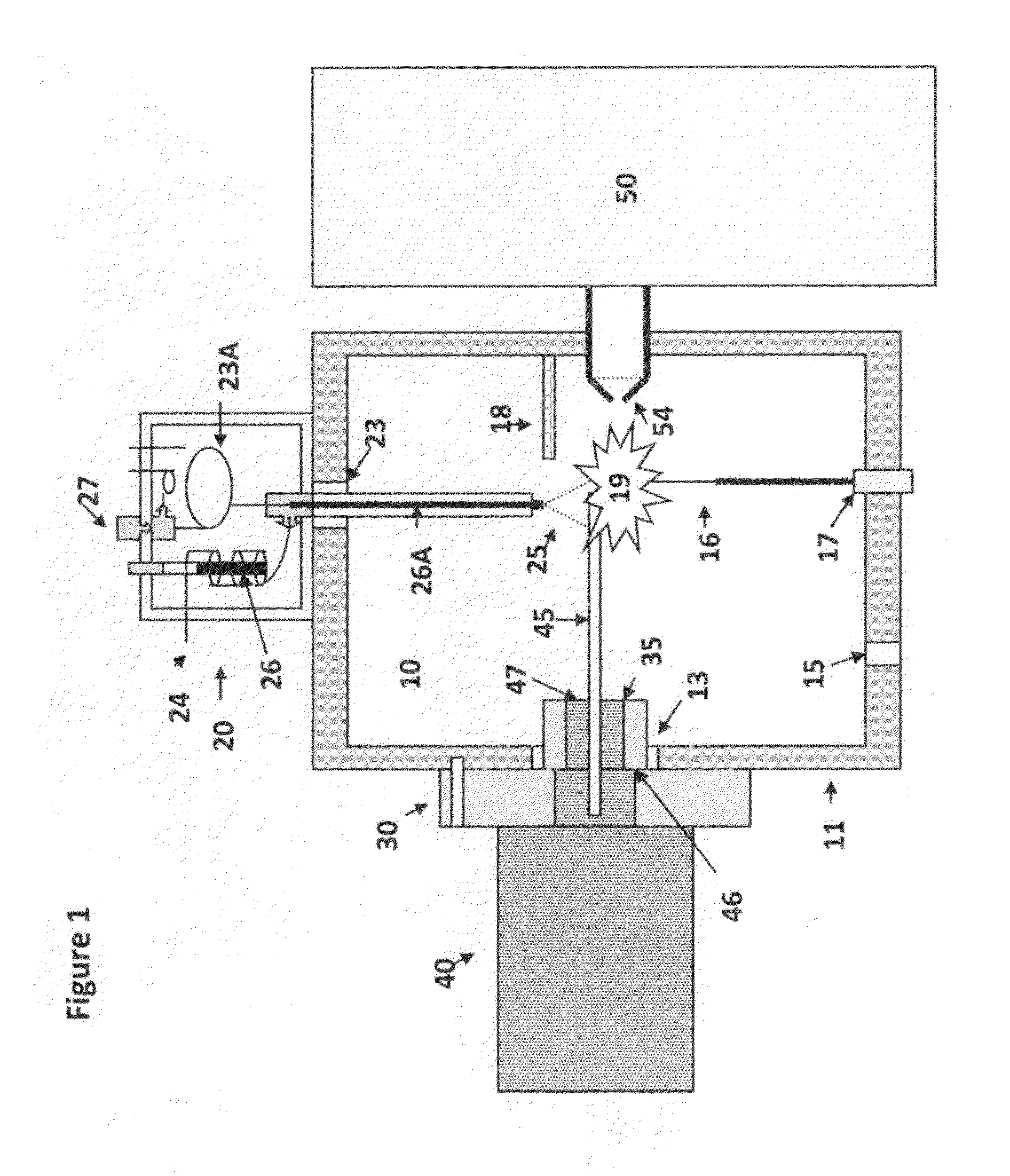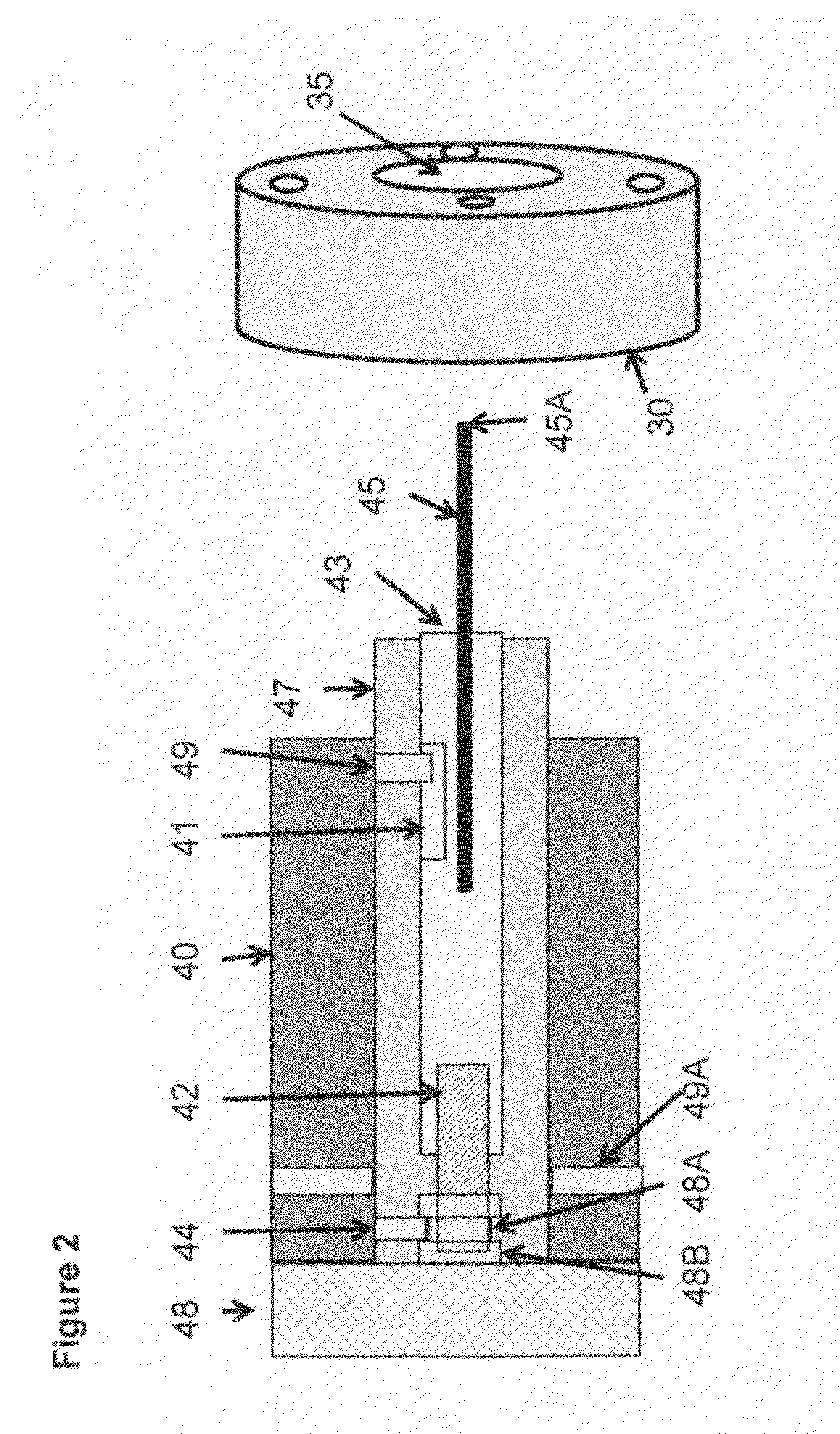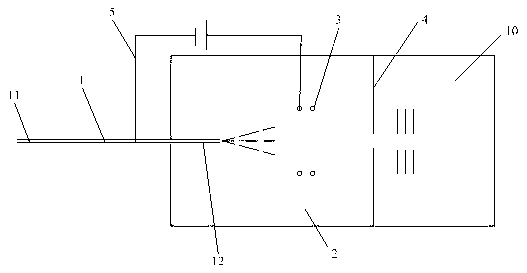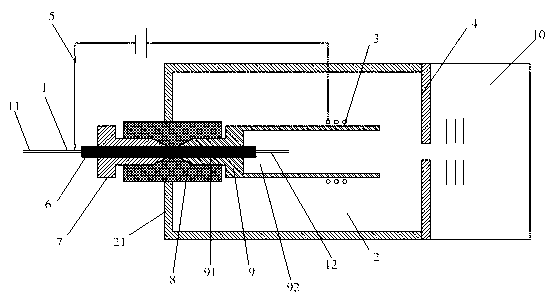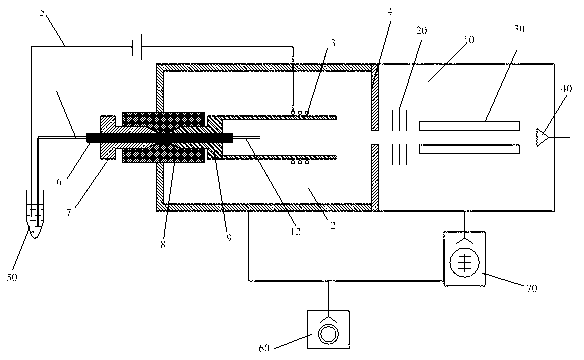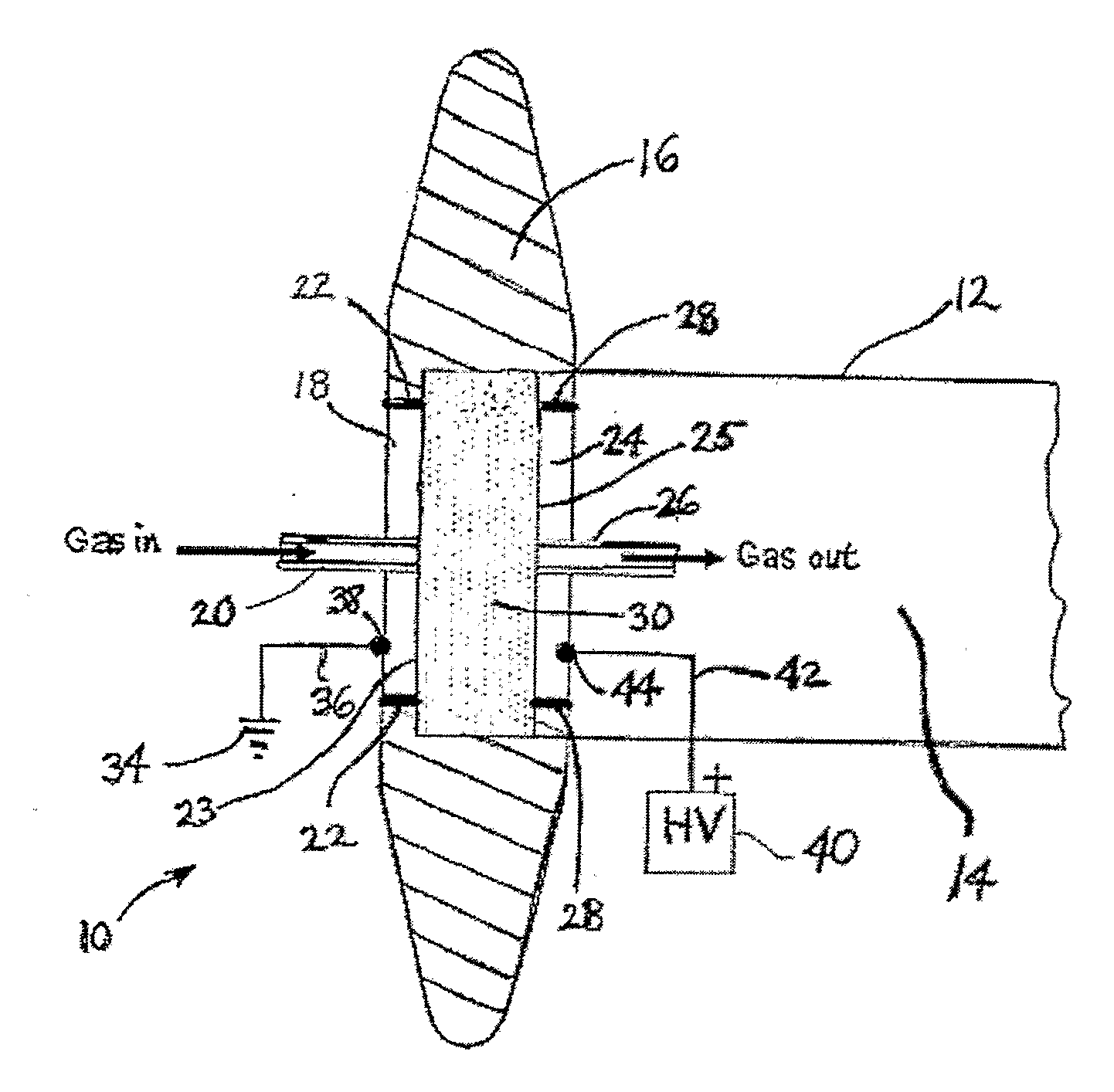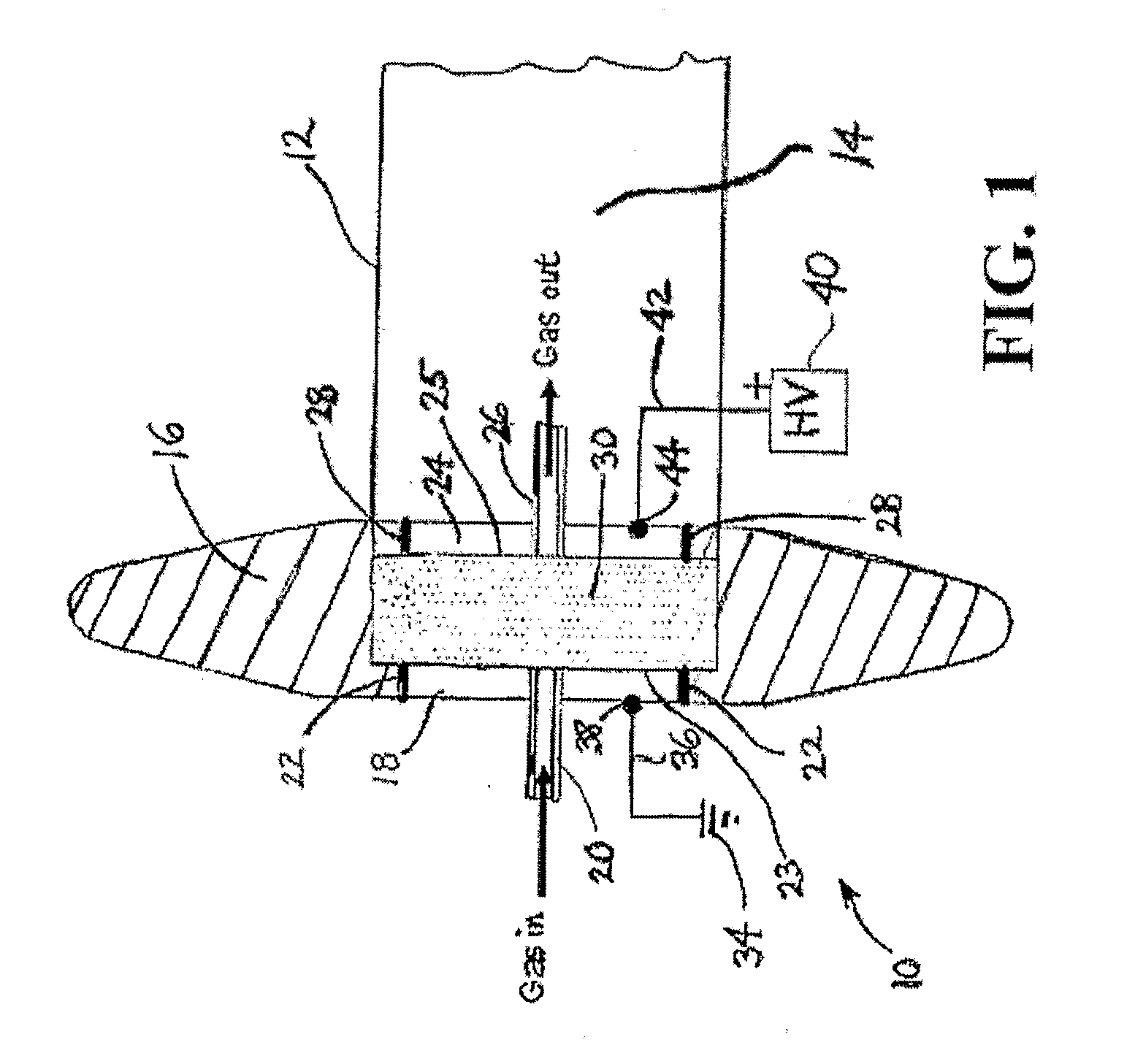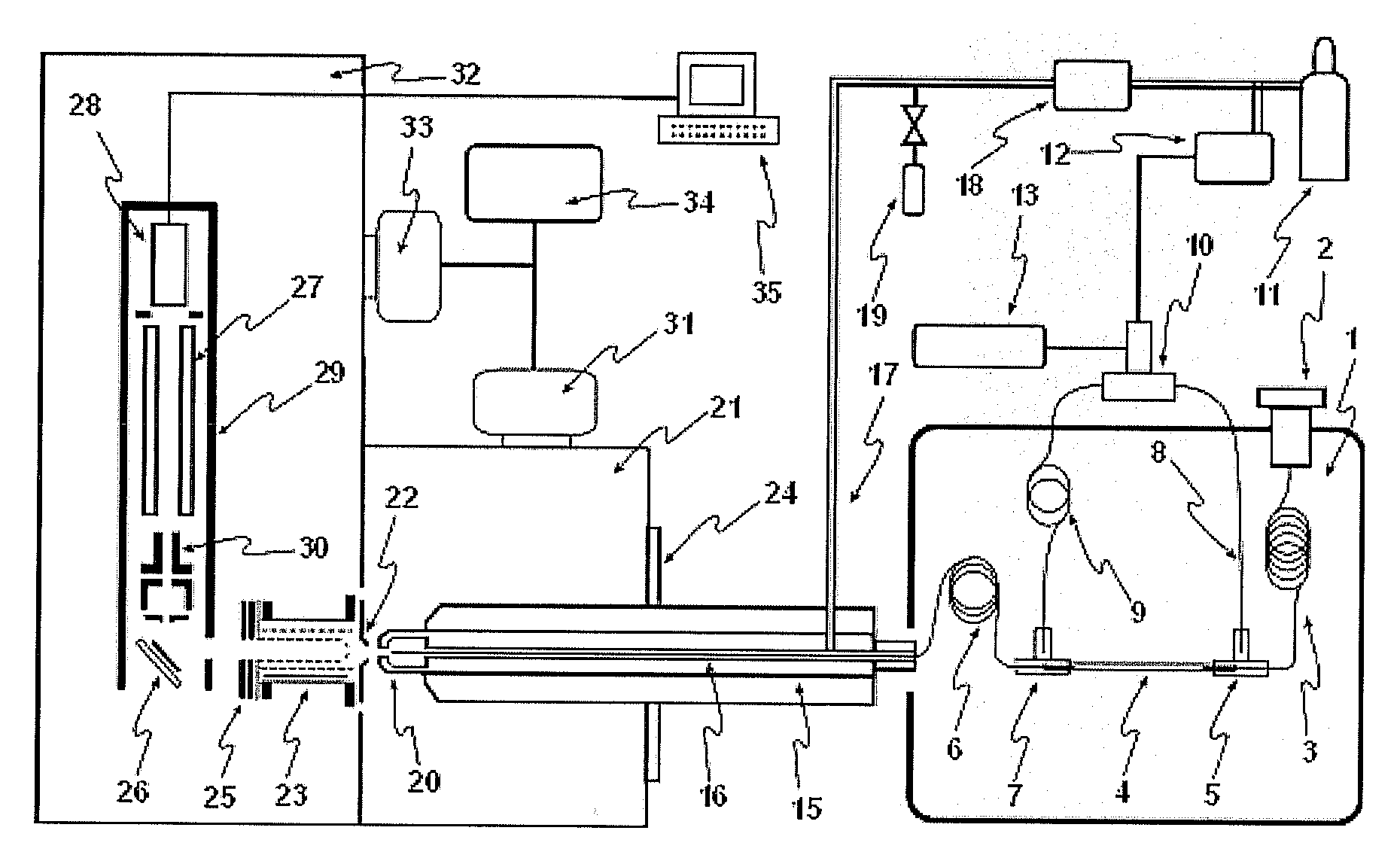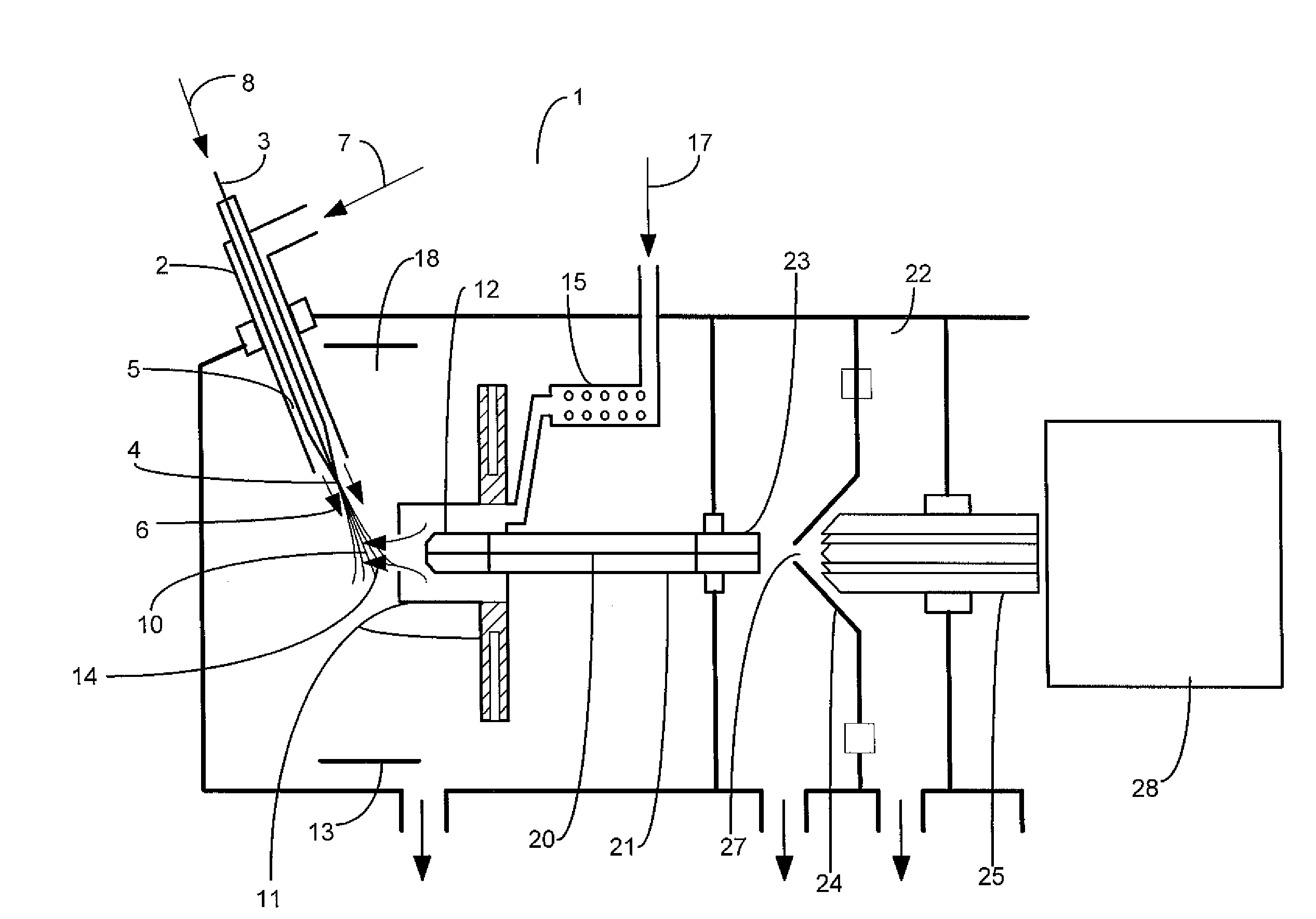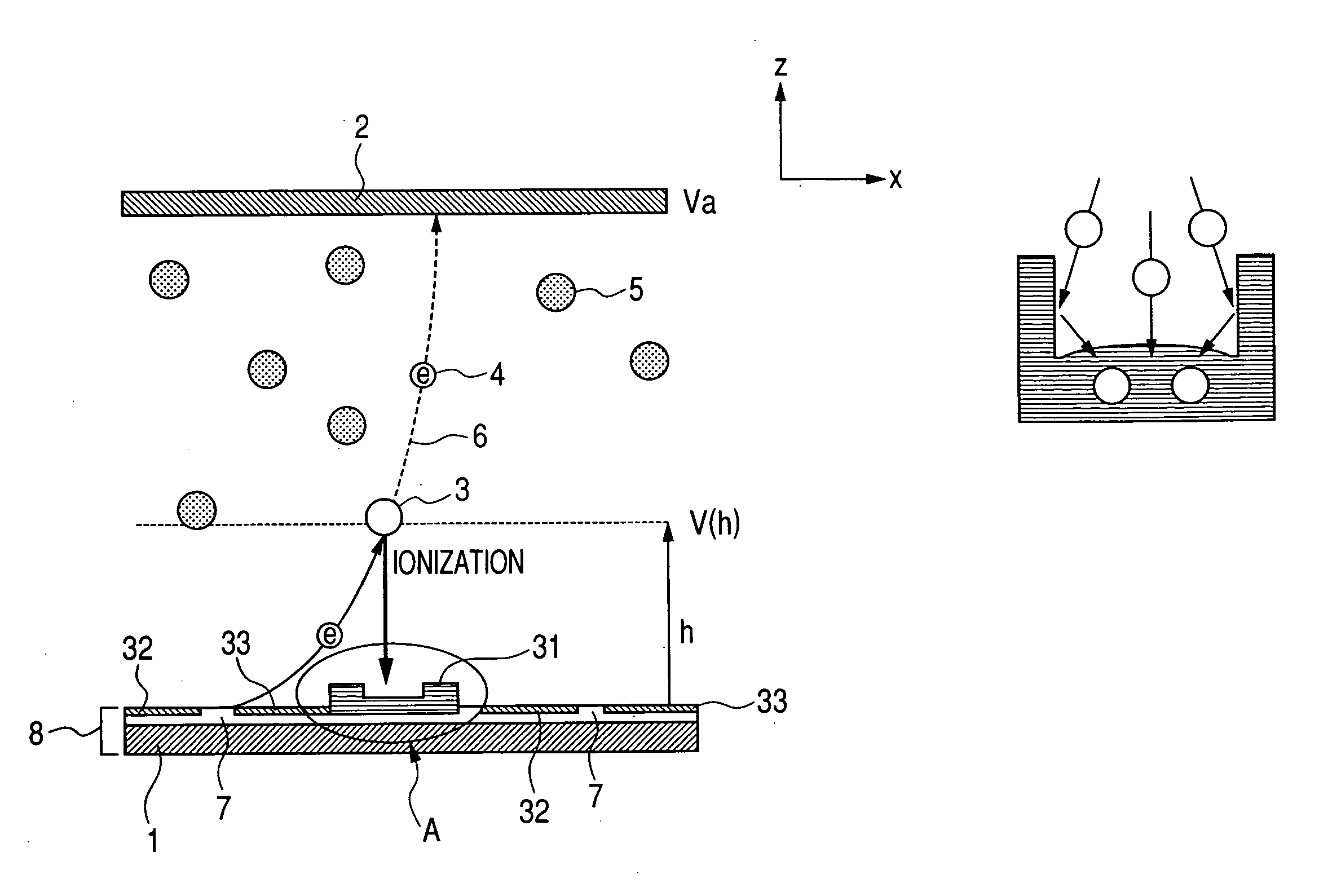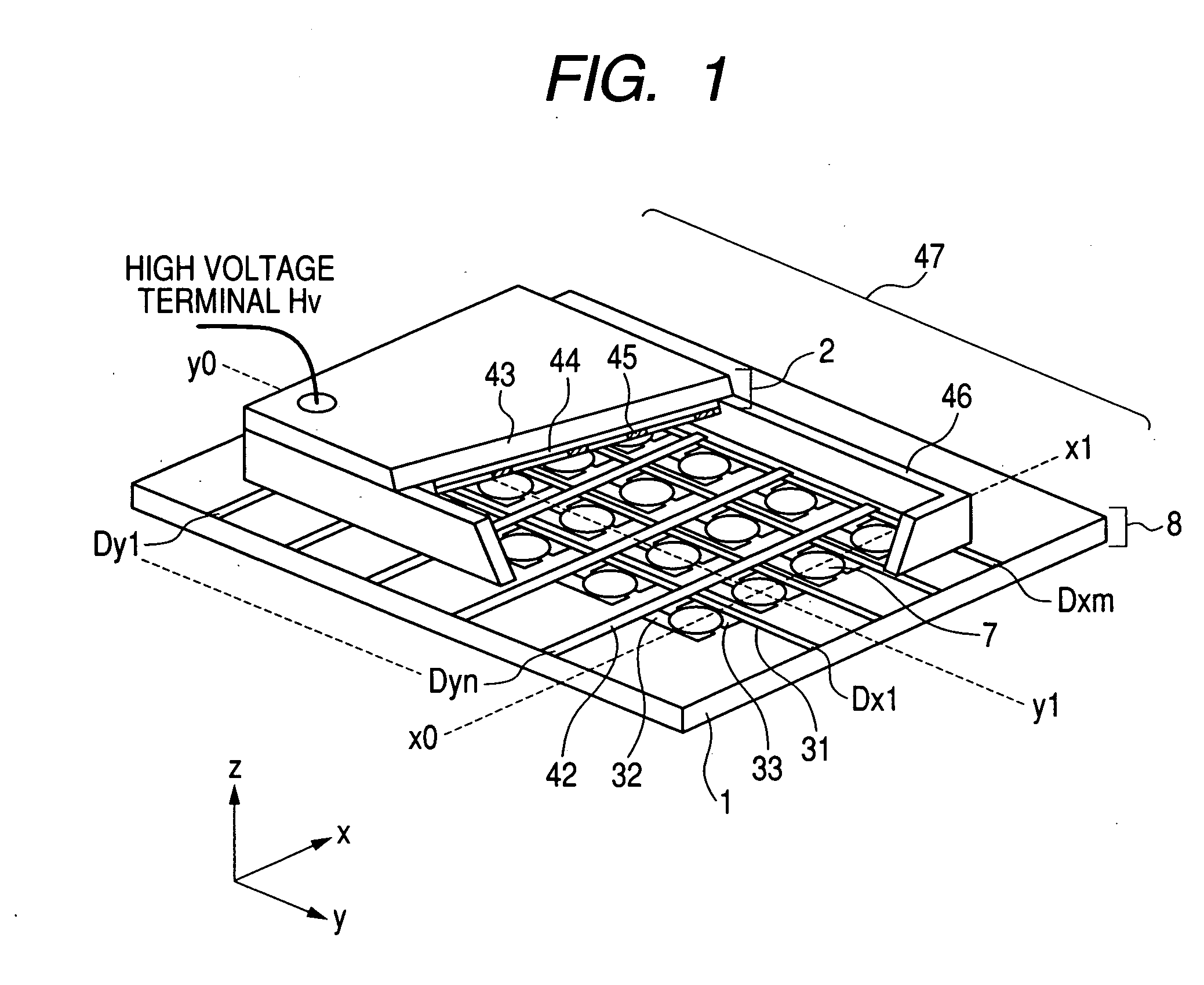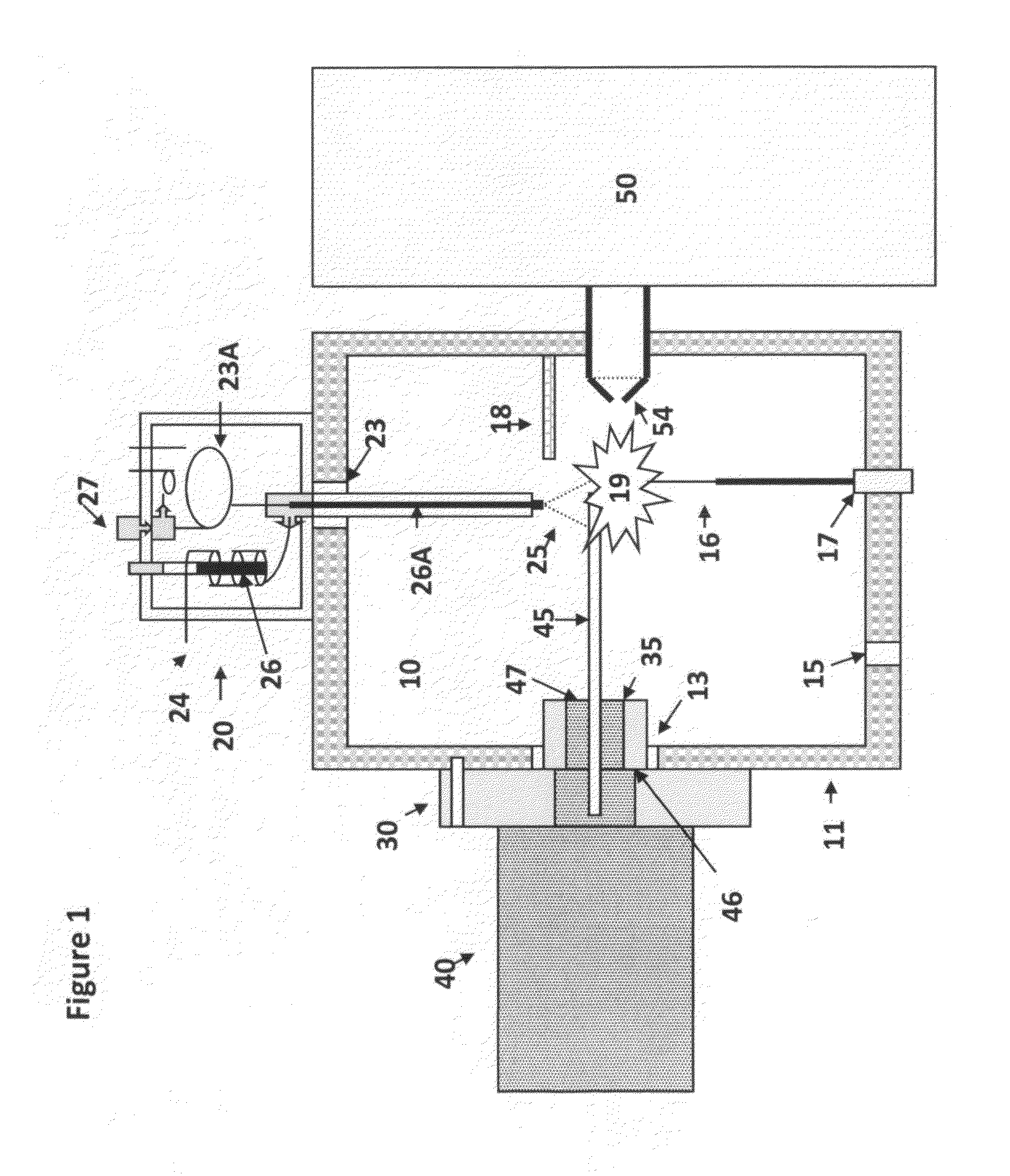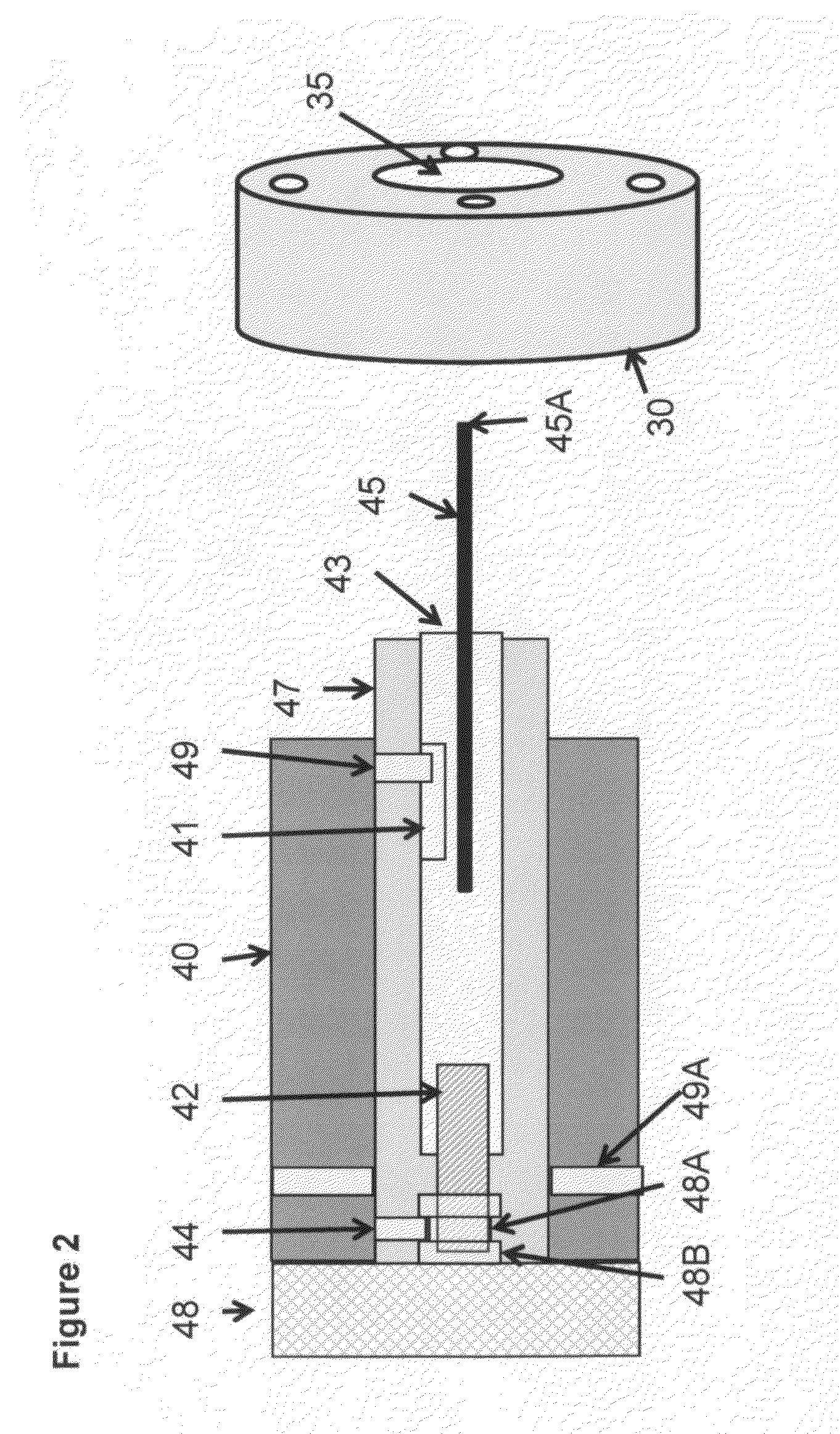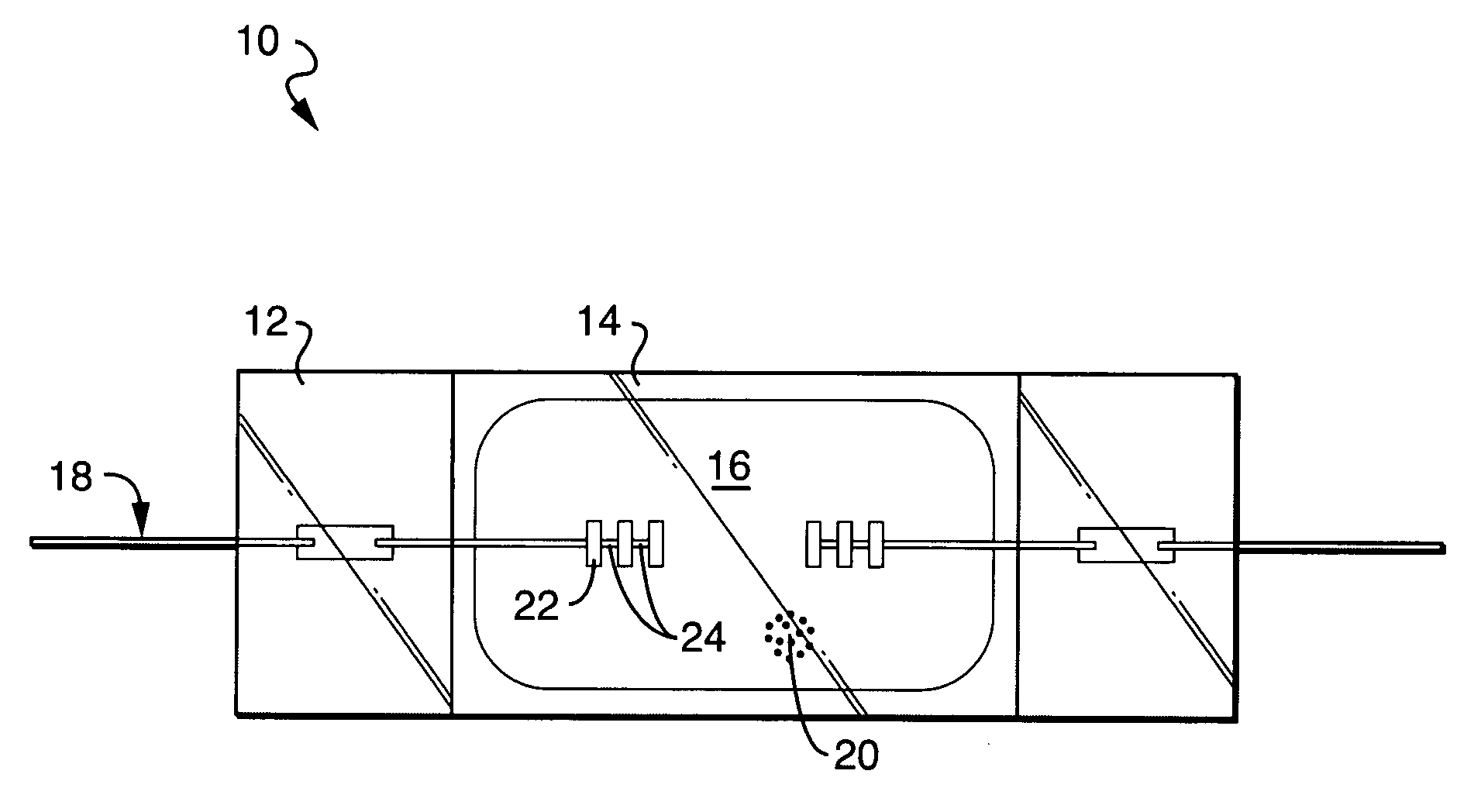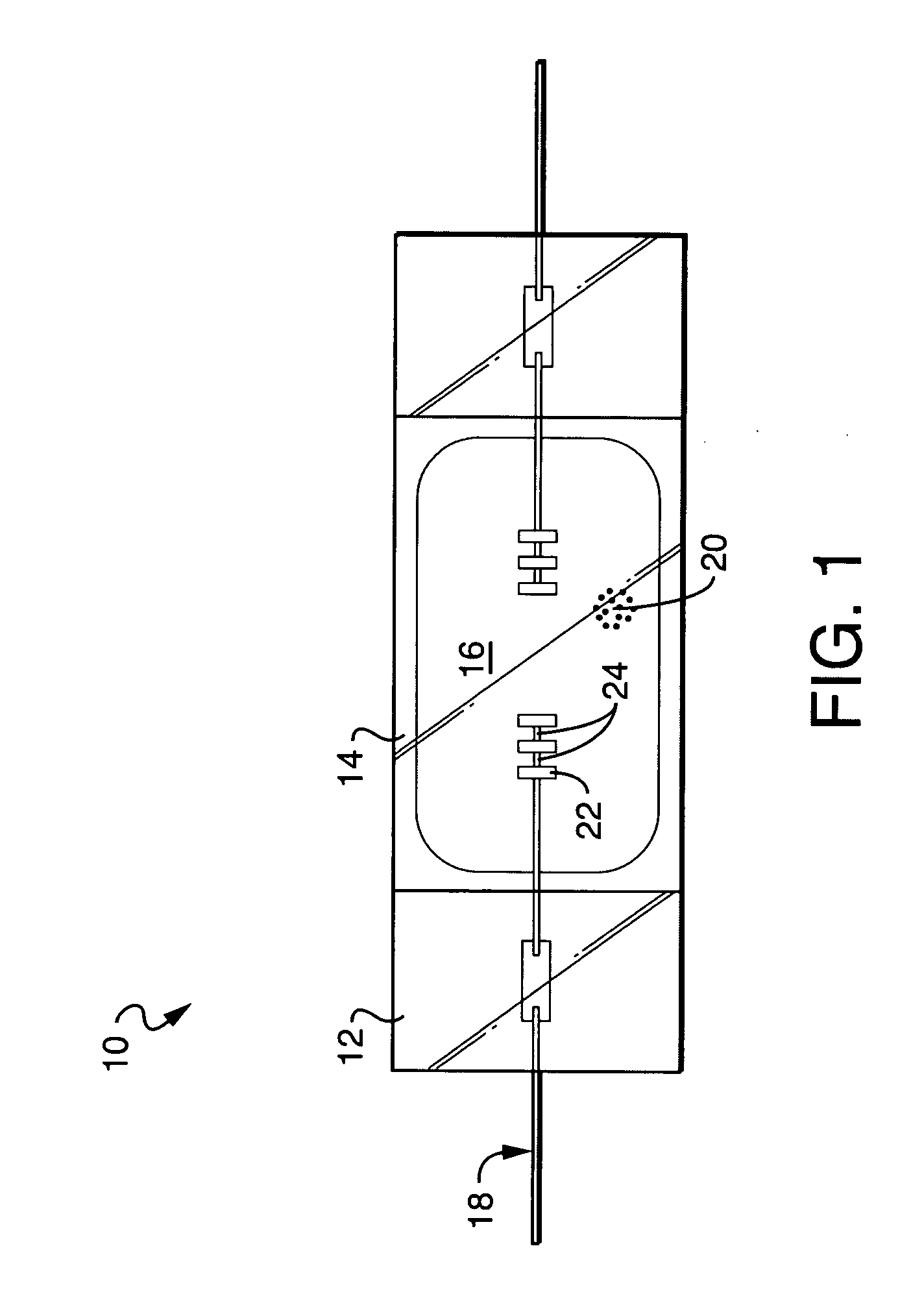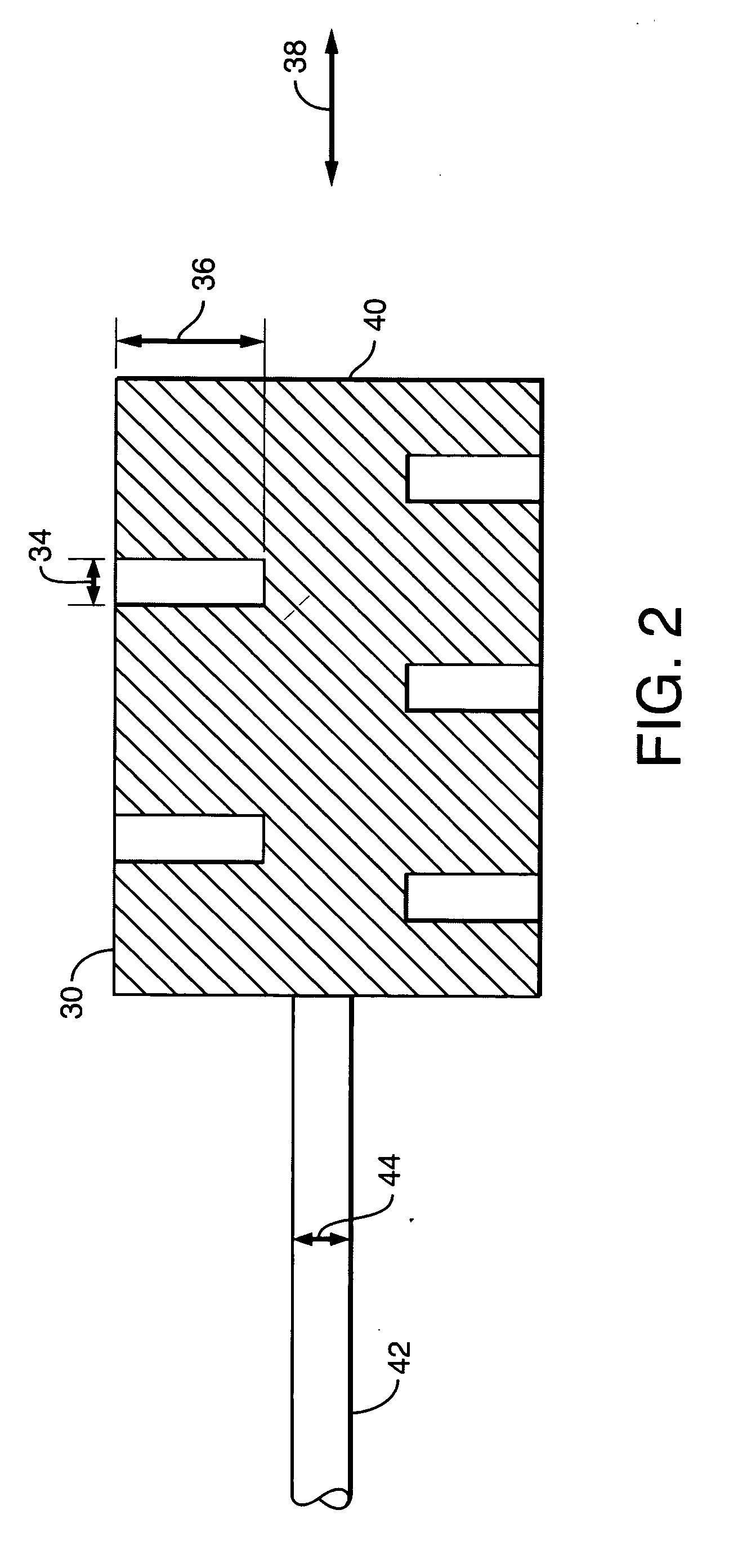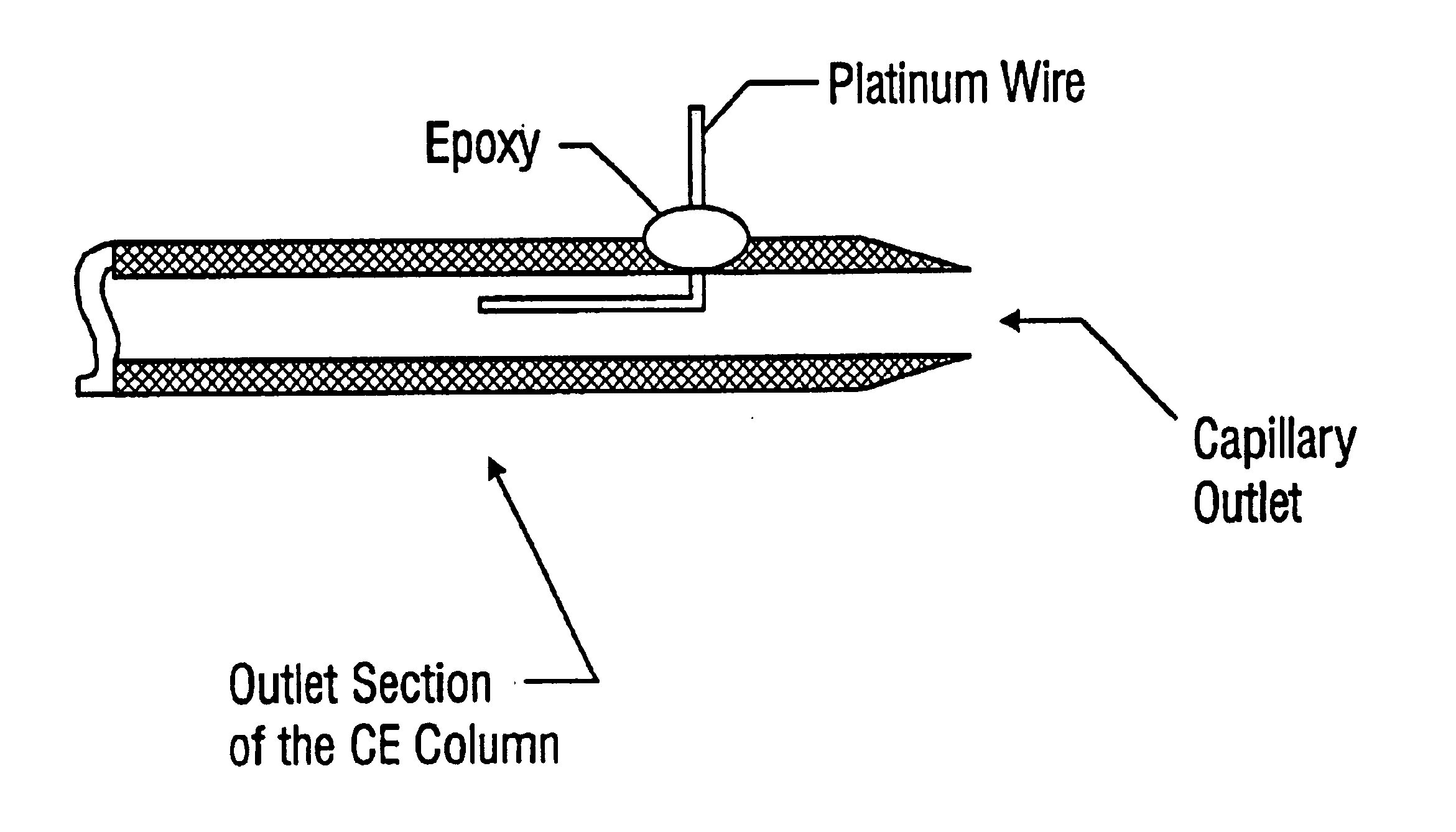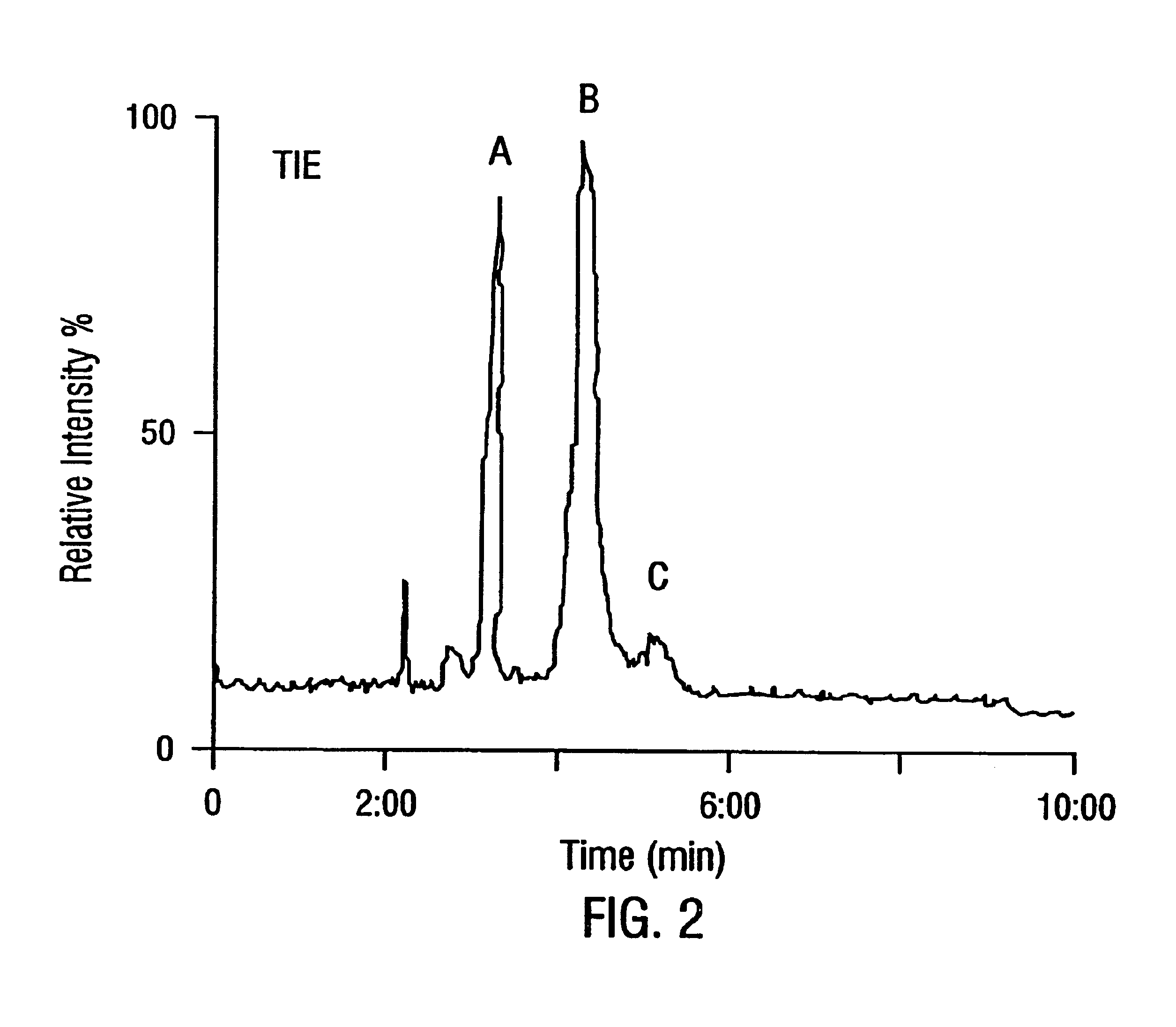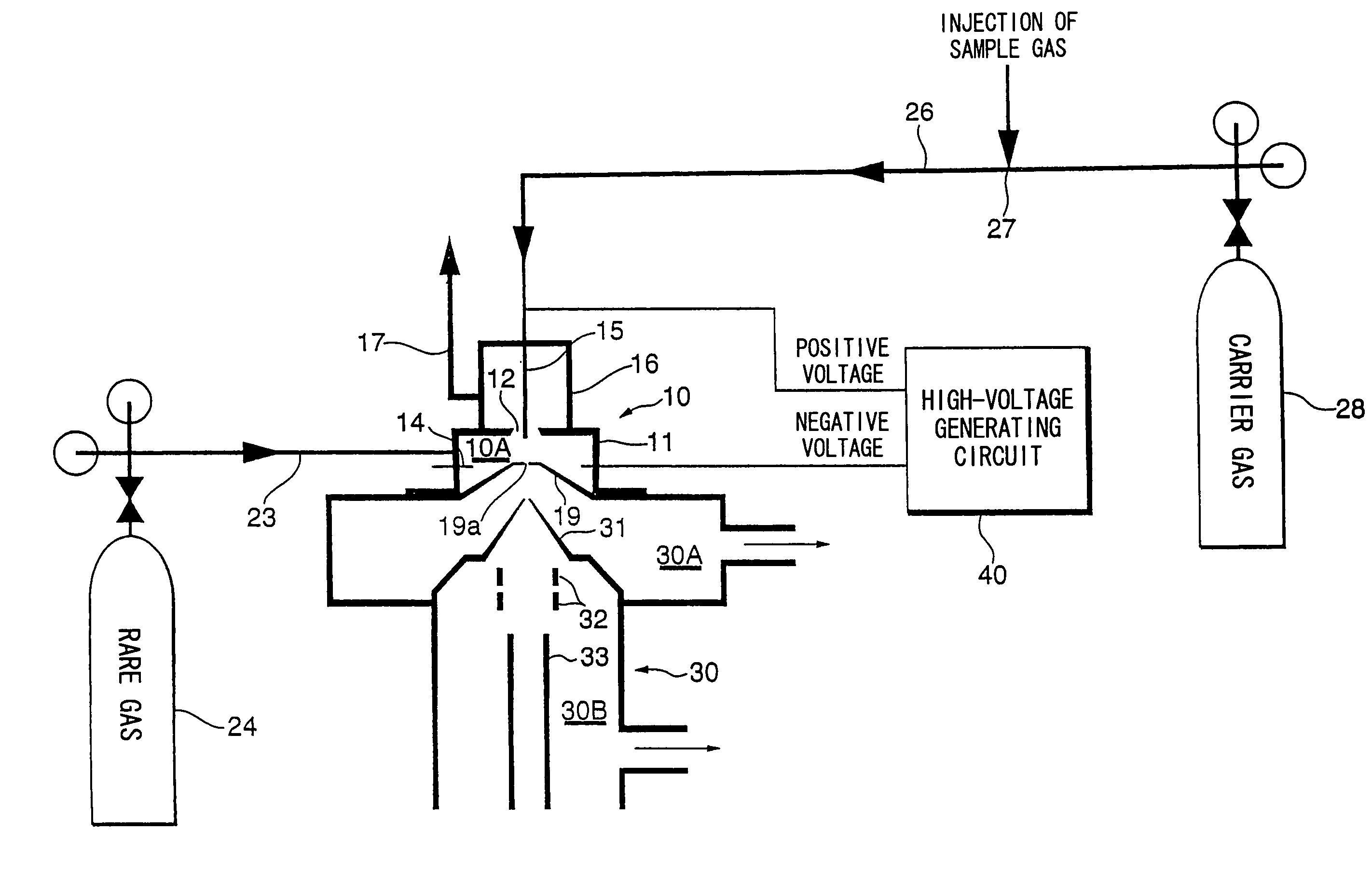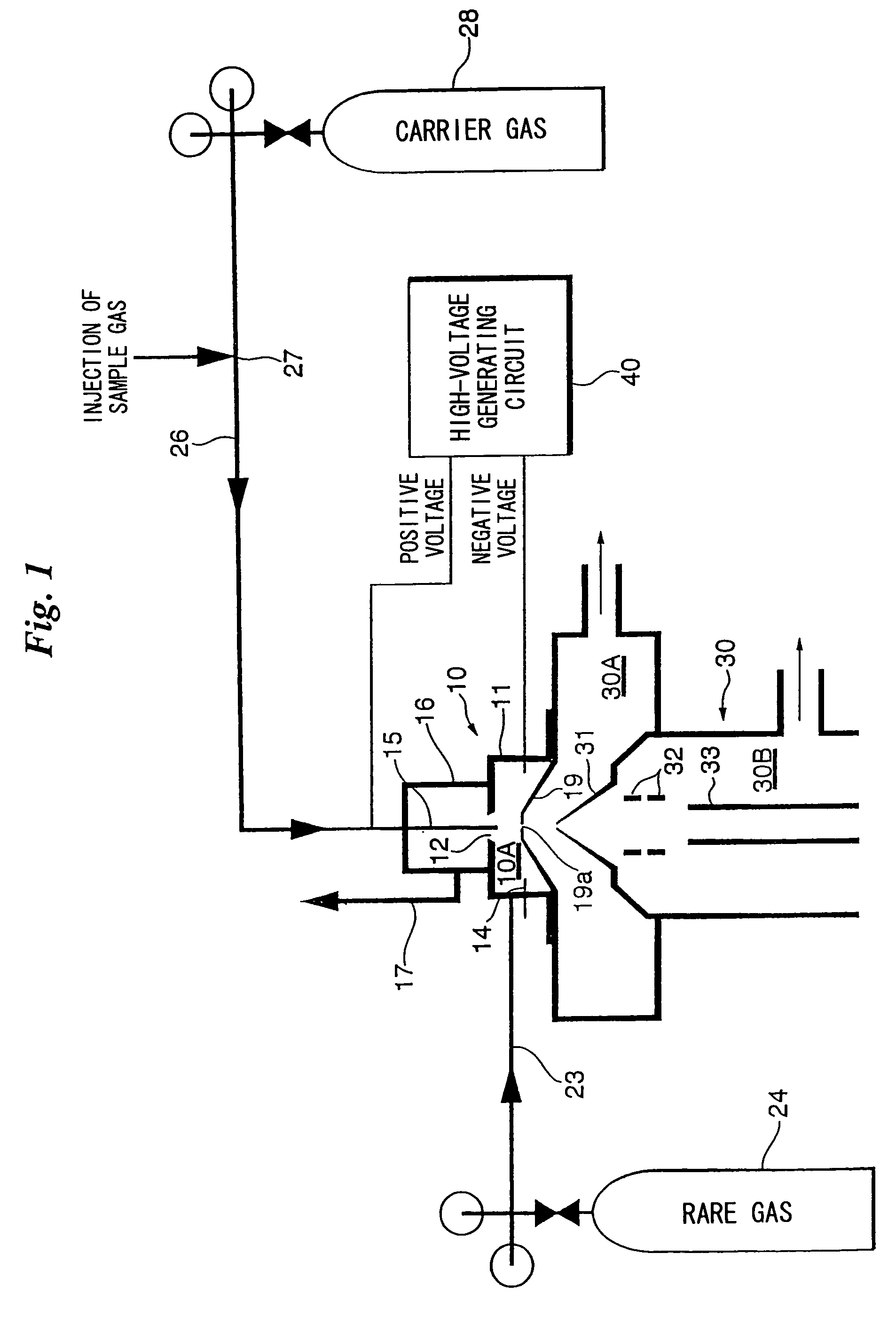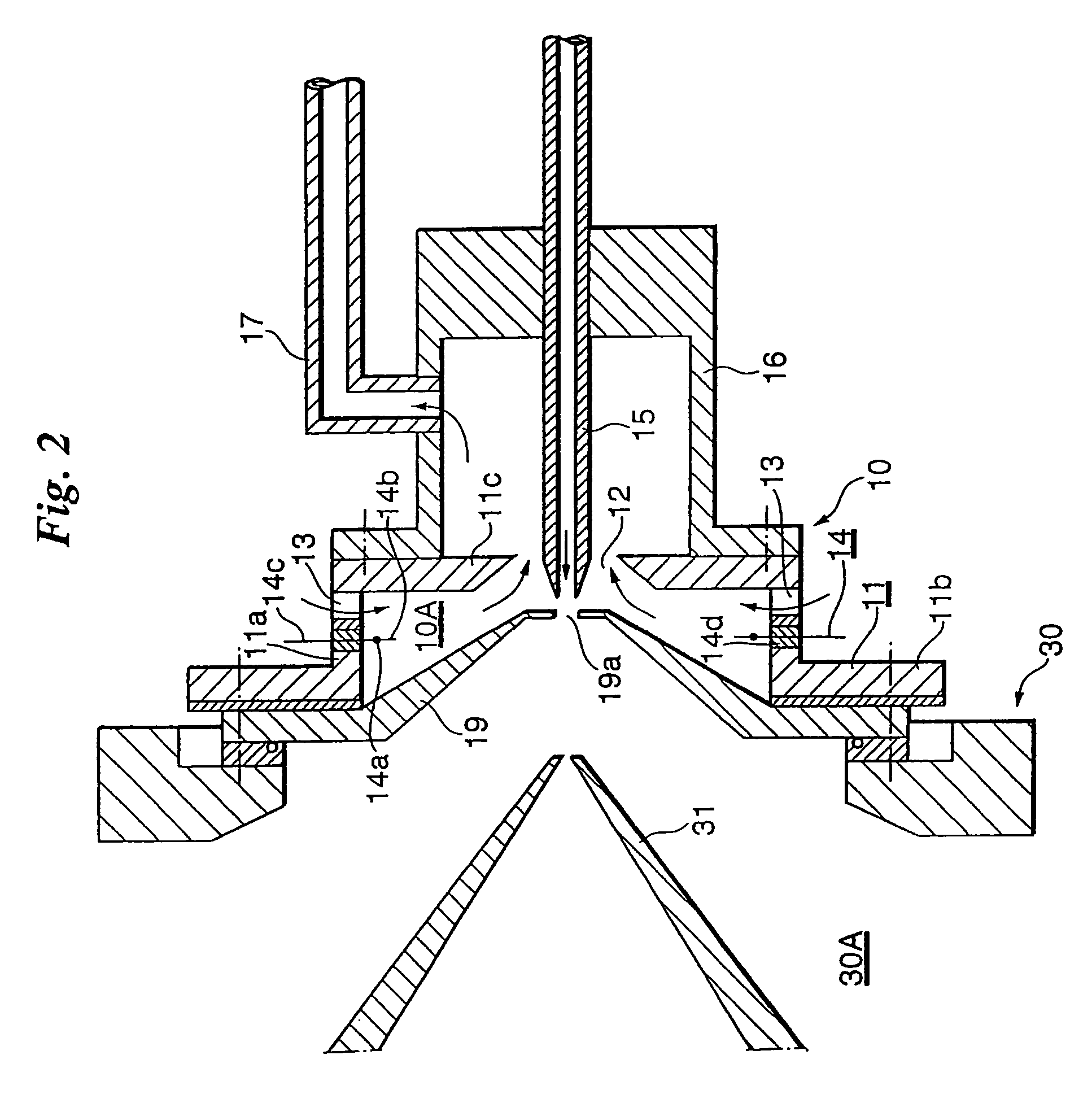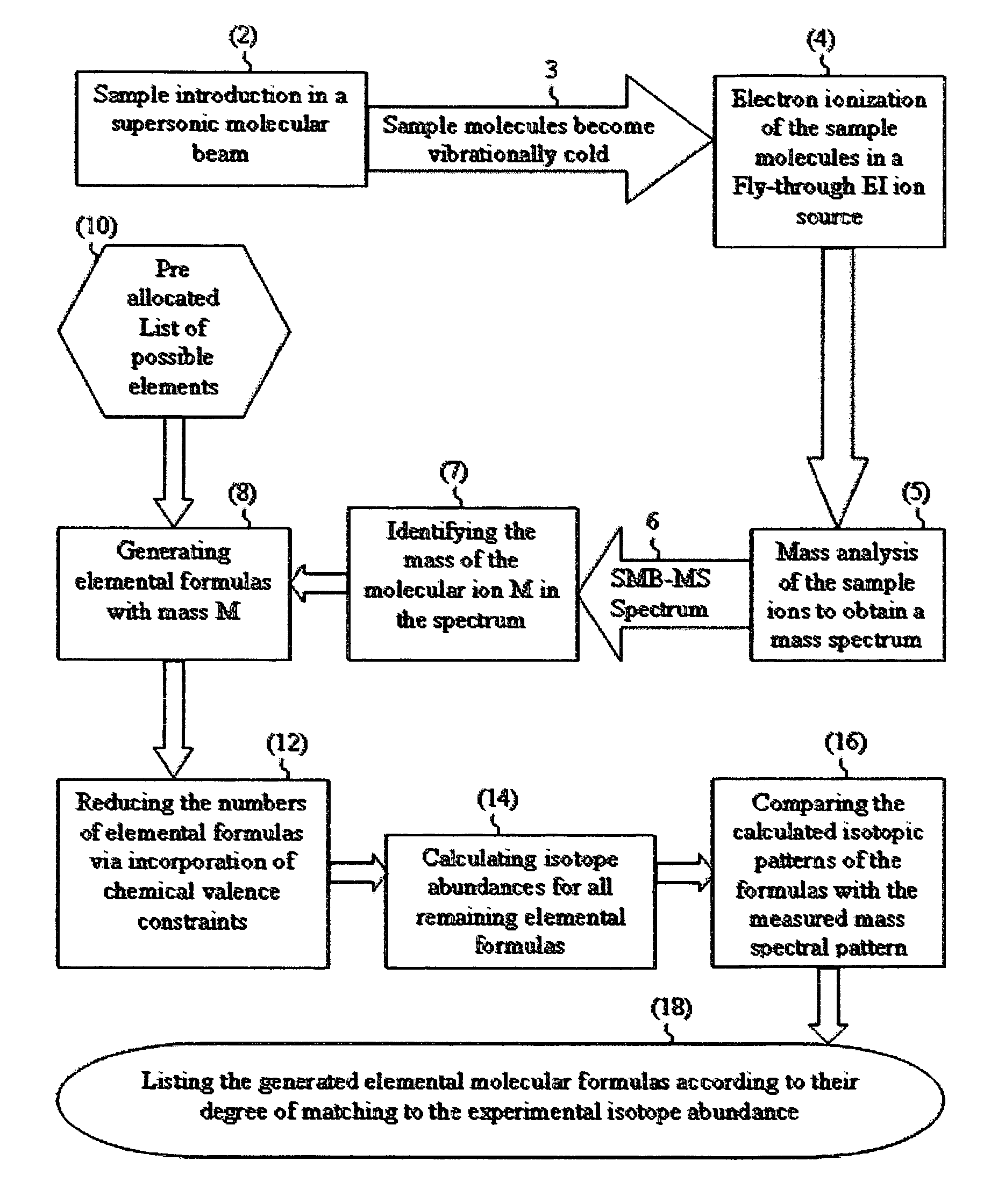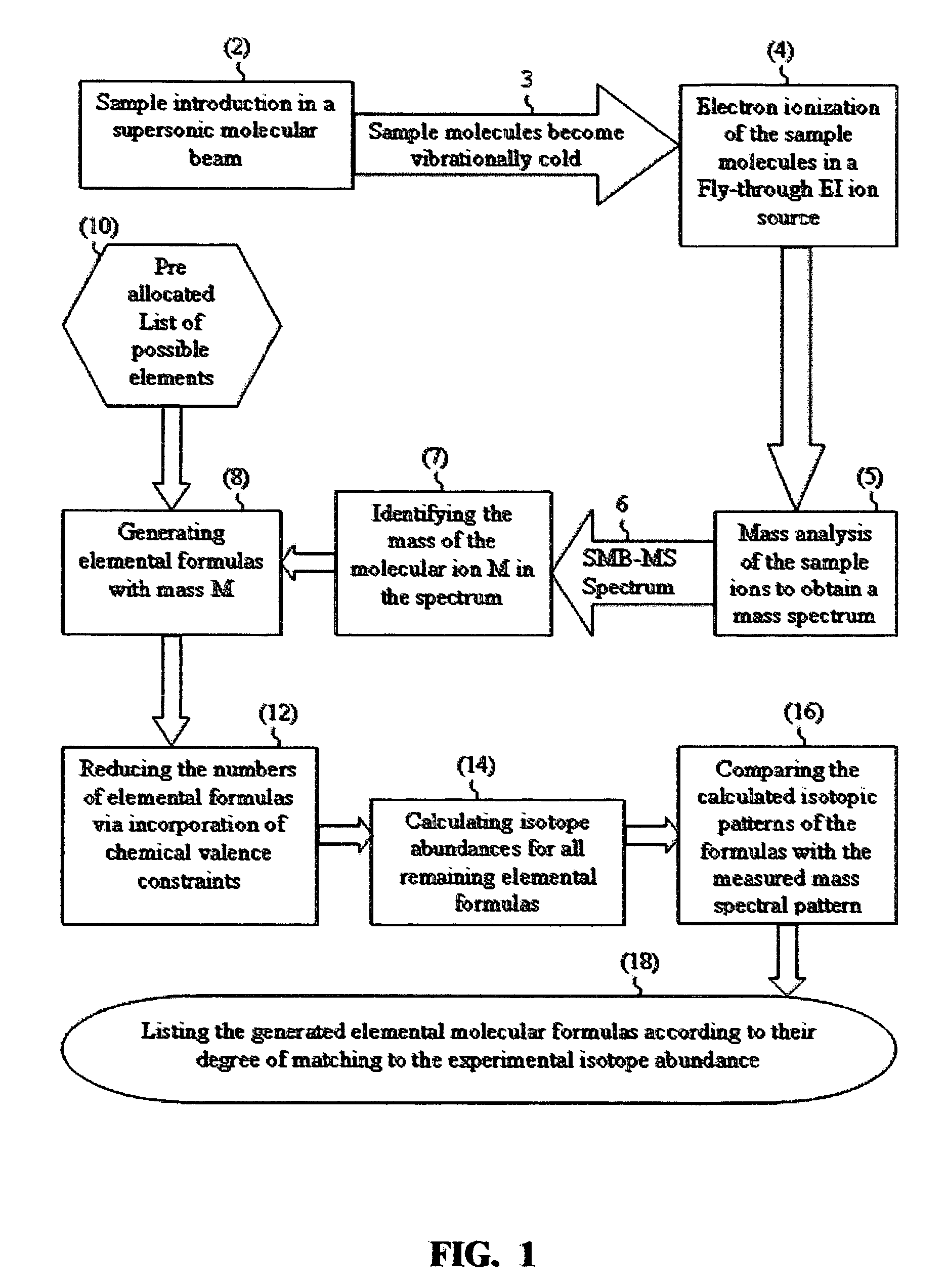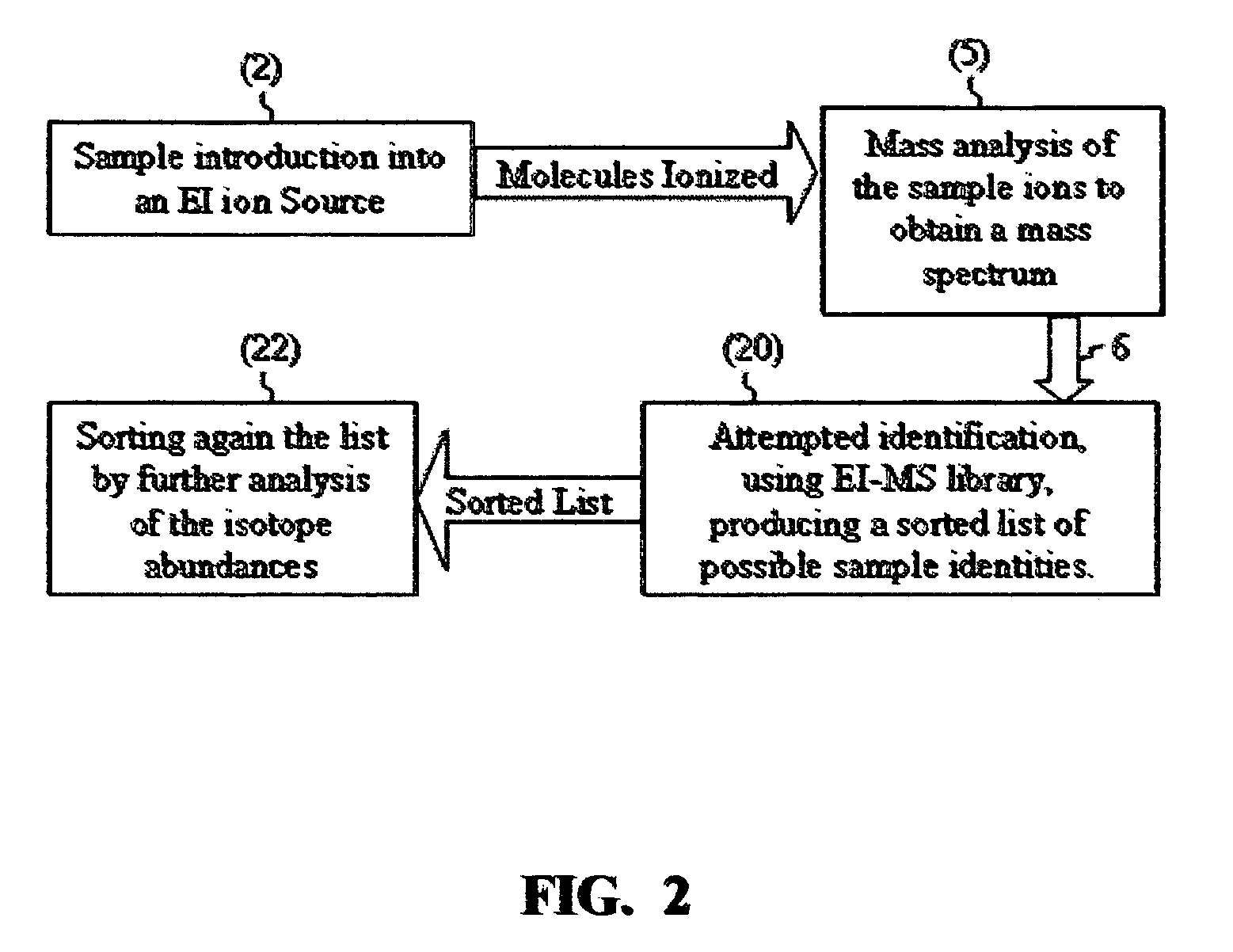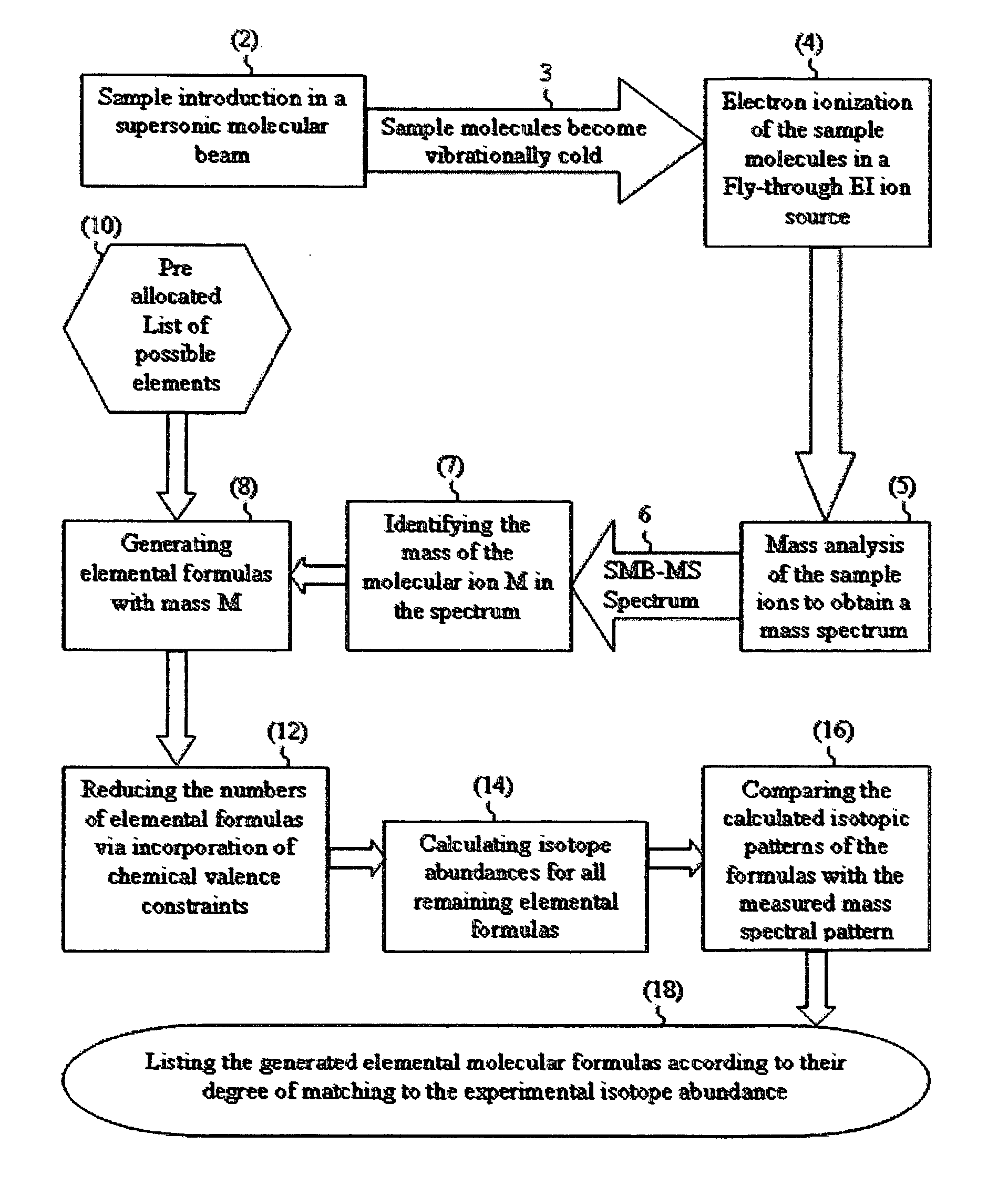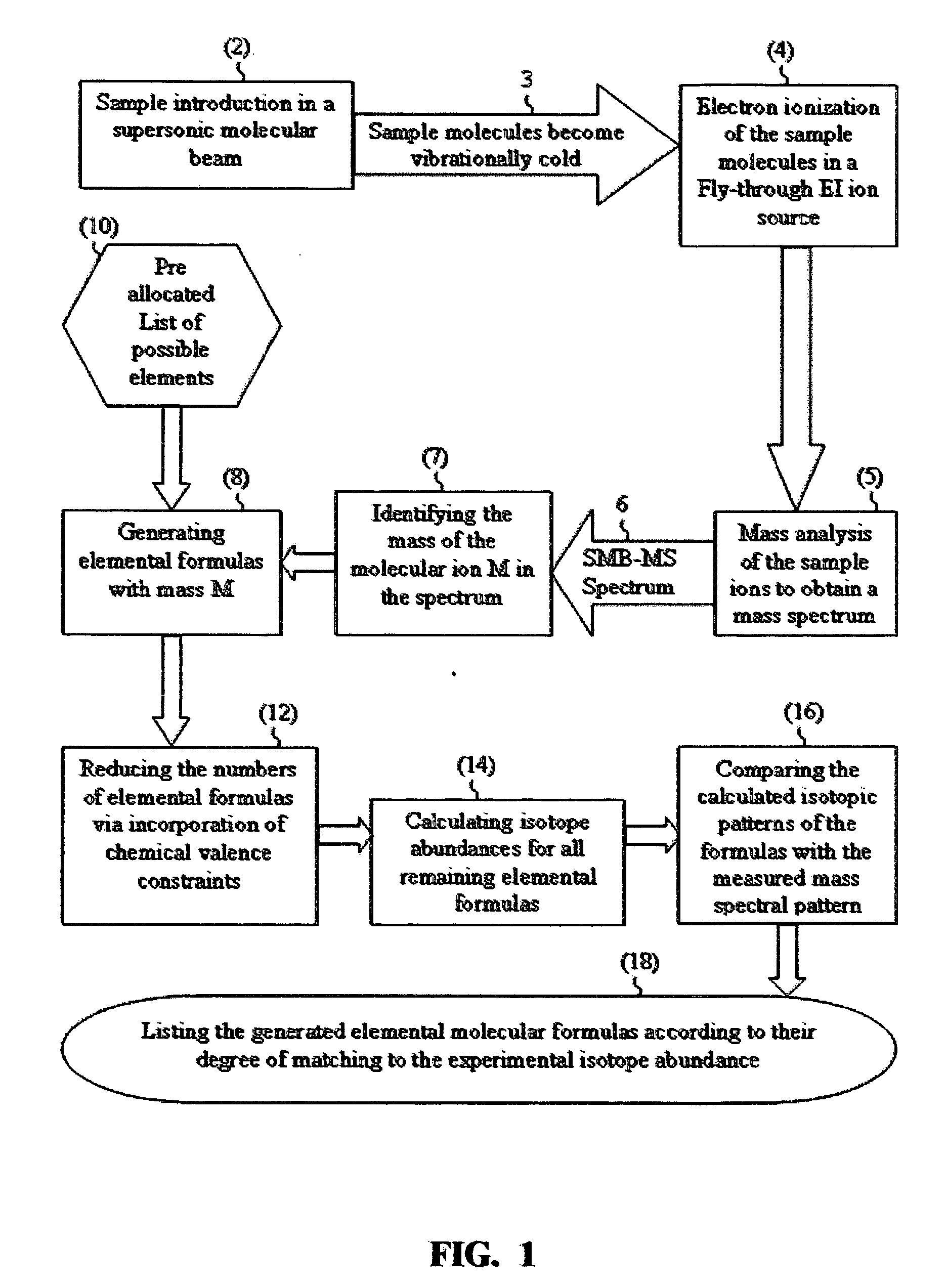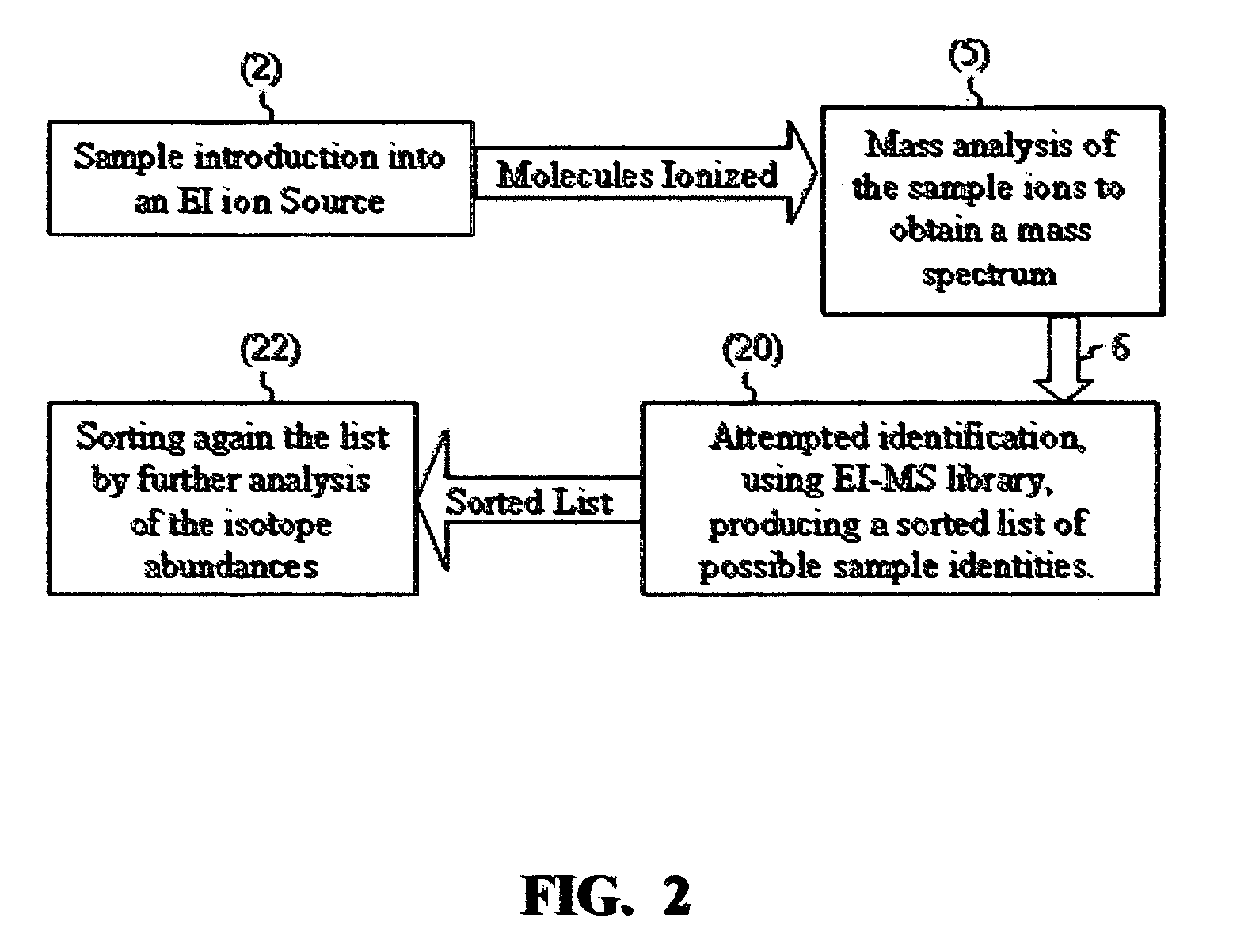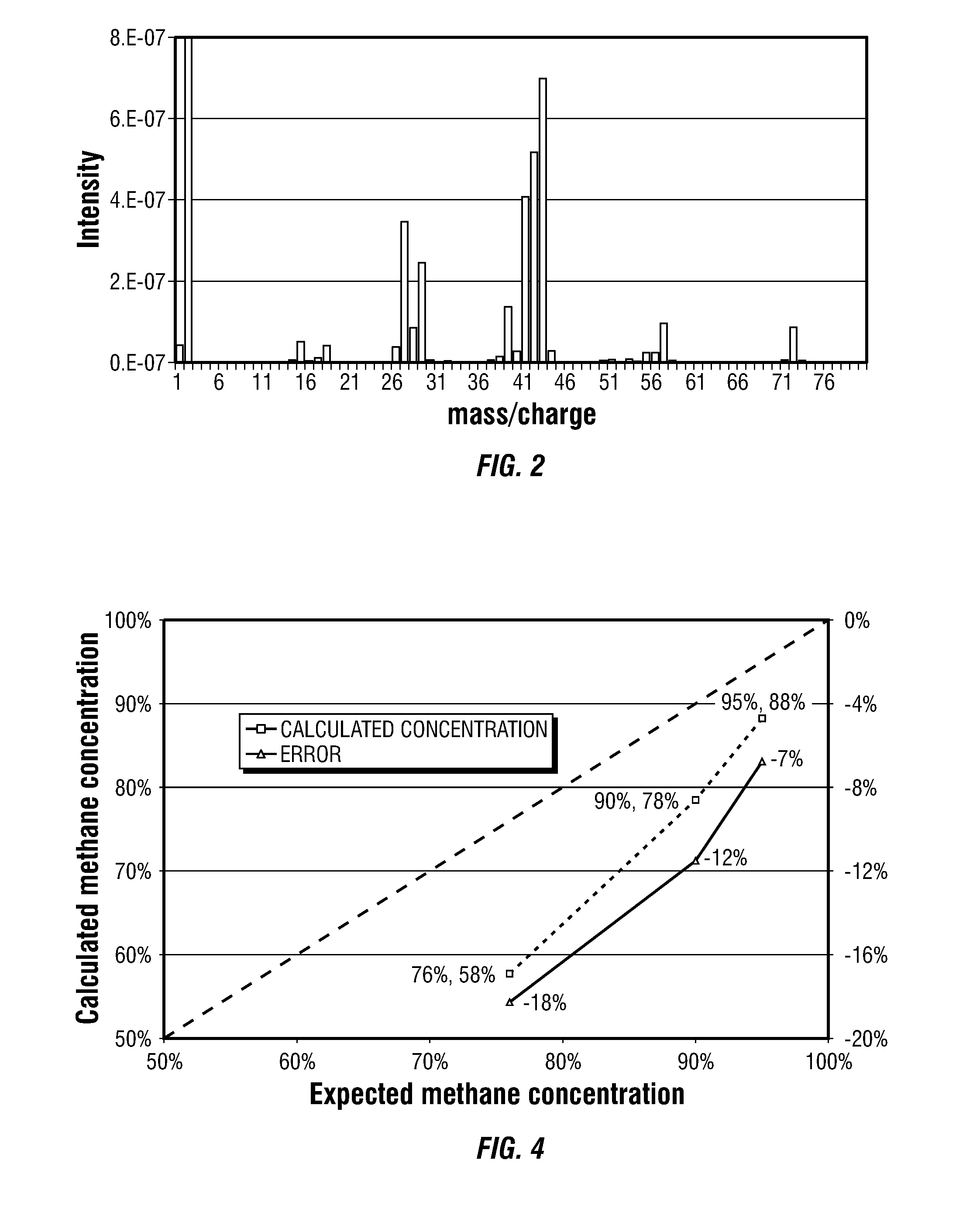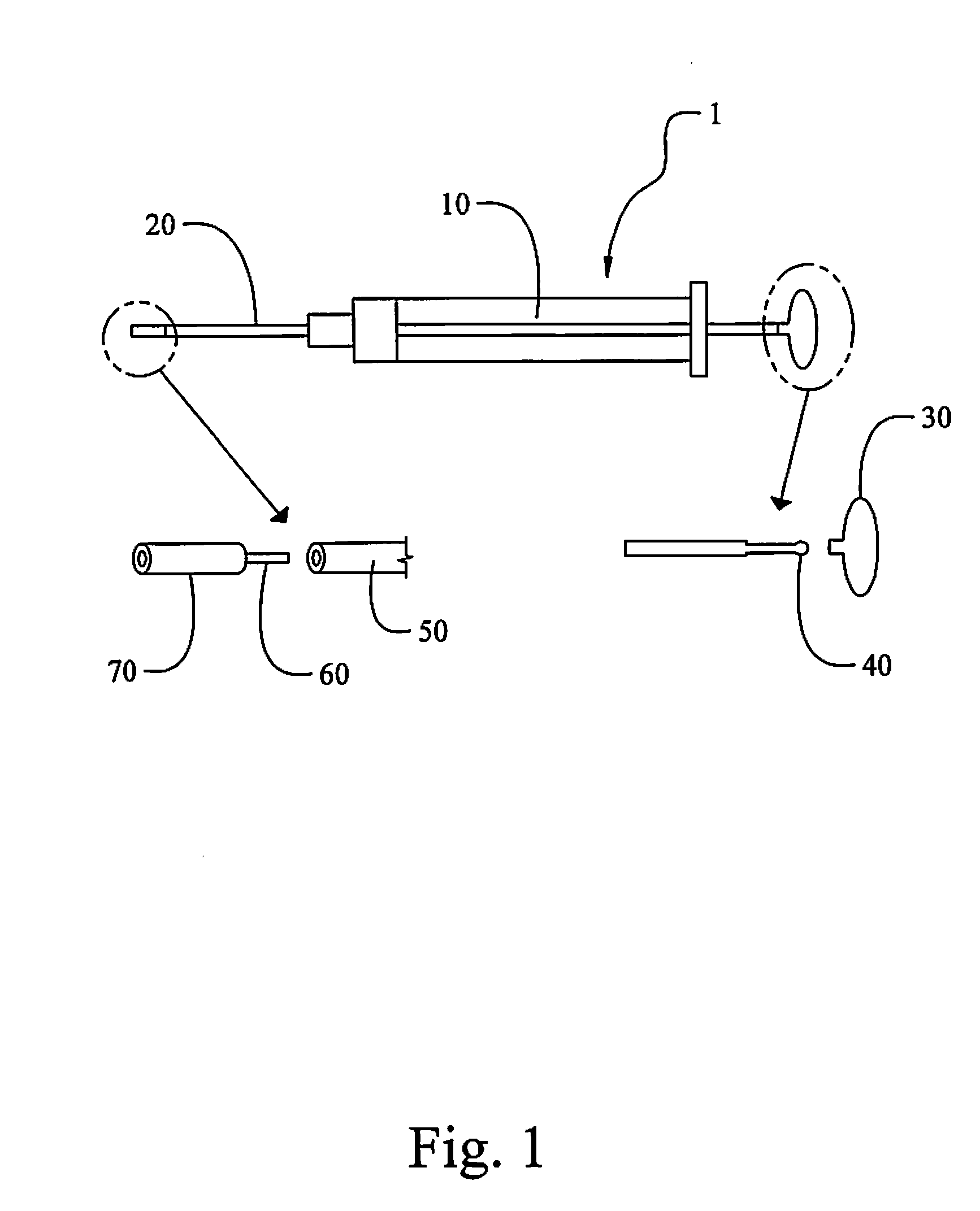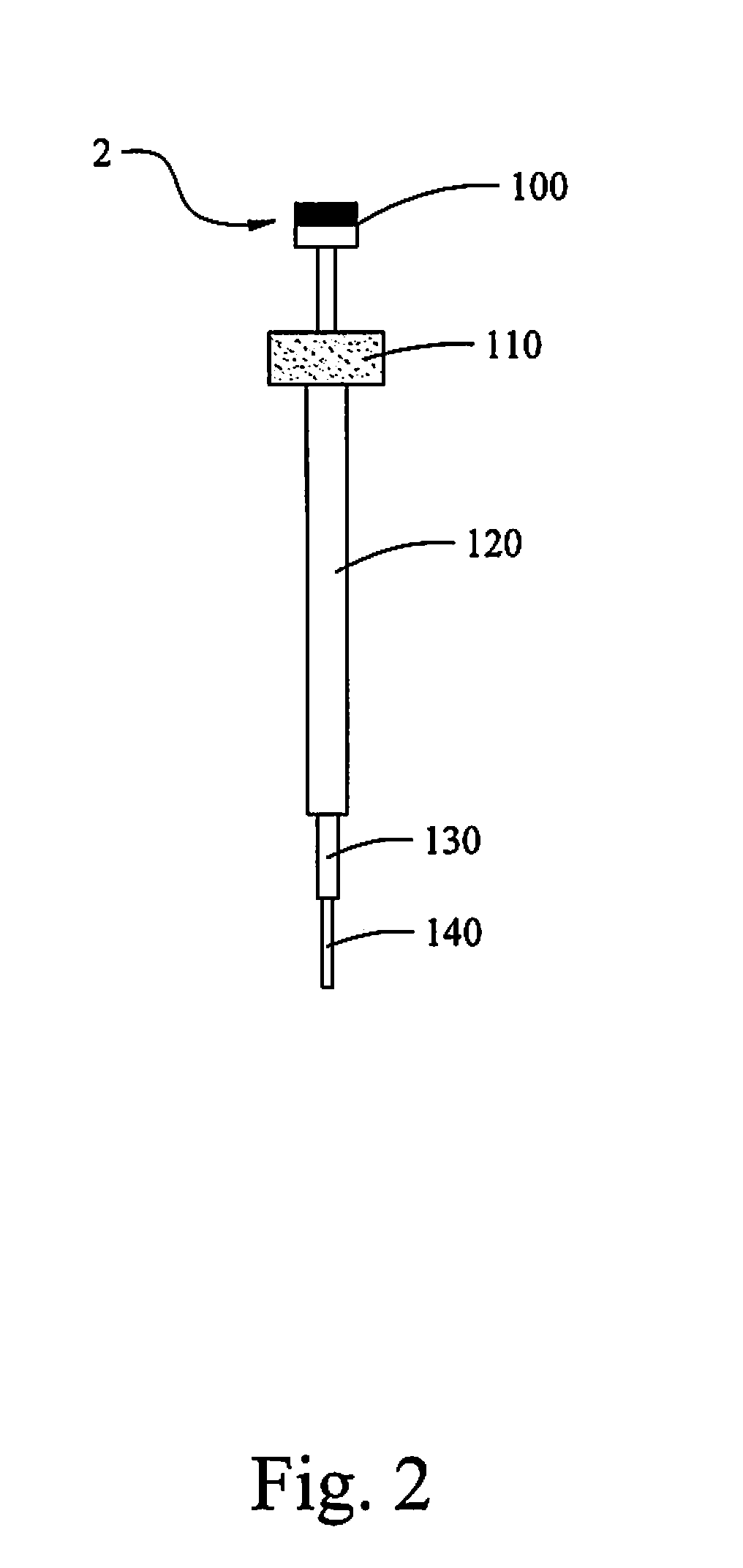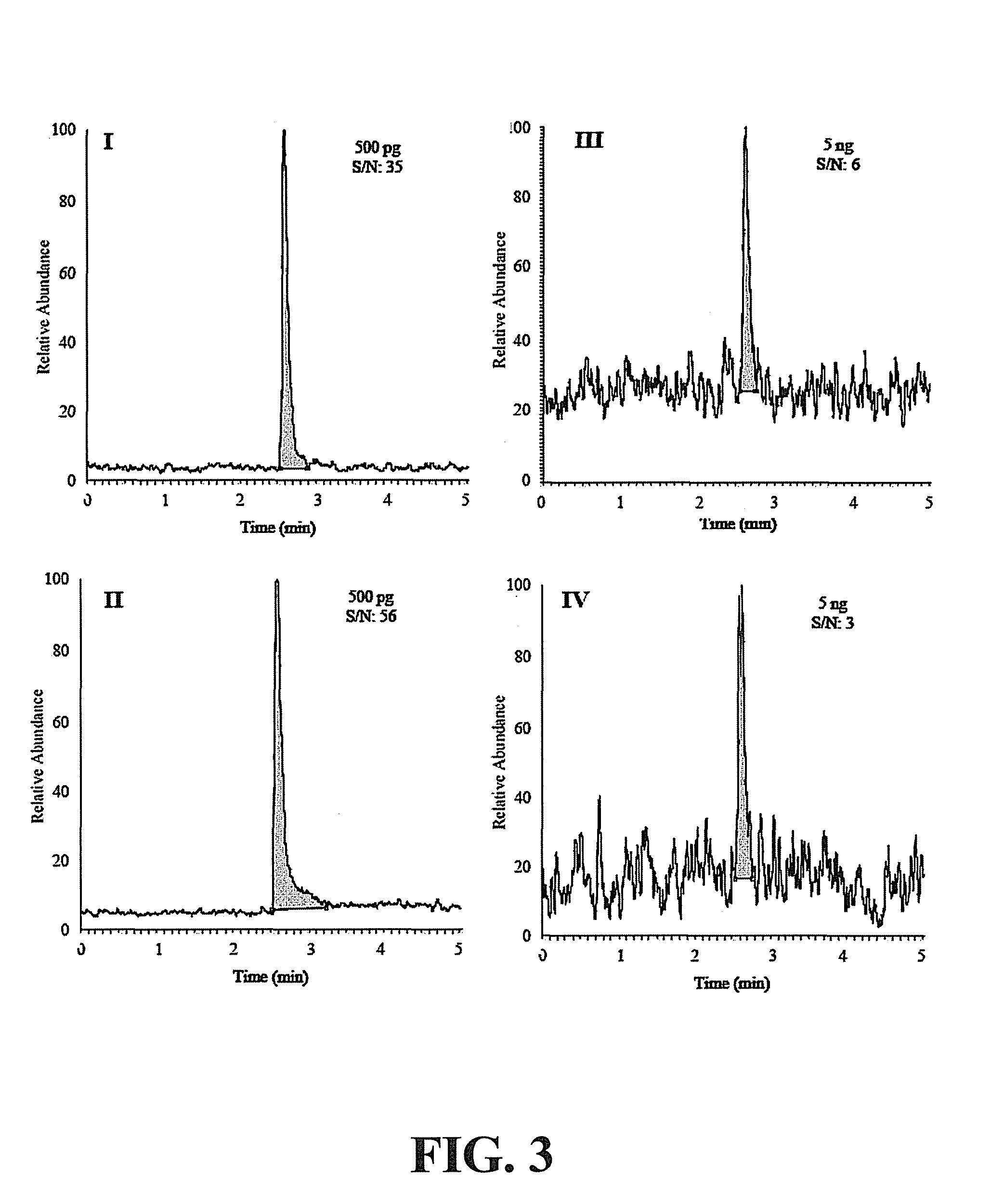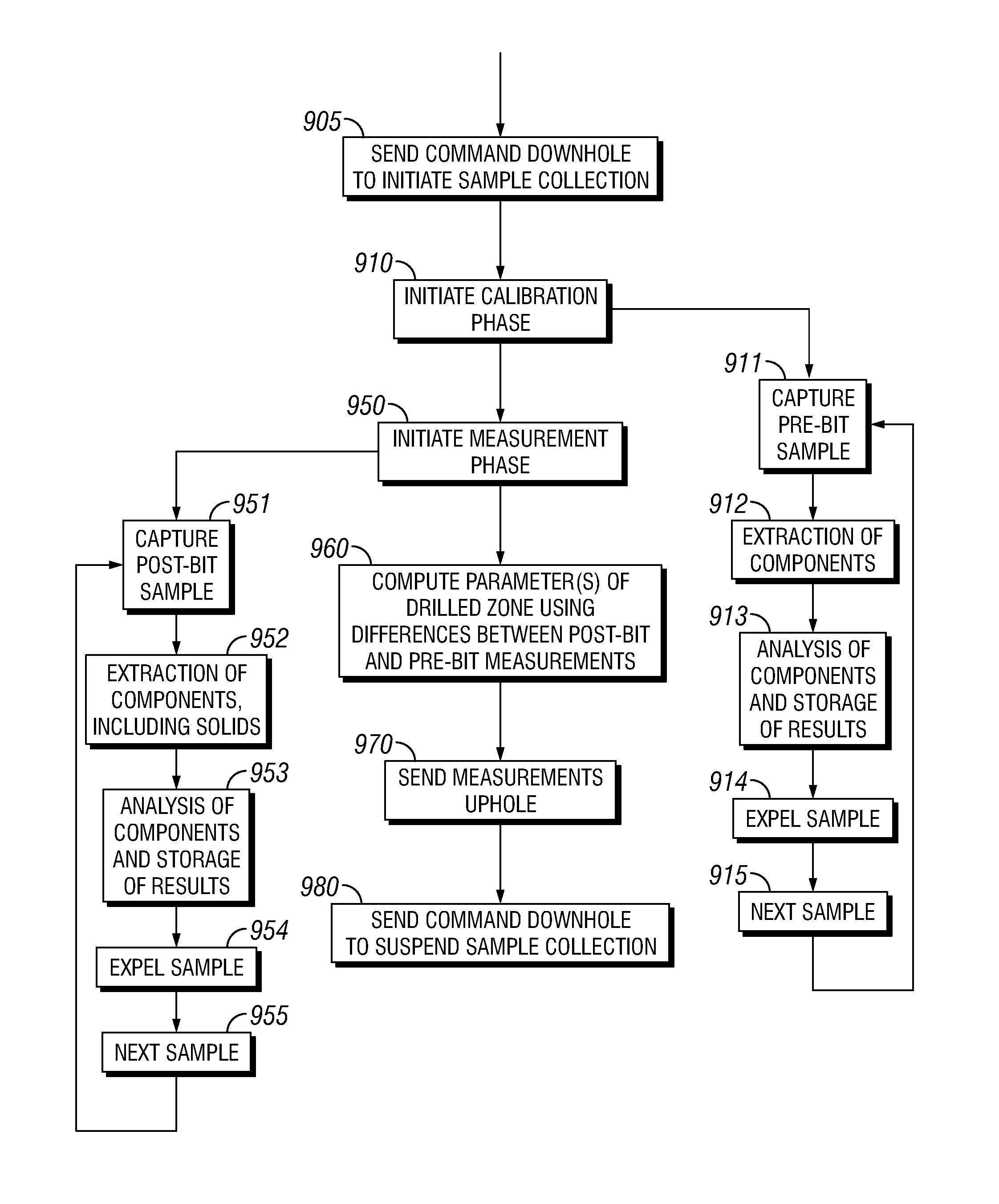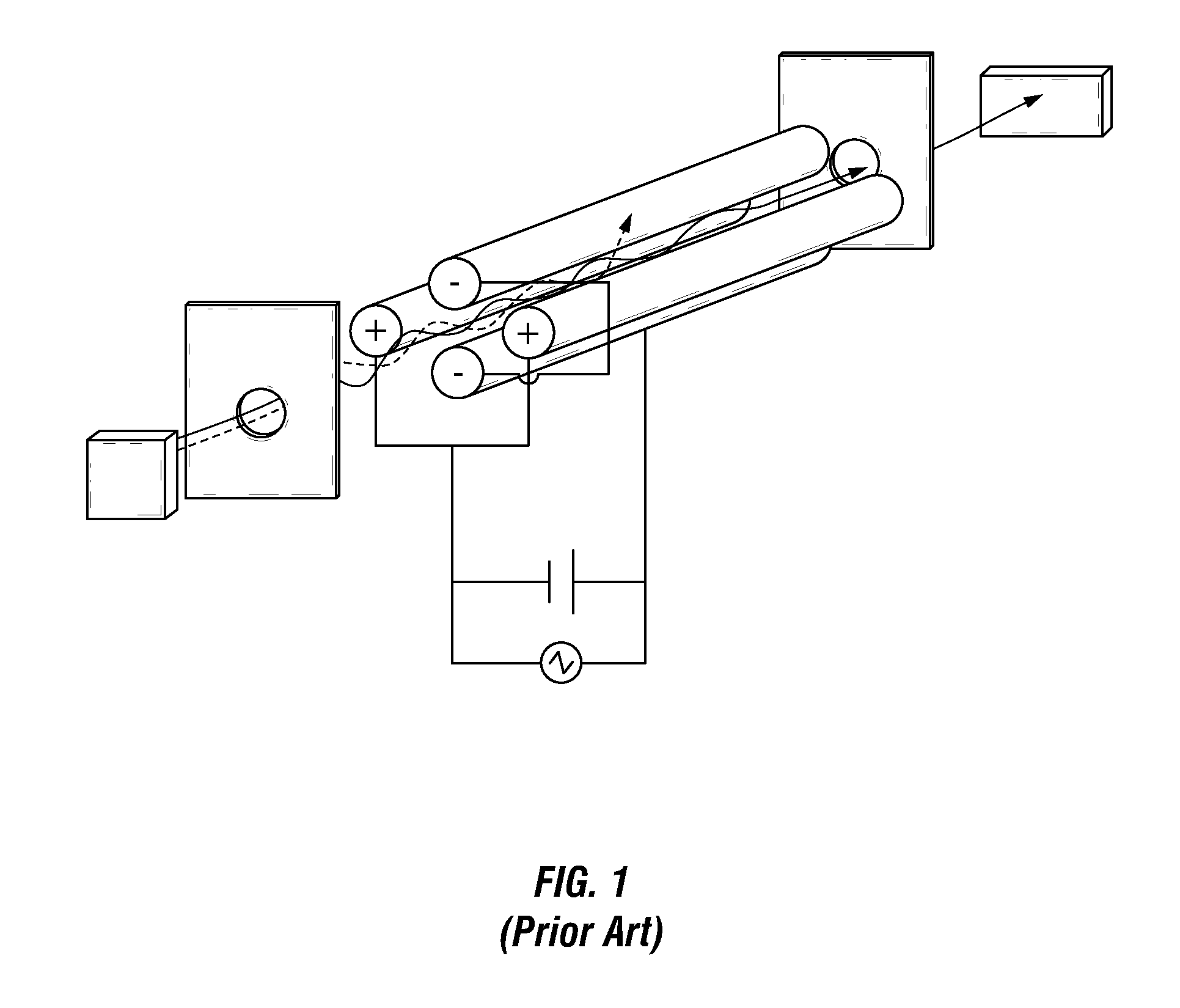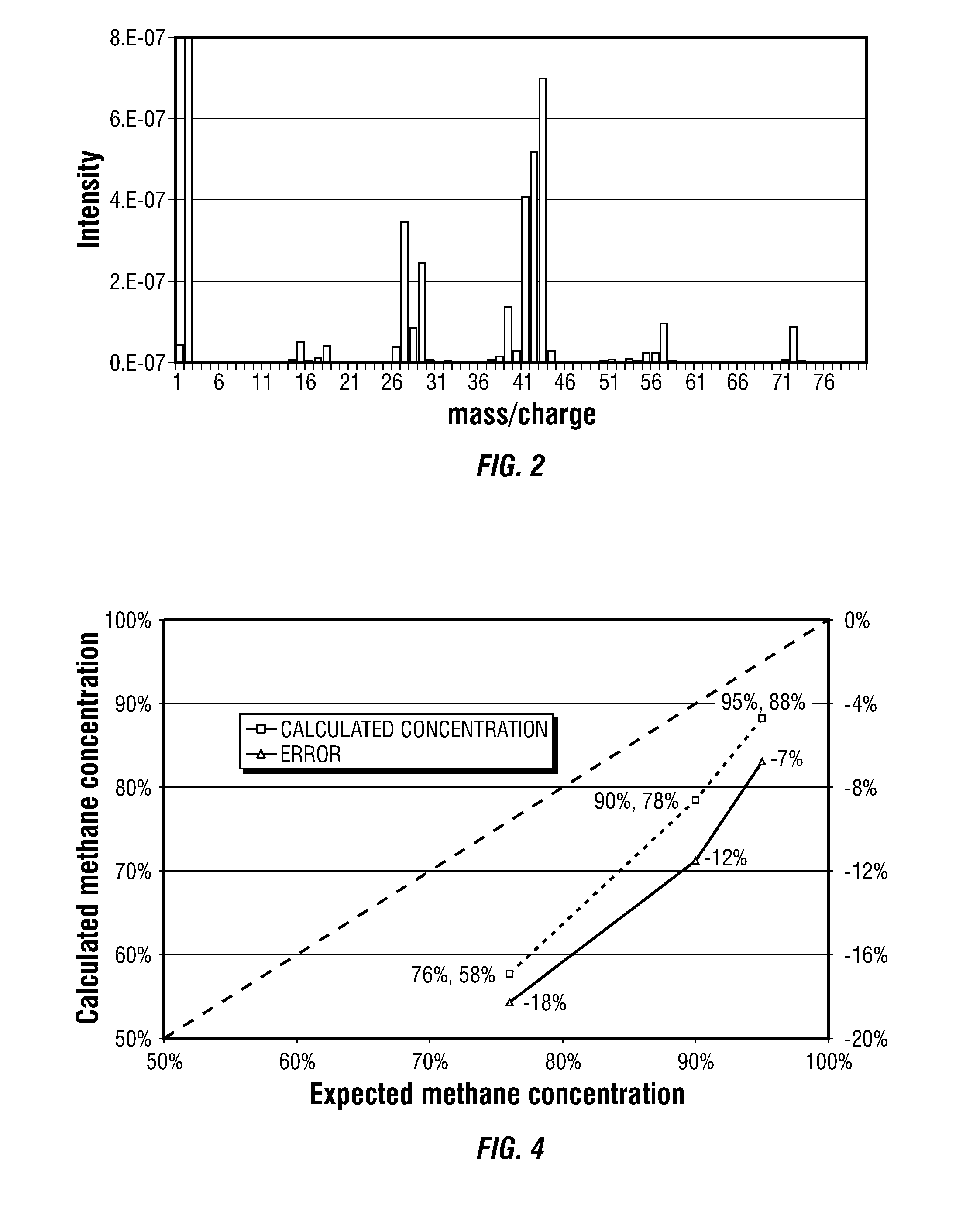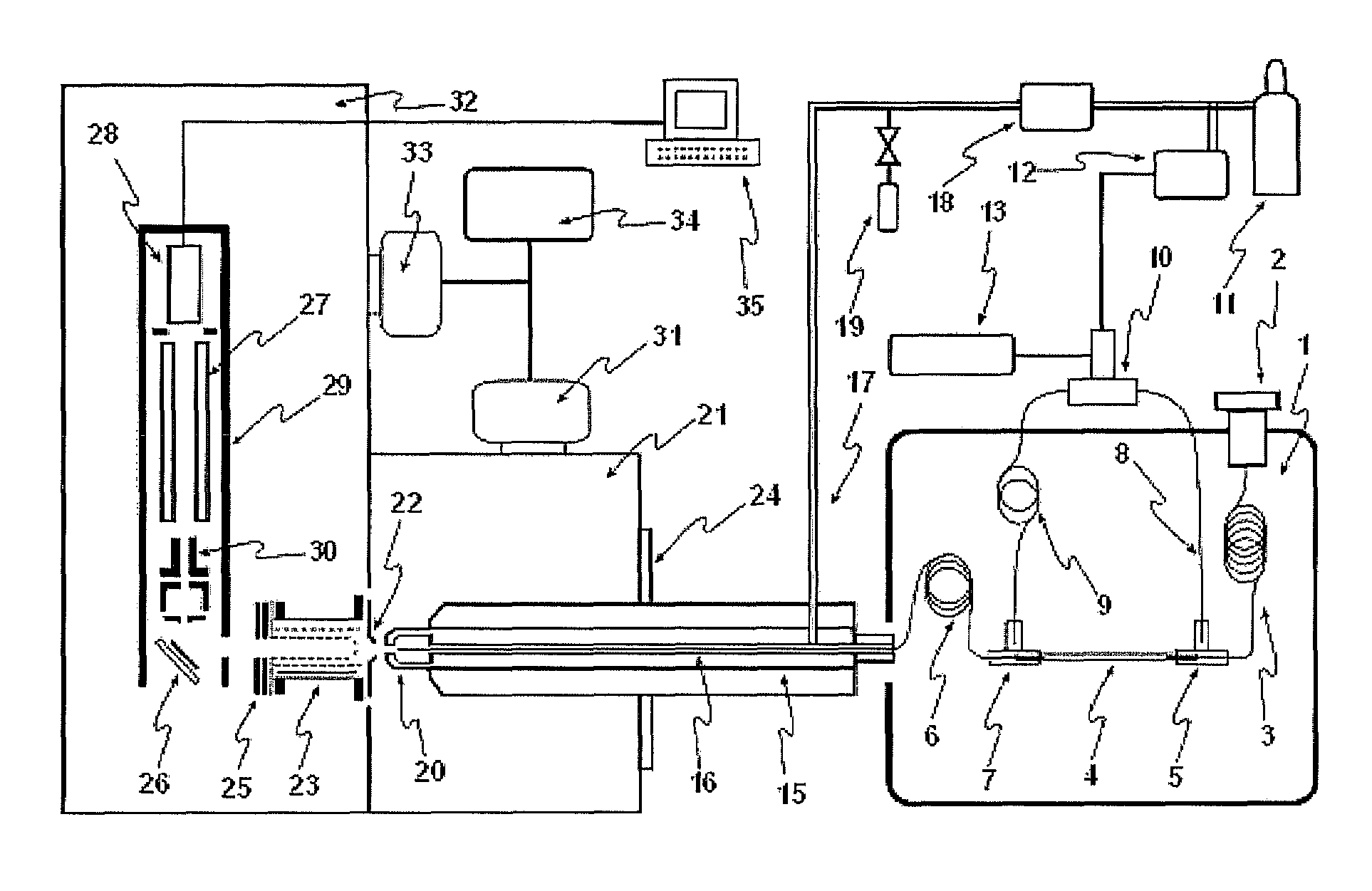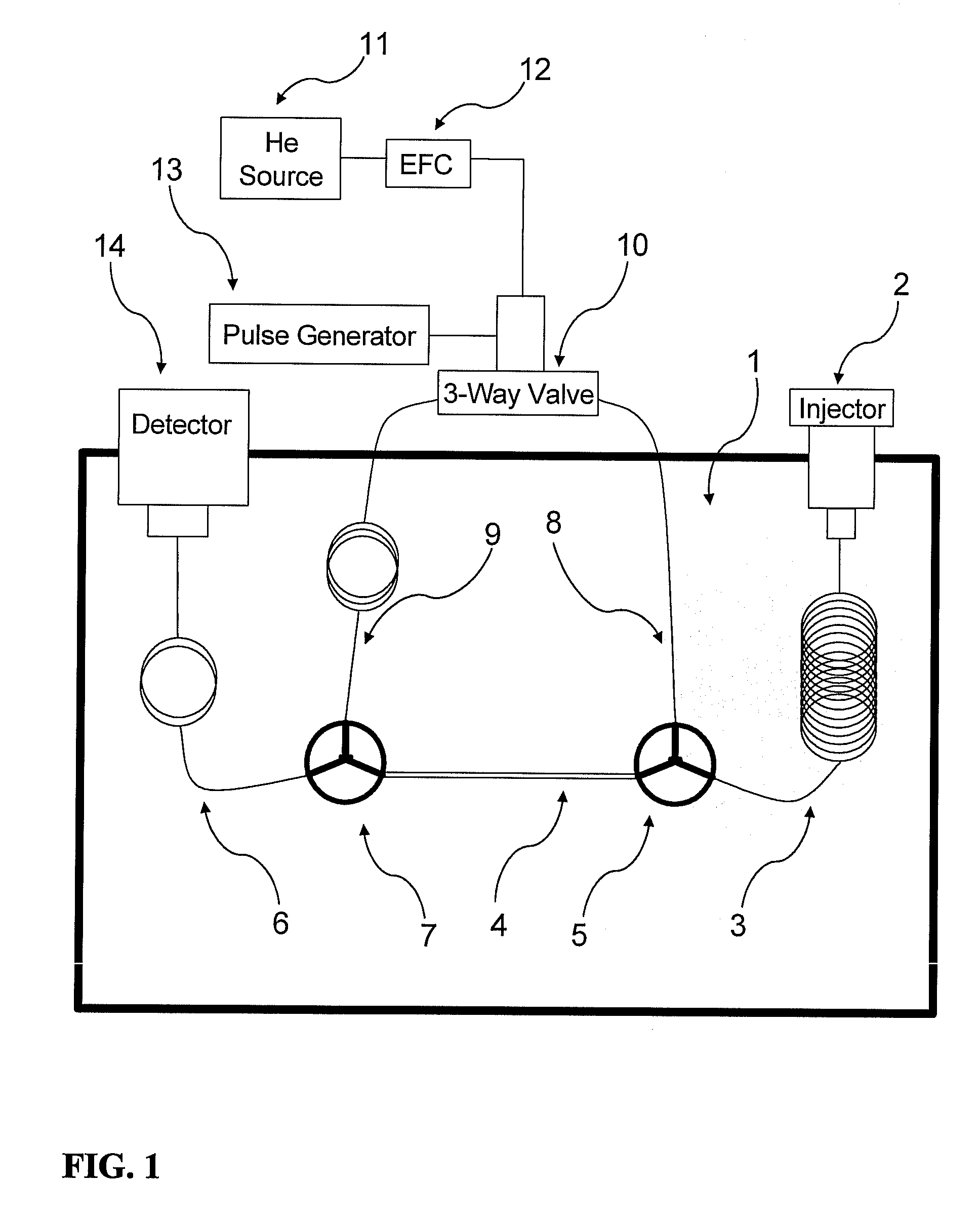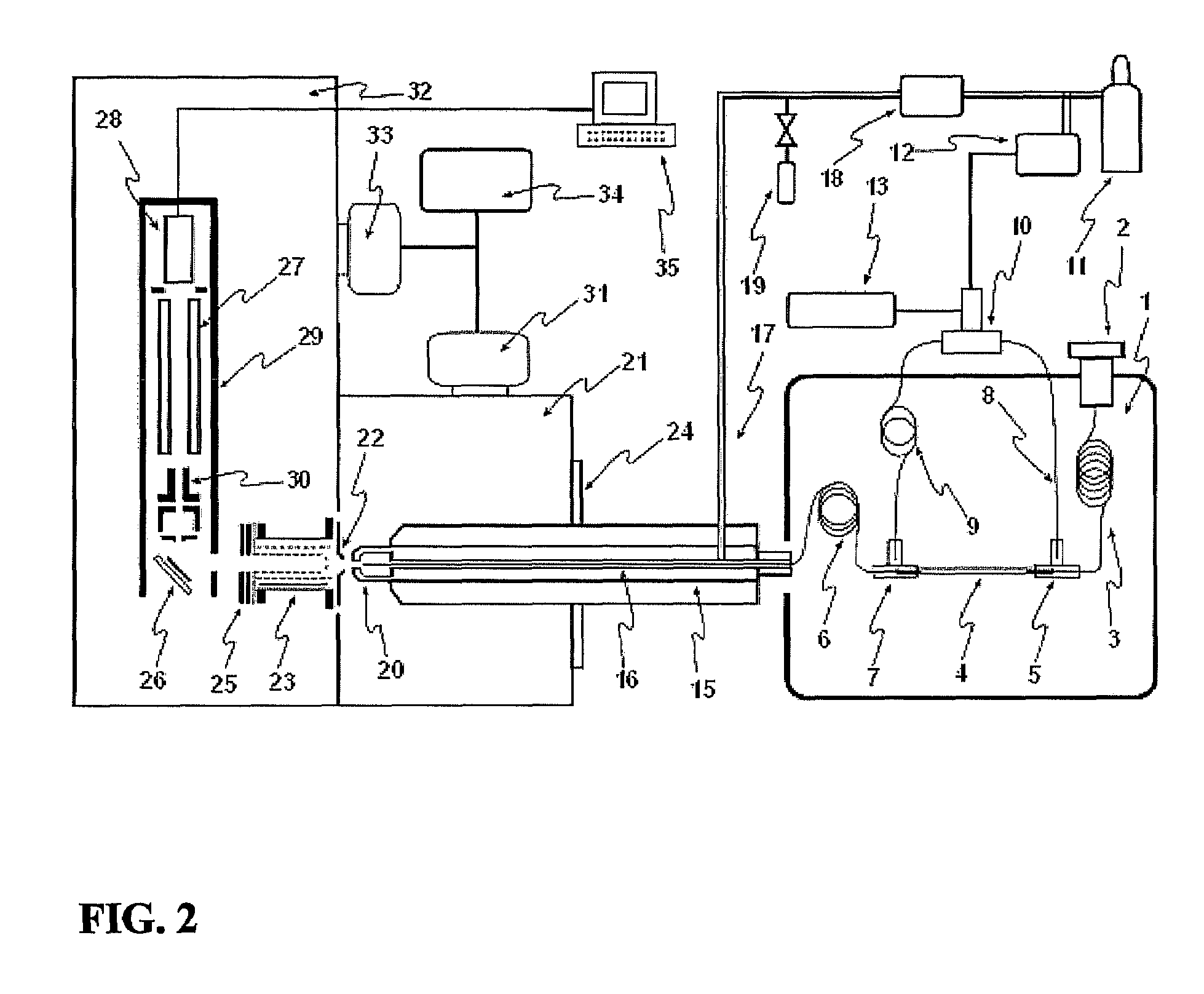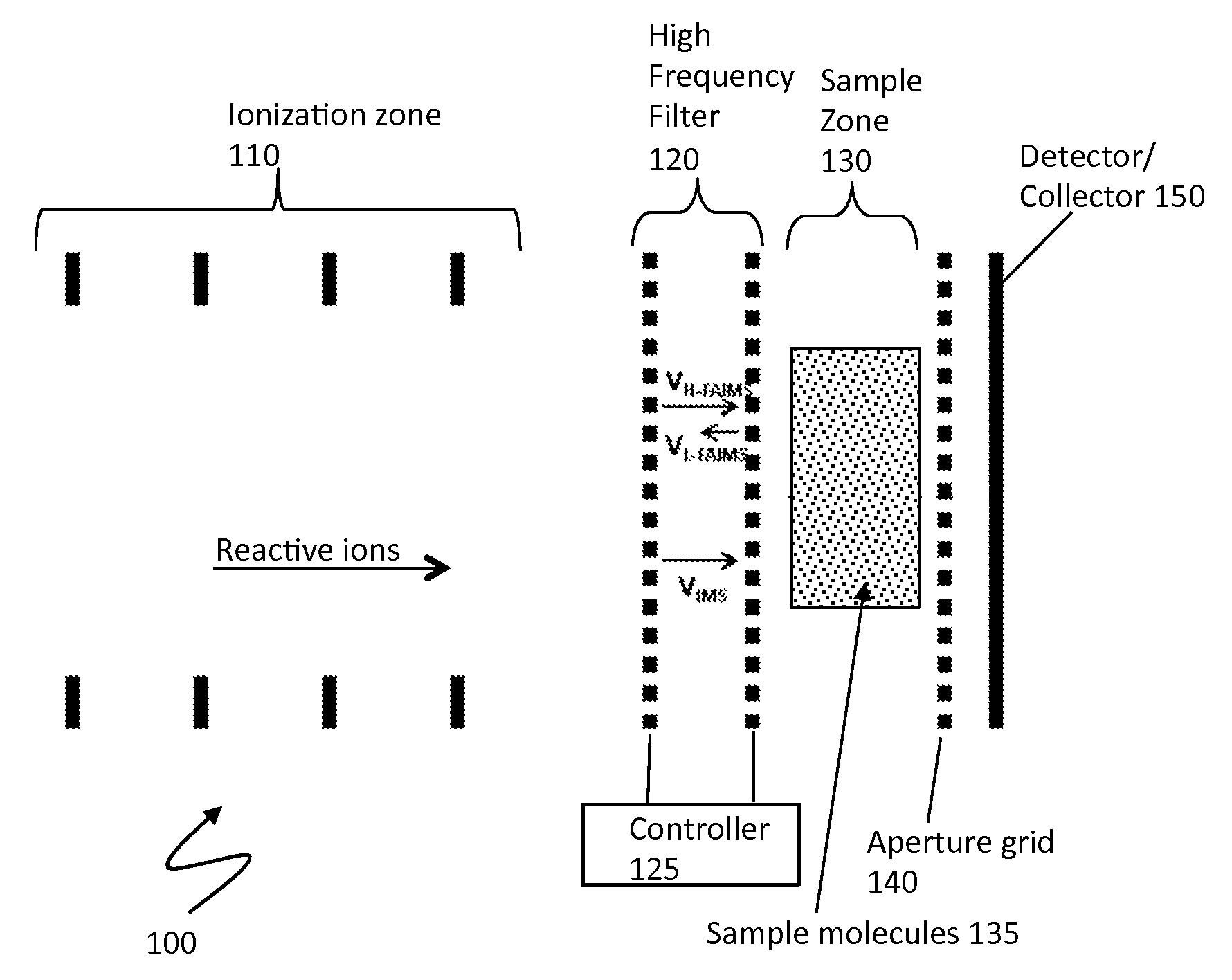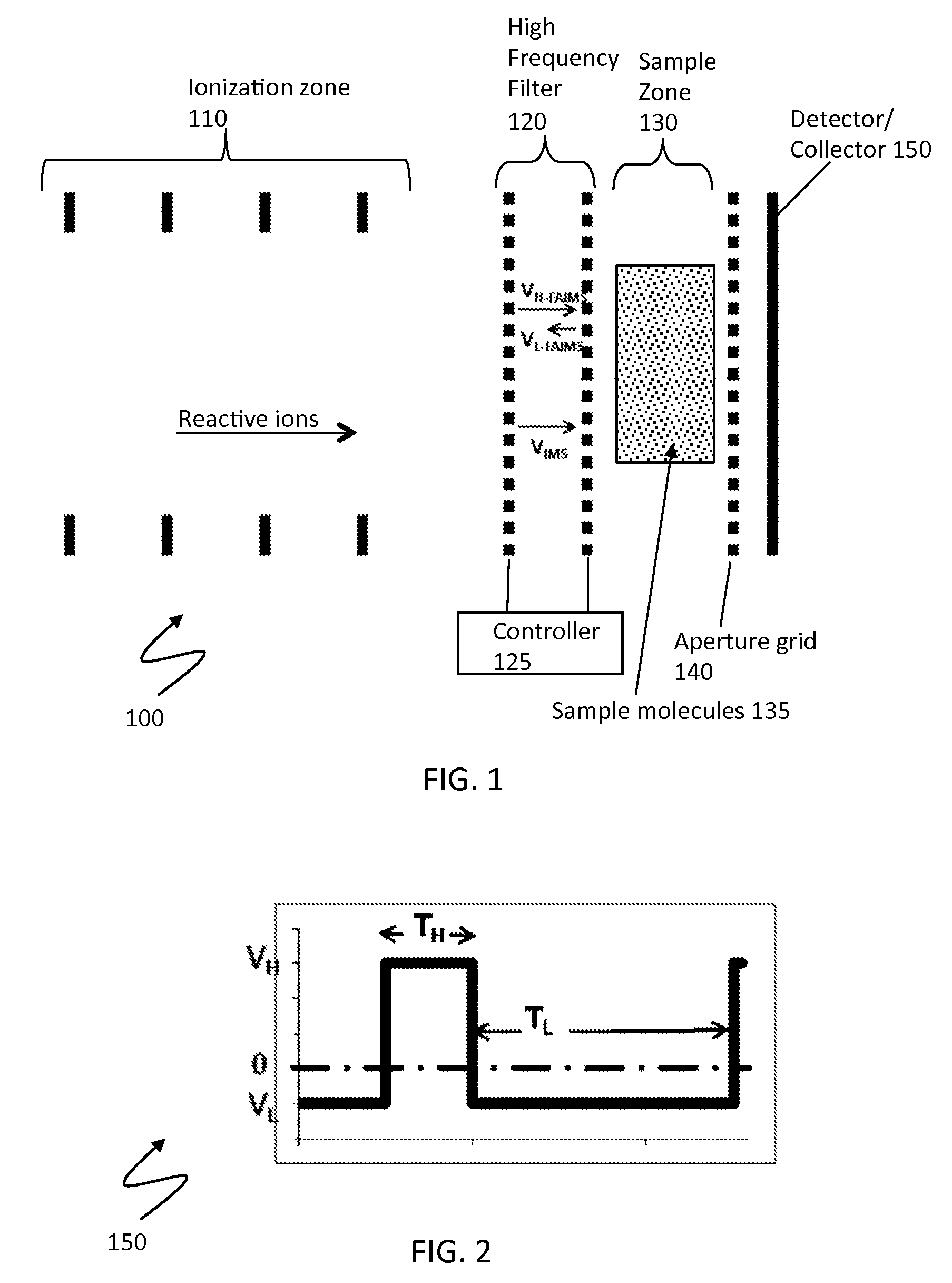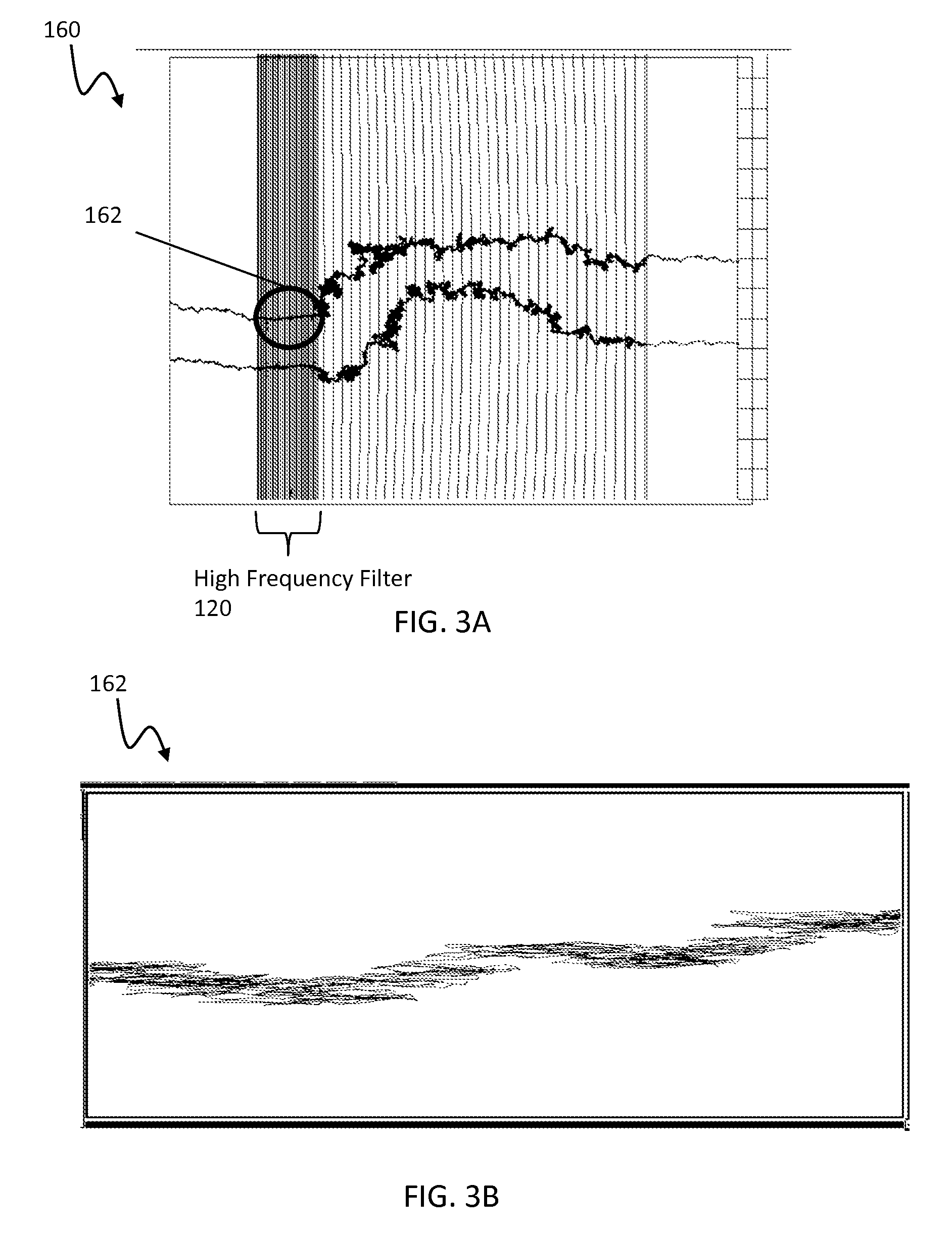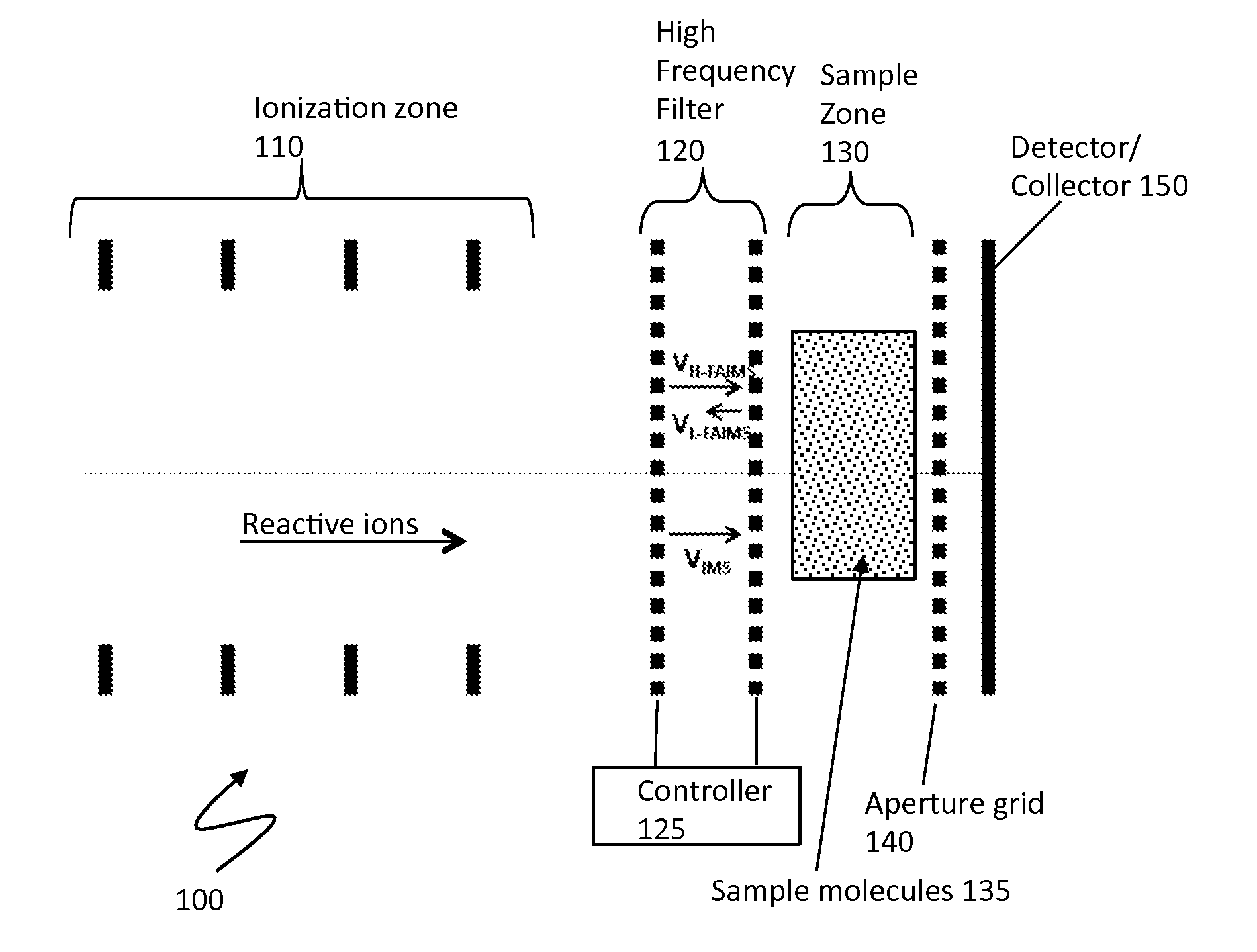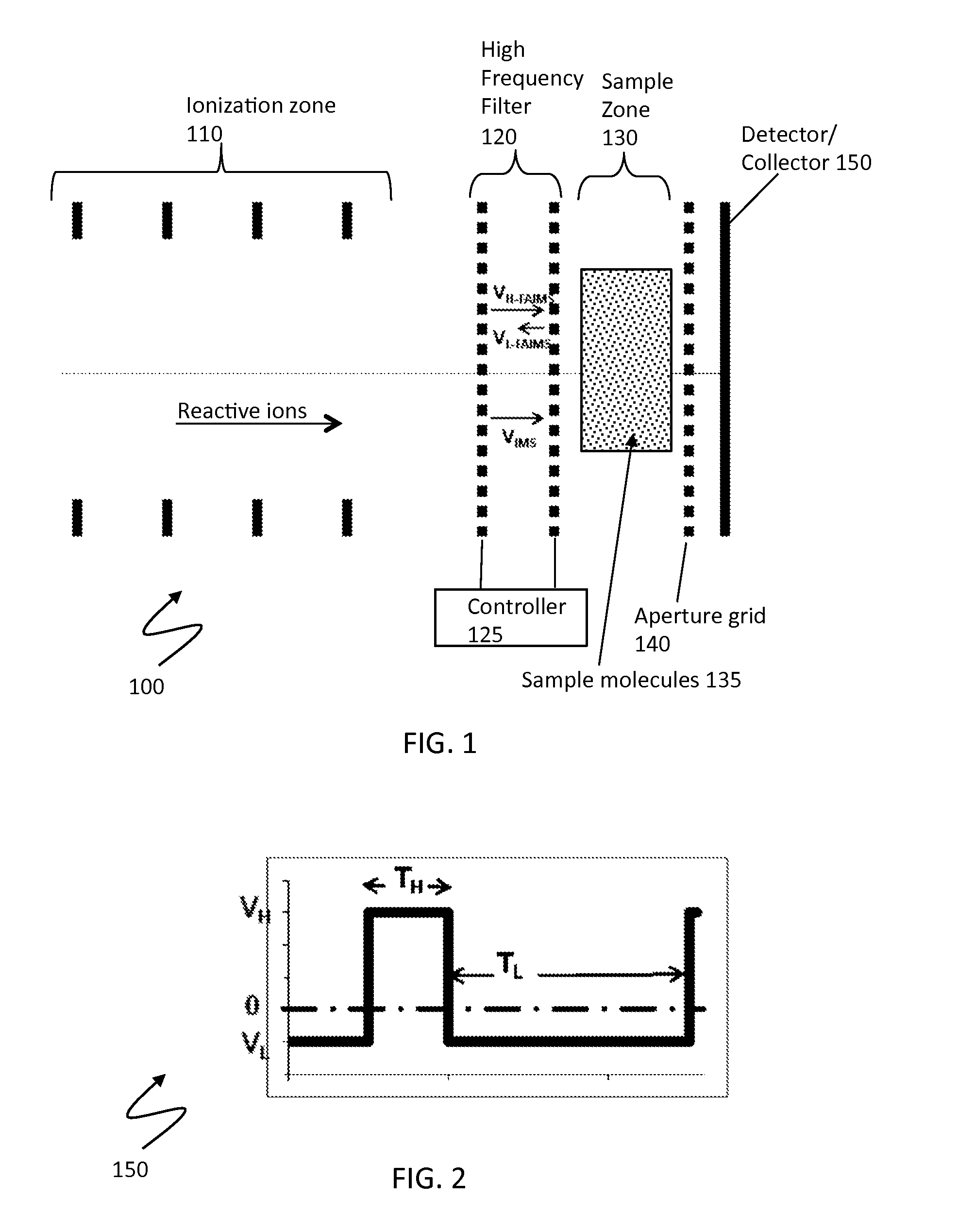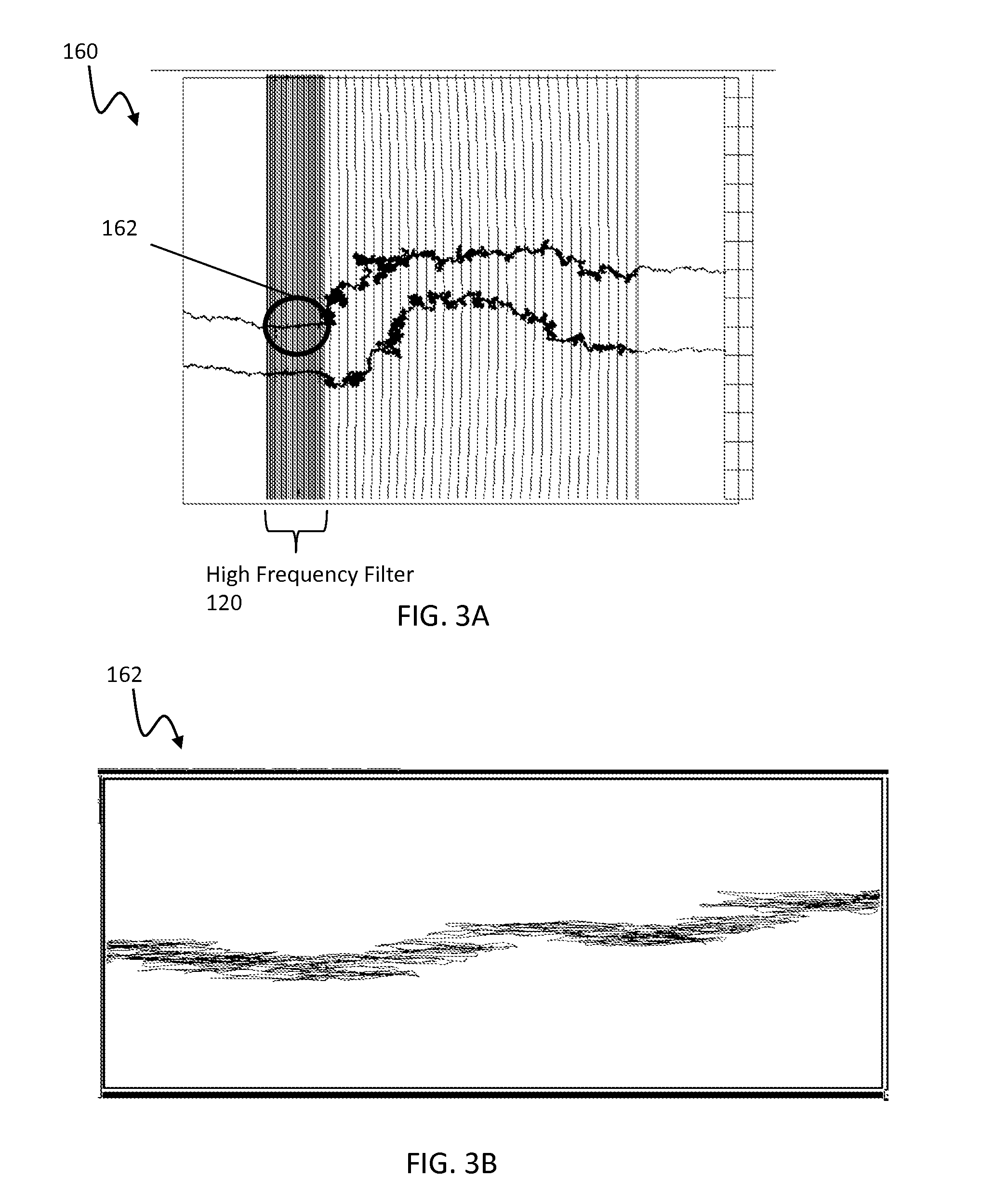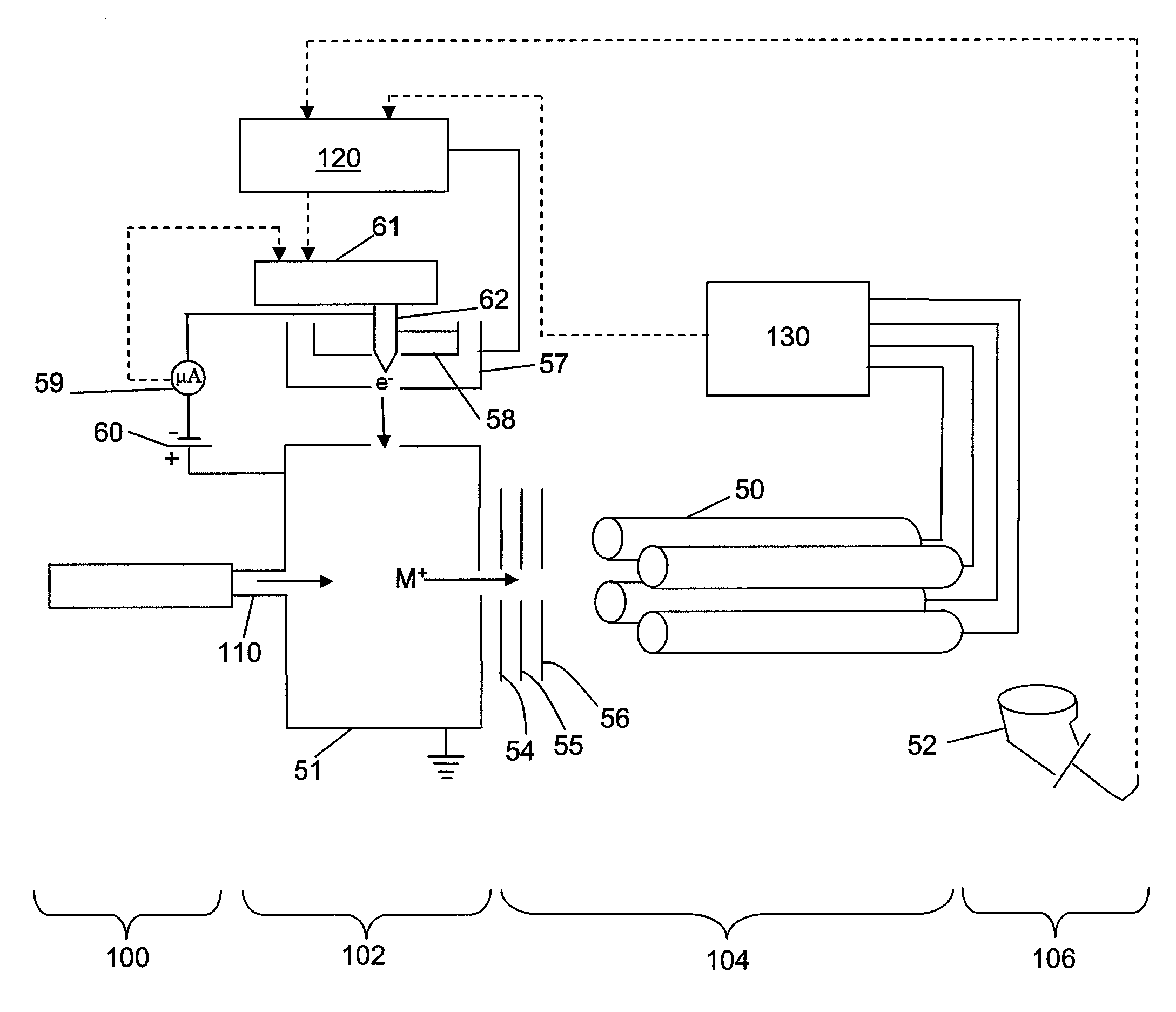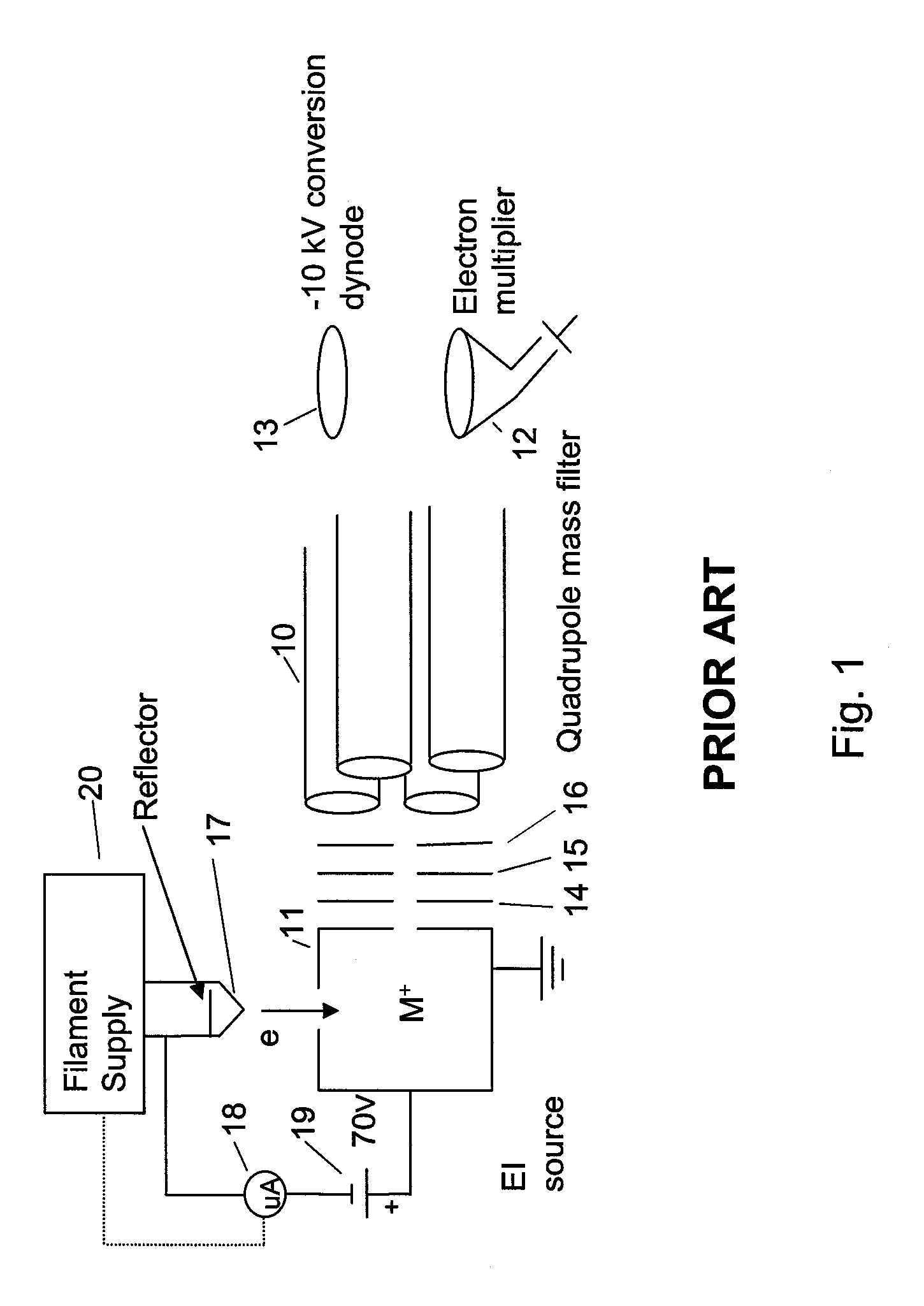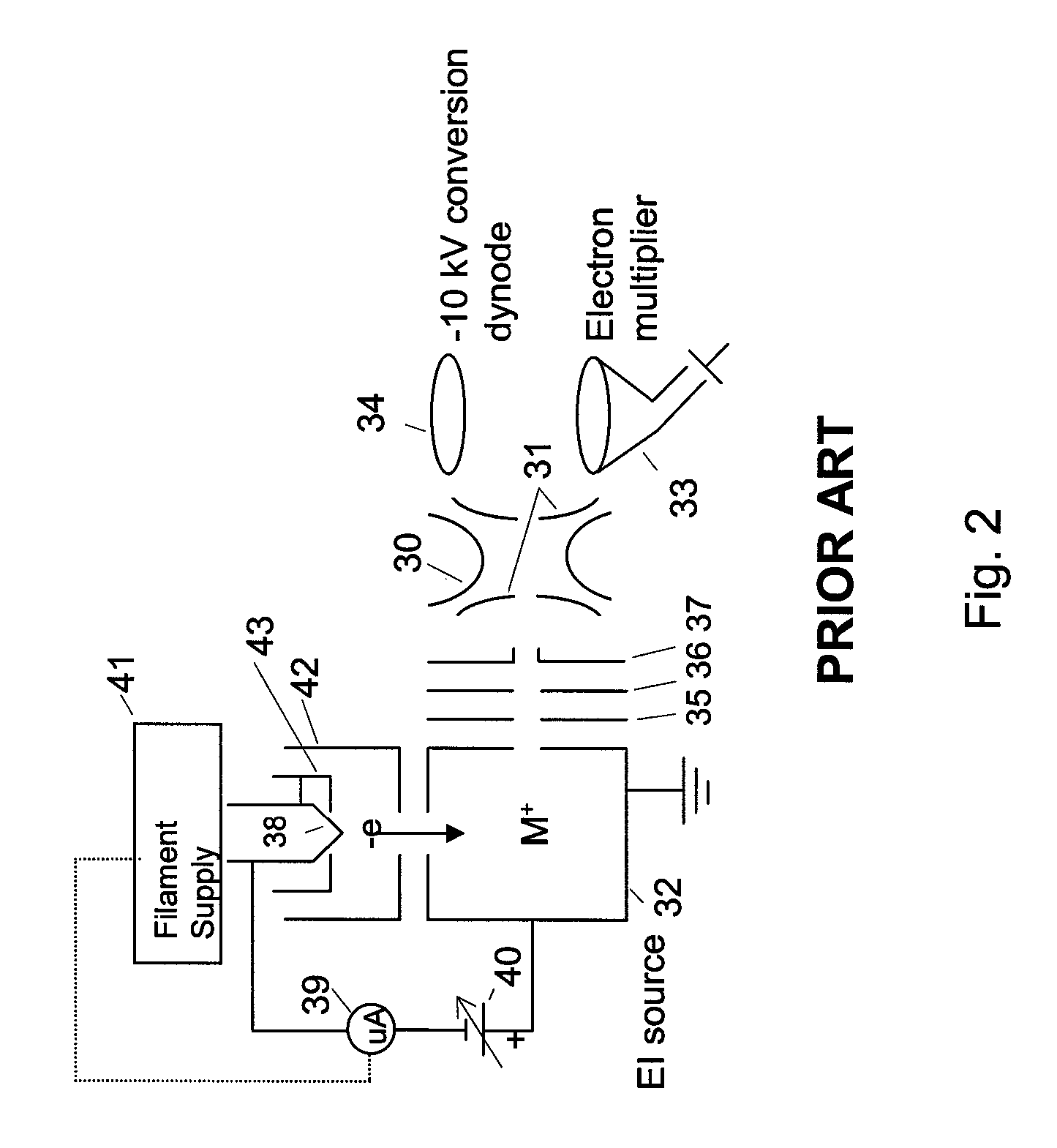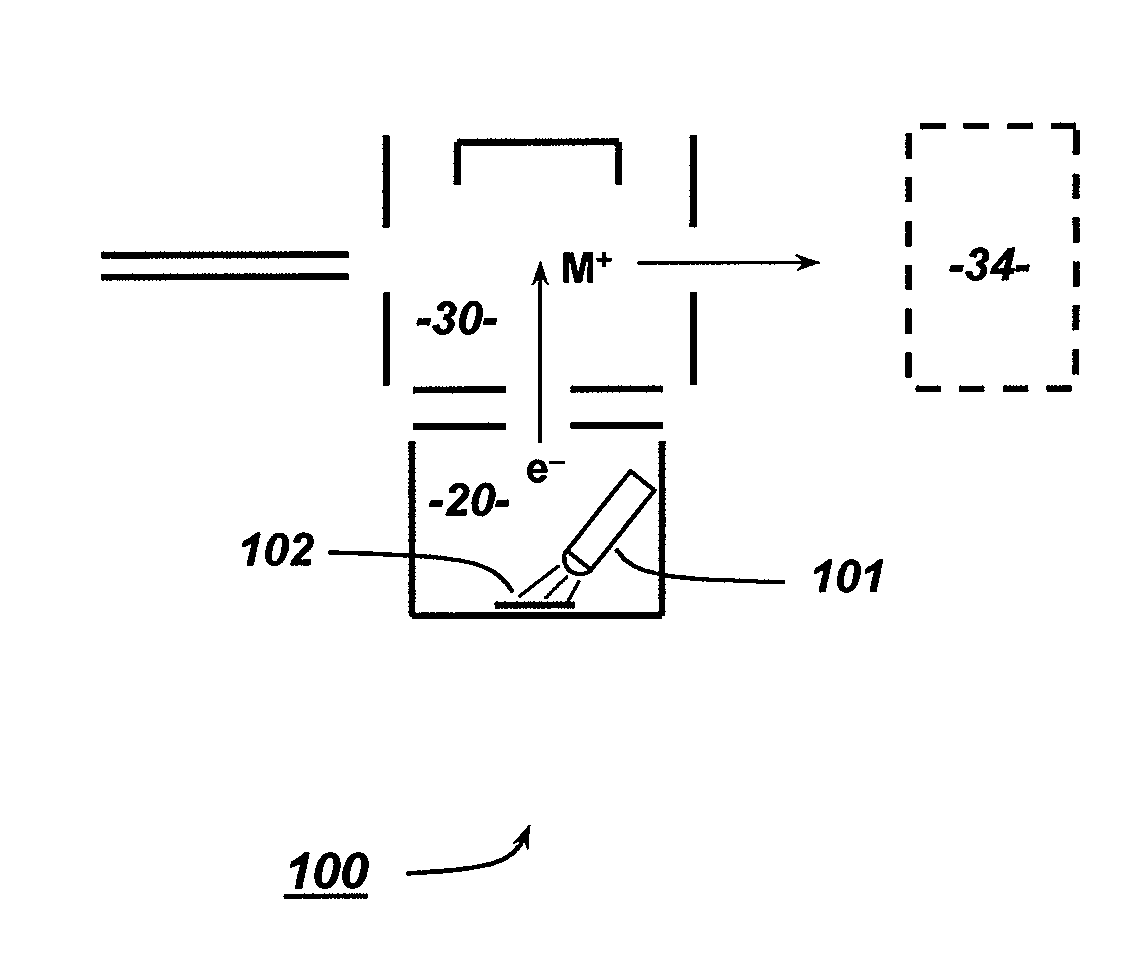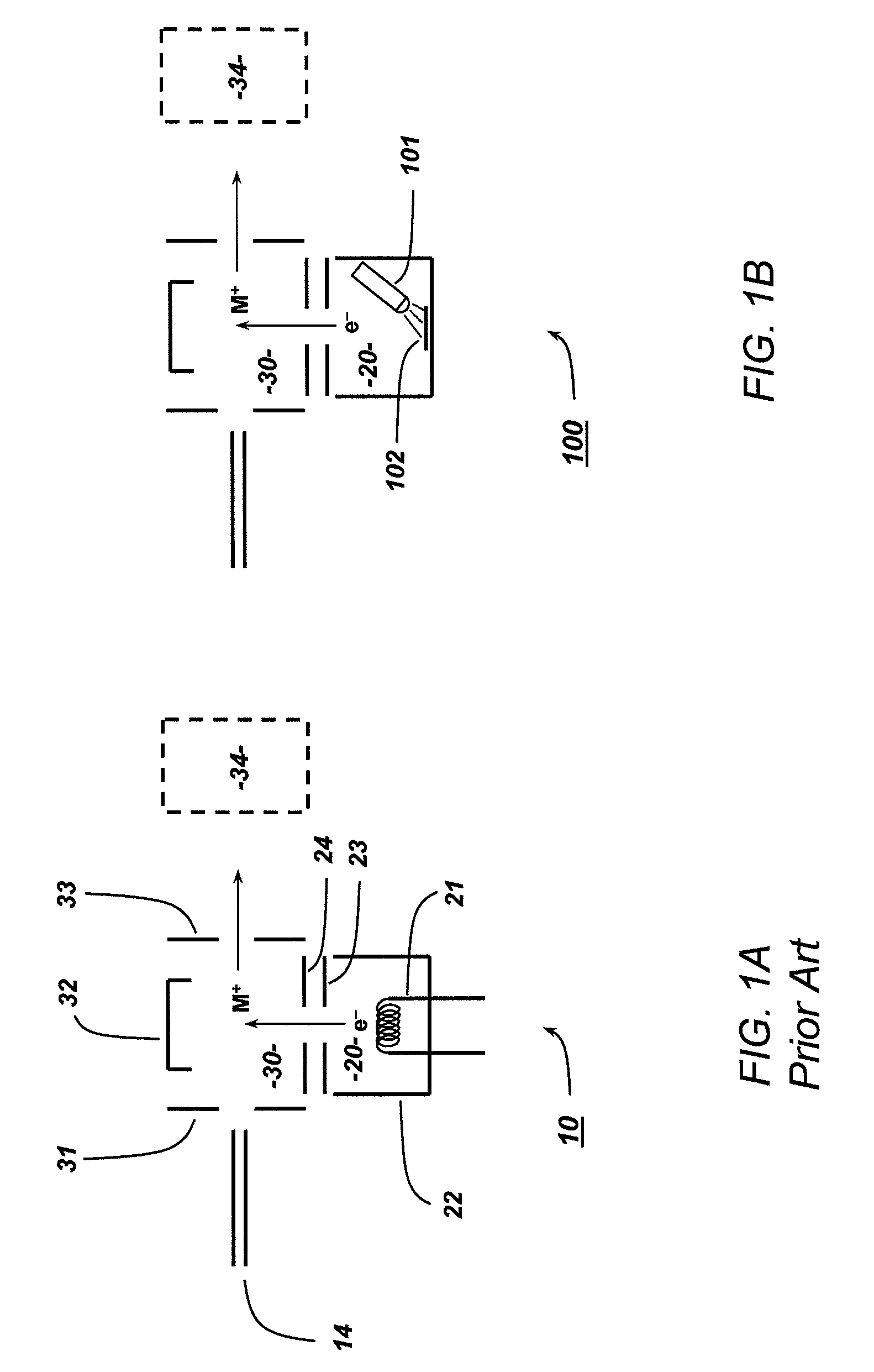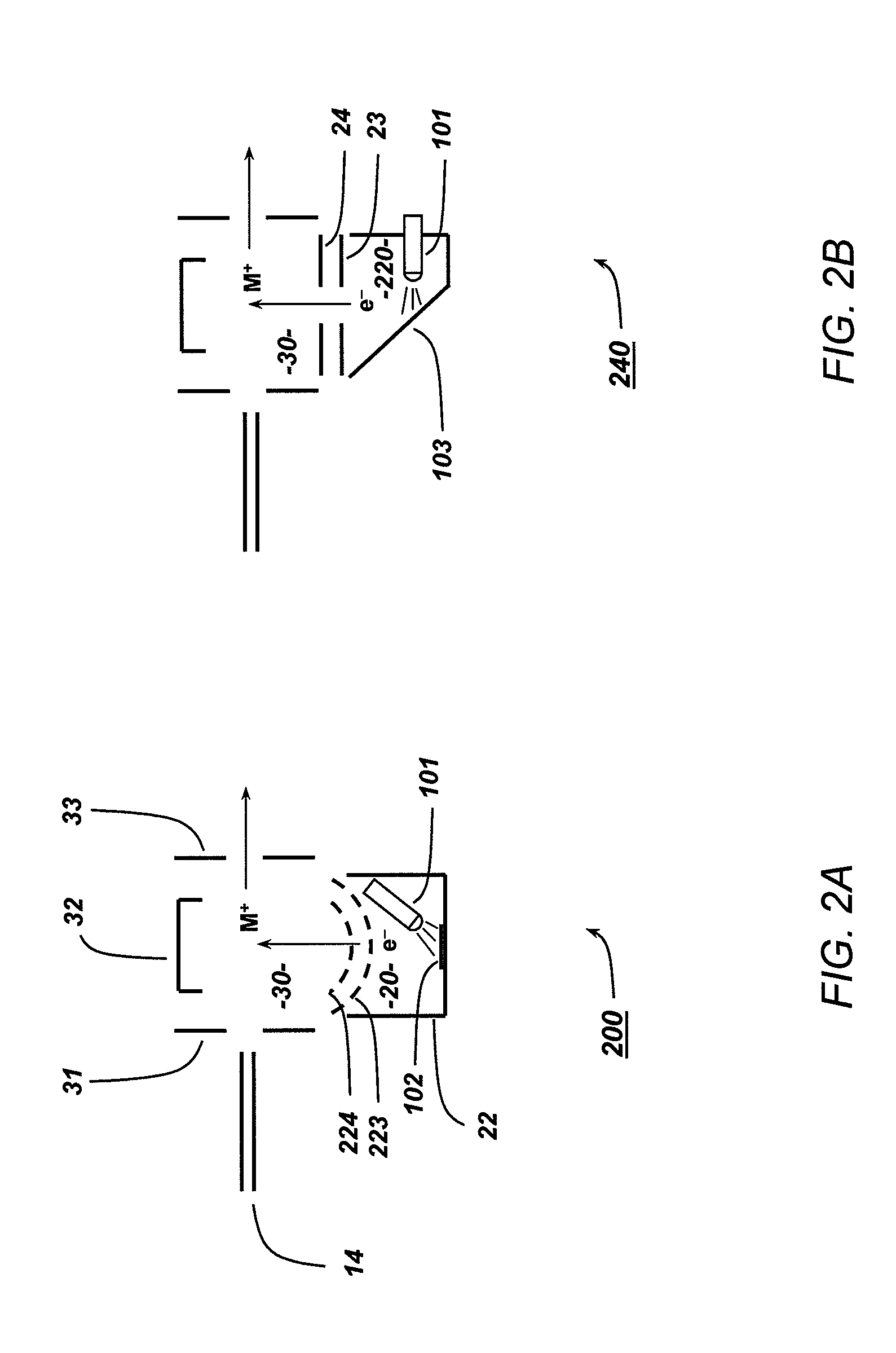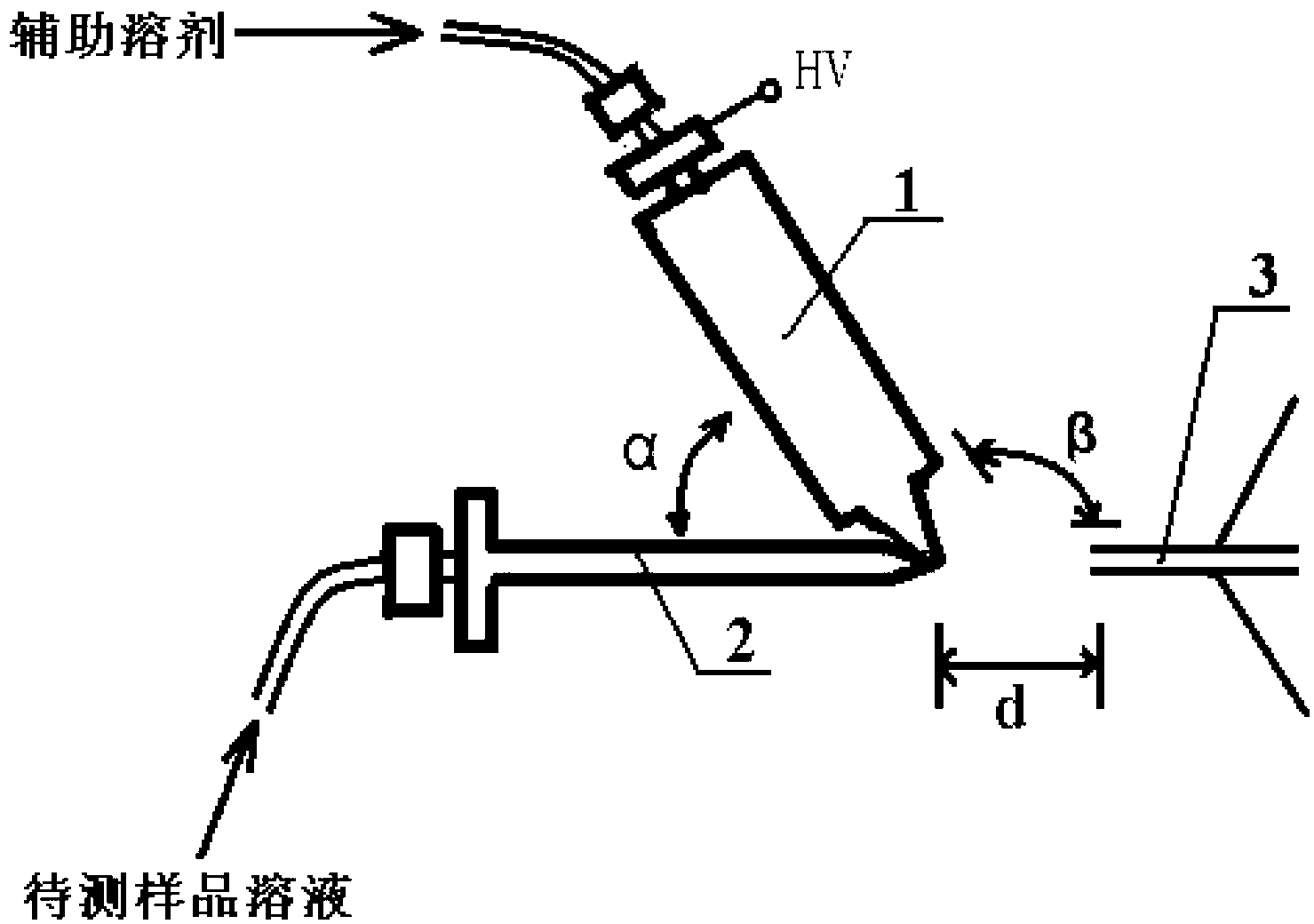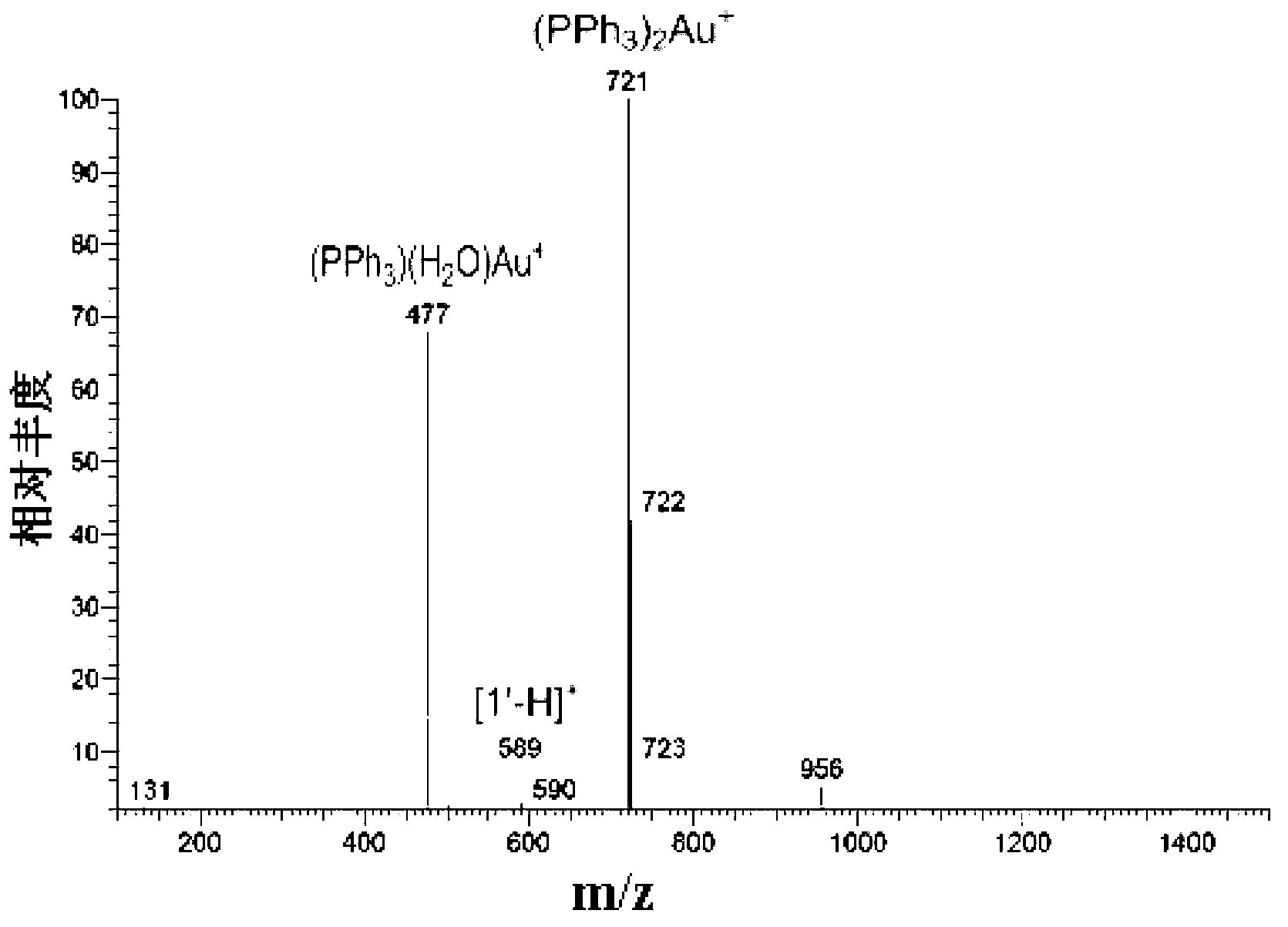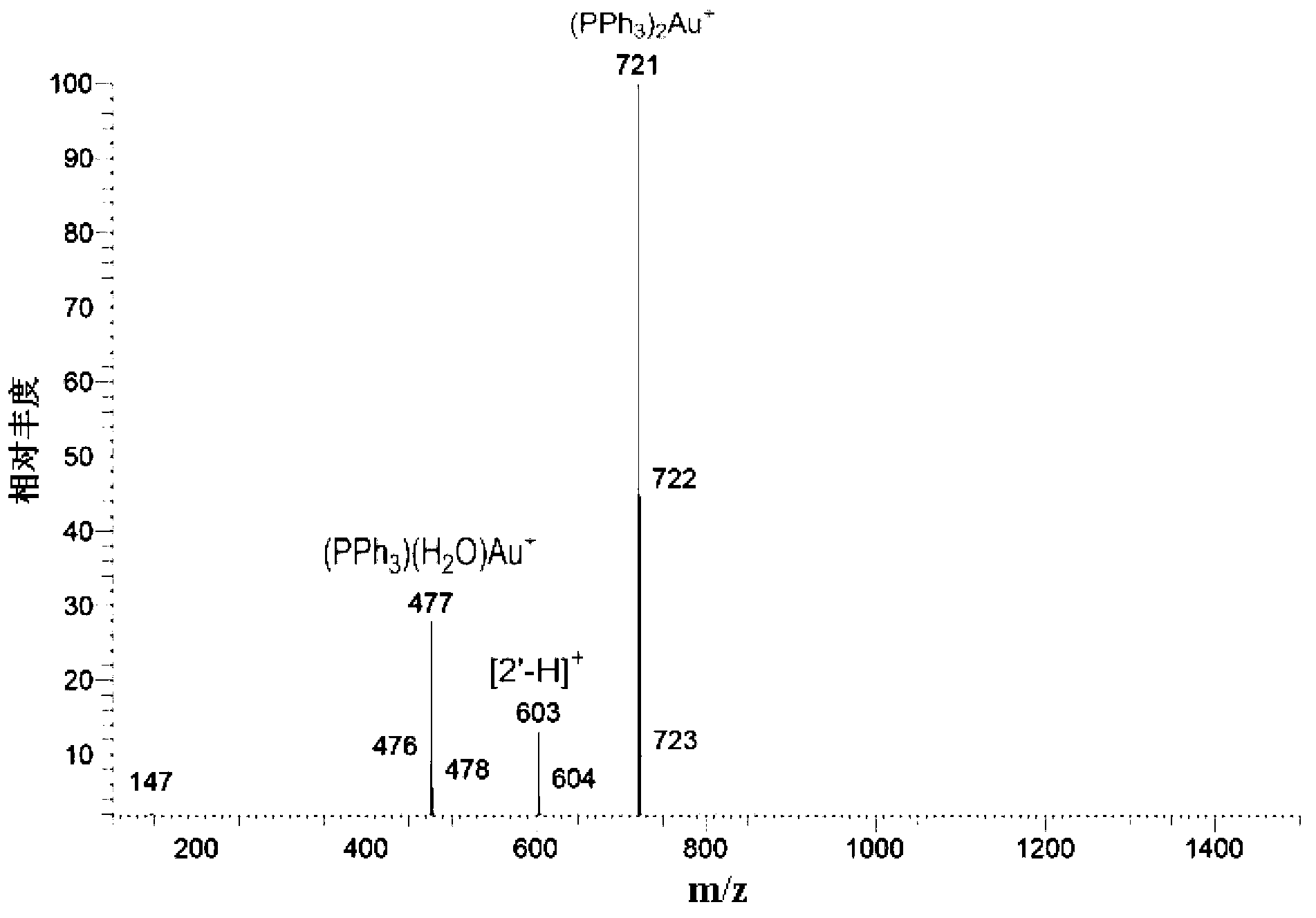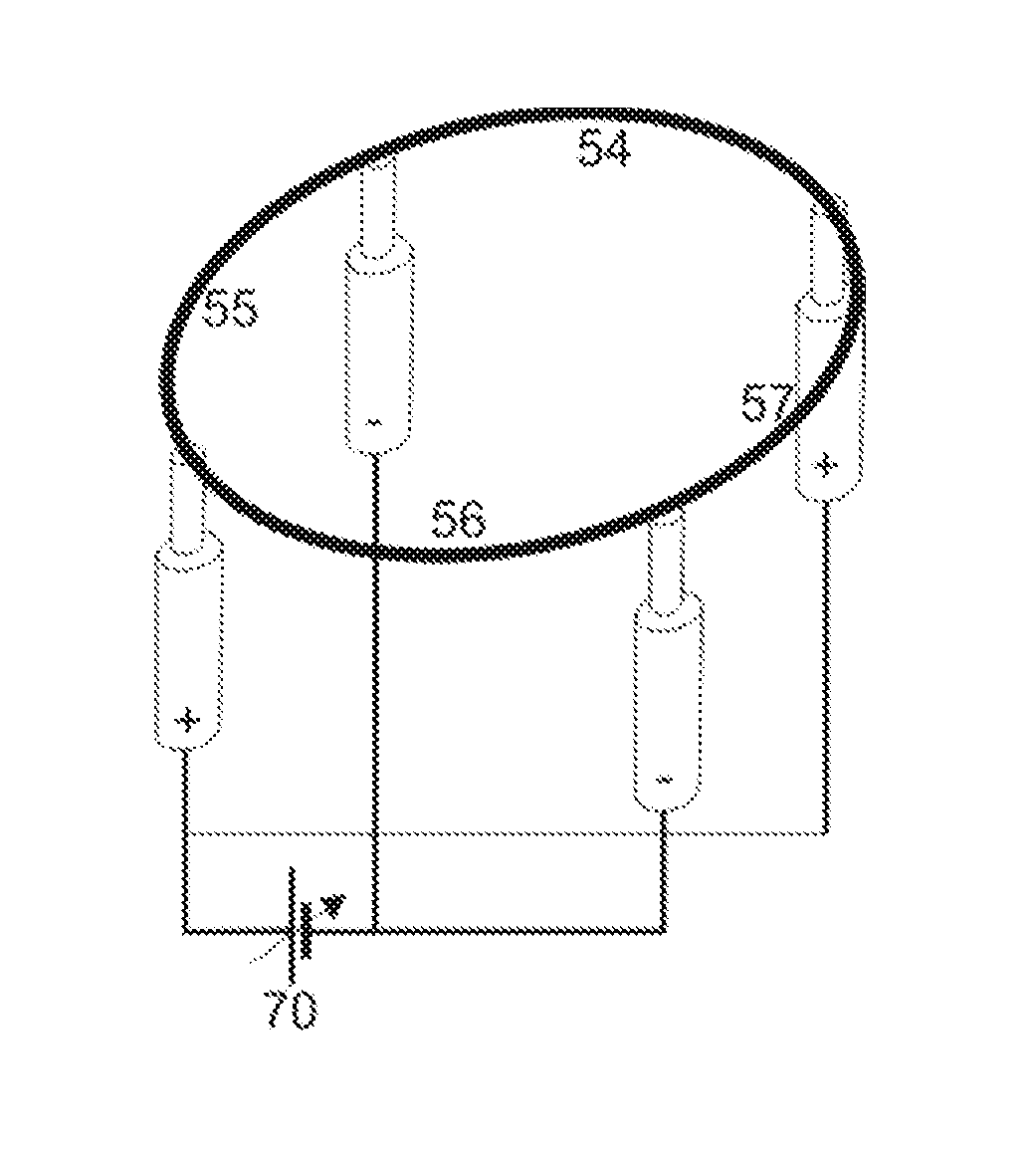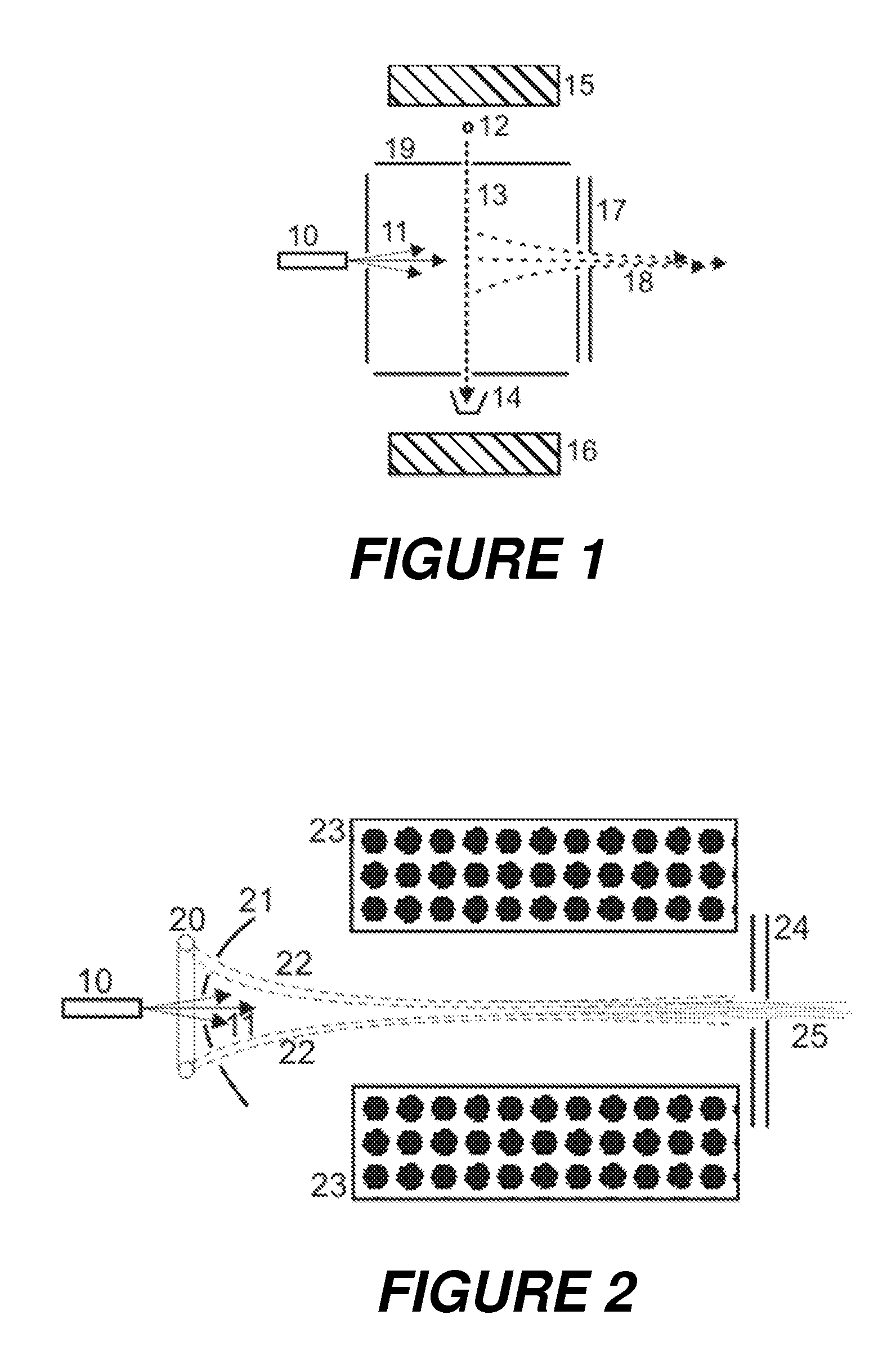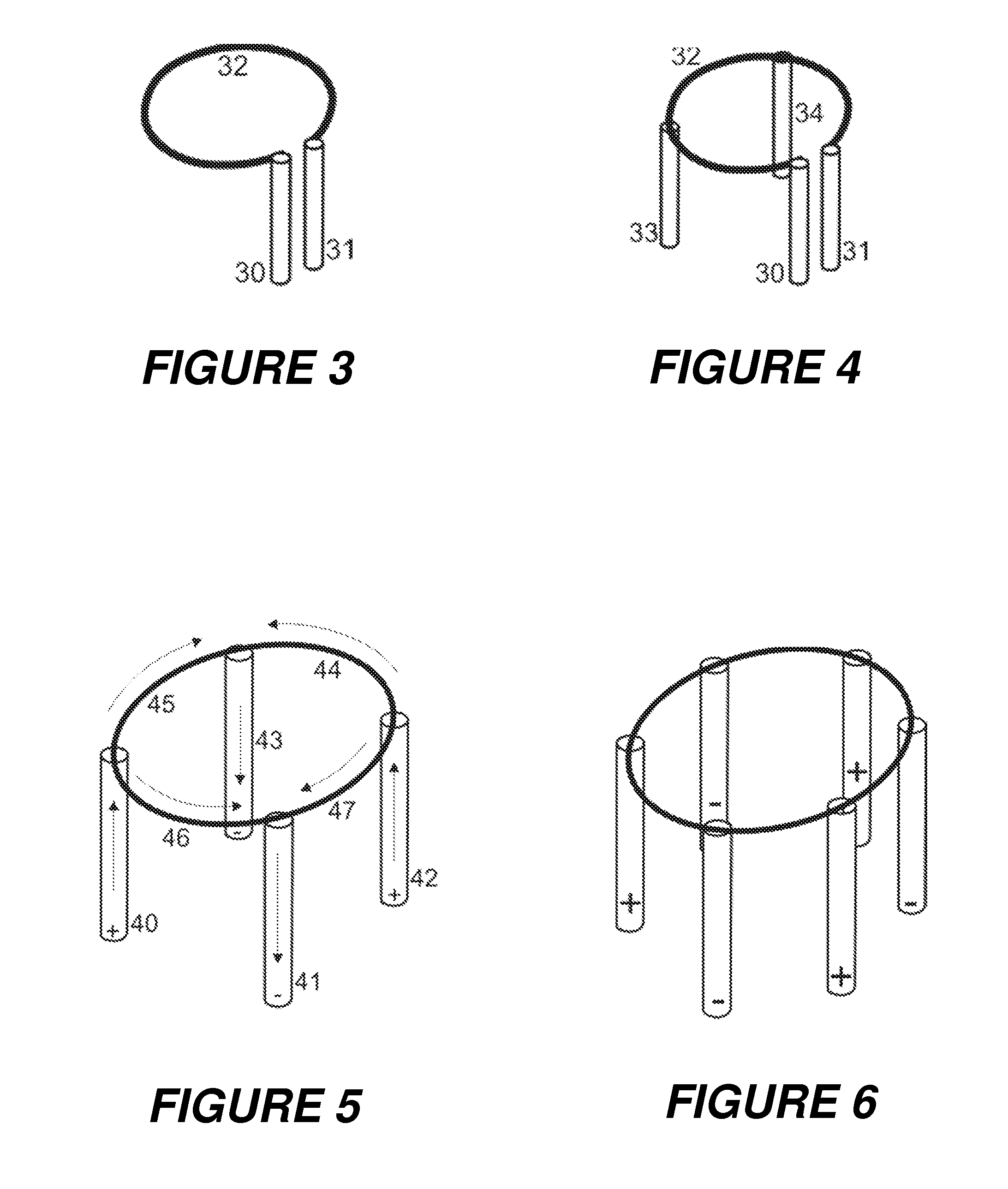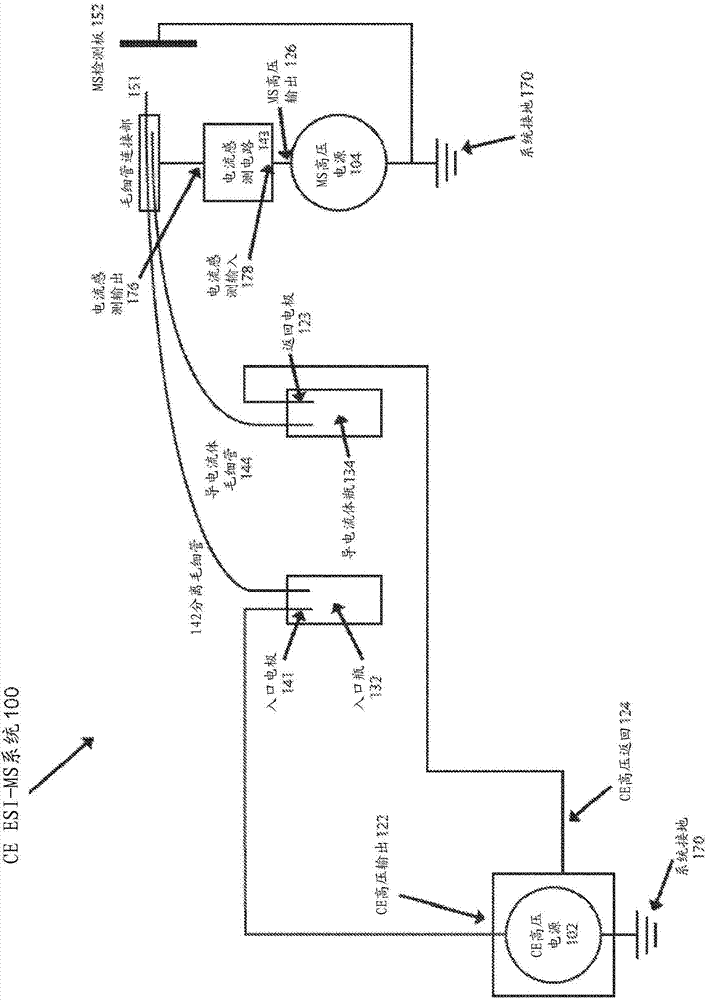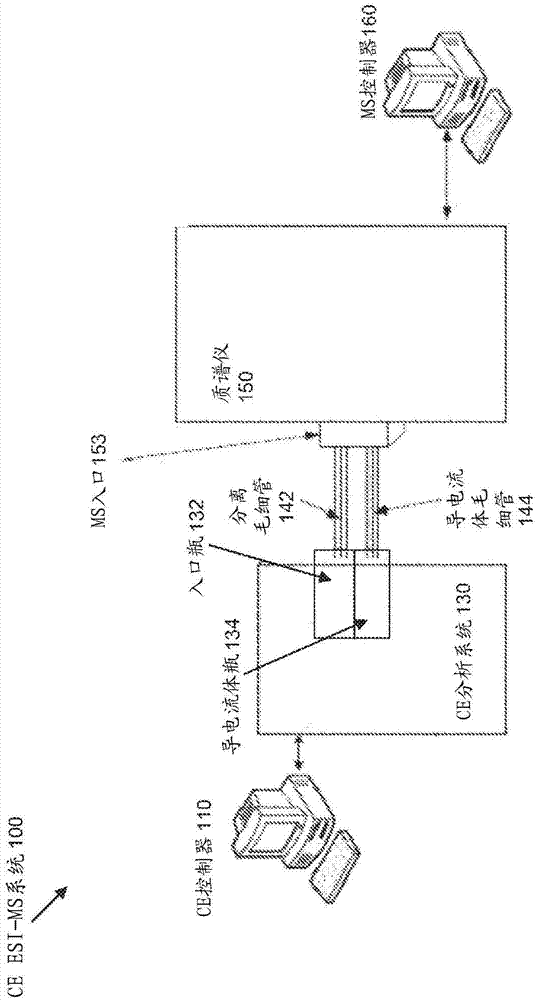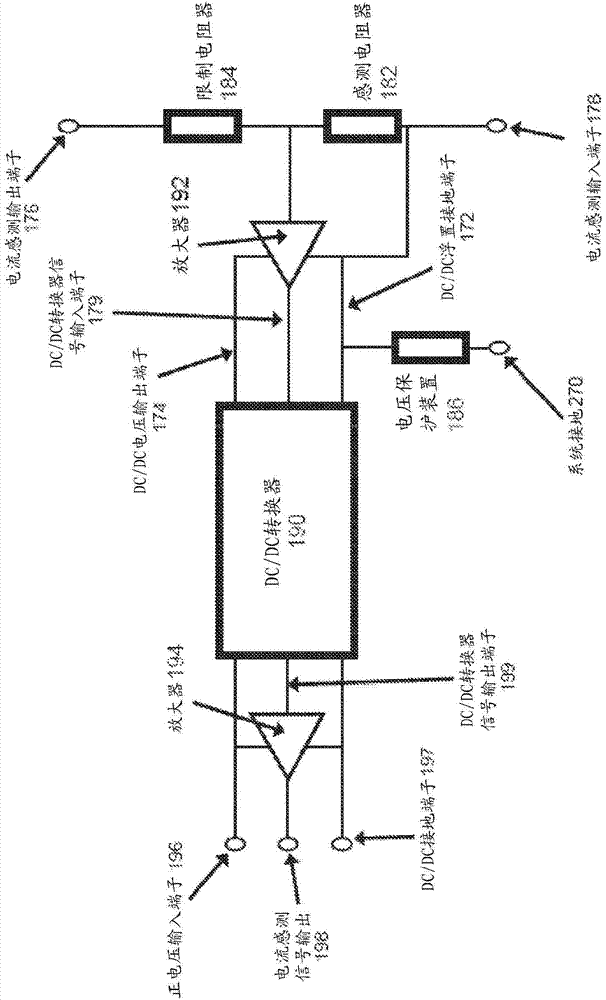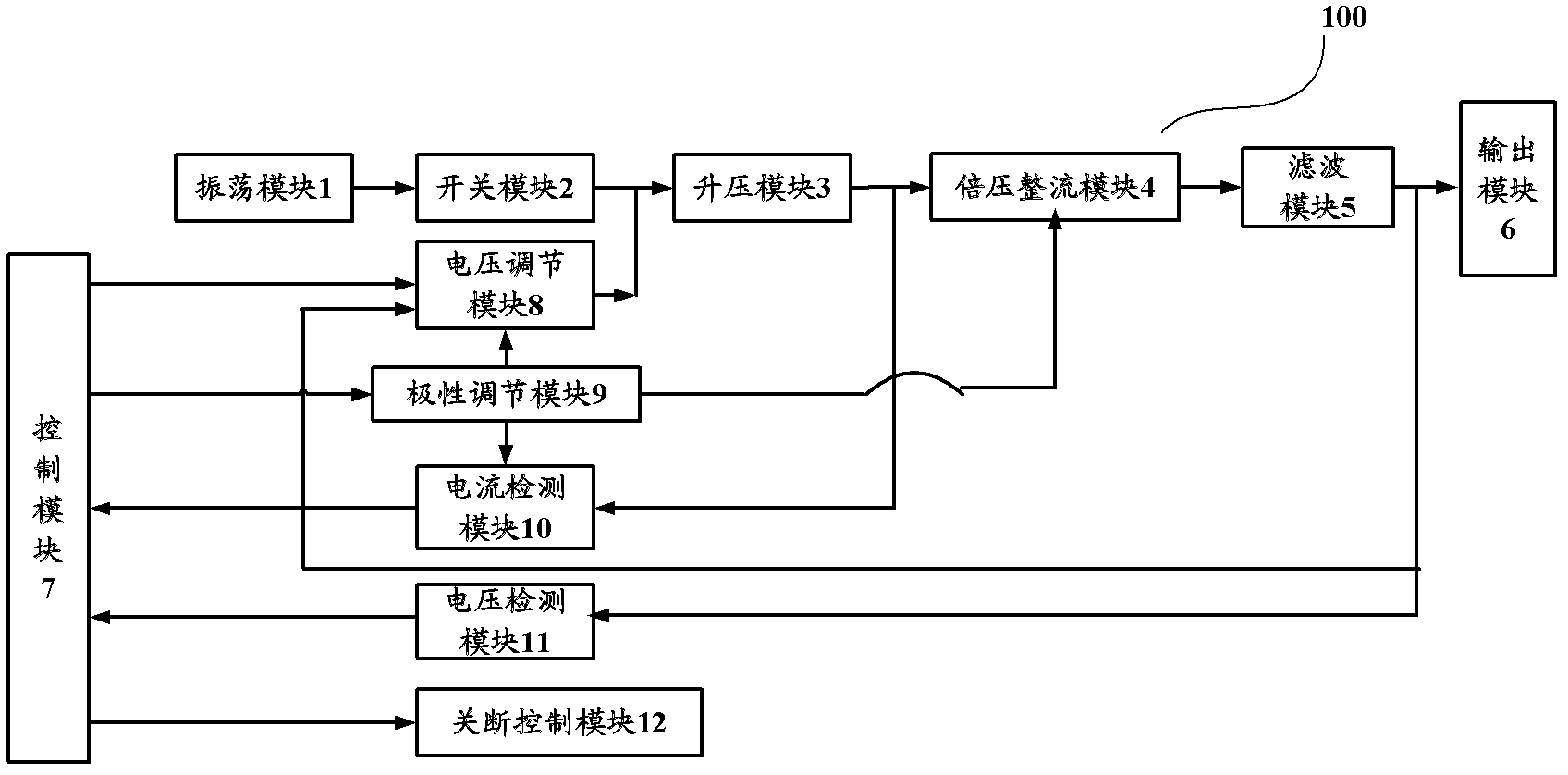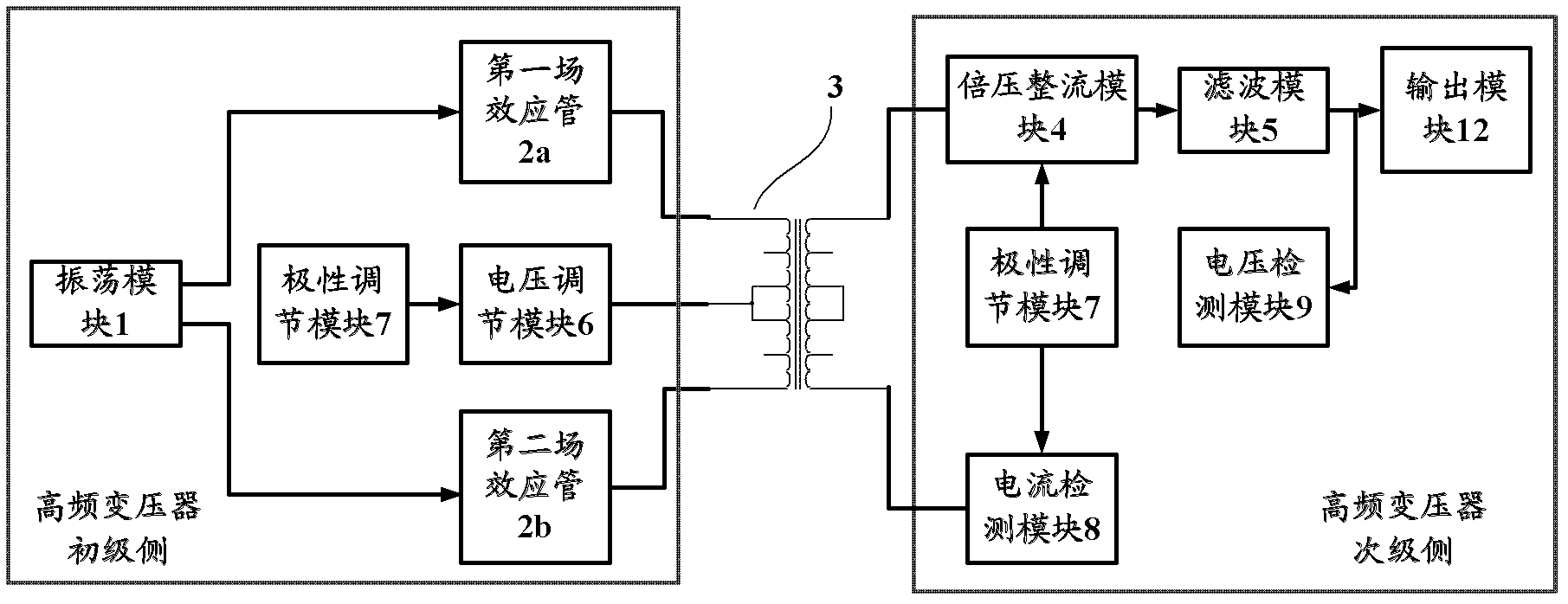Patents
Literature
Hiro is an intelligent assistant for R&D personnel, combined with Patent DNA, to facilitate innovative research.
138 results about "Electron ionization" patented technology
Efficacy Topic
Property
Owner
Technical Advancement
Application Domain
Technology Topic
Technology Field Word
Patent Country/Region
Patent Type
Patent Status
Application Year
Inventor
Electron ionization (EI, formerly known as electron impact ionization and electron bombardment ionization) is an ionization method in which energetic electrons interact with solid or gas phase atoms or molecules to produce ions. EI was one of the first ionization techniques developed for mass spectrometry. However, this method is still a popular ionization technique. This technique is considered a hard (high fragmentation) ionization method, since it uses highly energetic electrons to produce ions. This leads to extensive fragmentation, which can be helpful for structure determination of unknown compounds. EI is the most useful for organic compounds which have a molecular weight below 600. Also, several other thermally stable and volatile compounds in solid, liquid and gas states can be detected with the use of this technique when coupled with various separation methods.
Electronic human breath filtration device
InactiveUS7392806B2Improve efficiencyEfficient fermentationBreathing filtersFire rescueFiltrationEngineering
A battery powered portable human body carrying electronic human breath filtration device is an electronic nose mask and is the most ideal alternative to conventional filter paper type nose mask. It utilizes electronic ionization technique and electrostatic field to remove air borne particles, dust, pollens, contaminants, bacteria, viruses, toxic chemical, fume and tobacco smoke from human inhalation and exhalation breath. It interacts with human breathing action as the air flow driving system to move the inhalation and exhalation breaths through the electronic filter elements, in addition to a front louver cover and a rear louver cover's protection as pre-filters. The system requires very low running current and uses small batteries usually found in household electronics. This filtration system is light weight with negligible air flow resistance and is integrated into the nose mask which is connected to a pocket size control system via a connection cable.
Owner:YUEN PETER SILTEX +1
Carbon nanotube electron ionization sources
InactiveUS20050098720A1Reduce in quantityEasy CalibrationMaterial nanotechnologyNanoinformaticsCarbon nanotubeIonization chamber
Owner:THERMO ELECTRON A DE
Mass spectrometer method and apparatus for analyzing a sample in a solution
InactiveUS7247495B2Fast and reliable identificationHigh sensitivityComponent separationSamples introduction/extractionSpray nozzleMass analyzer
The invention provides a mass spectrometric method for analyzing a sample in a solution, including the steps of directing a flow of a solution containing sample compounds to be analyzed towards a supersonic nozzle having an input end and an output end; vaporizing the solution and sample prior to its expansion from the output end of said supersonic nozzle; allowing expansion of the vaporized sample and solution from said supersonic nozzle into a vacuum system, forming a supersonic molecular beam with vibrationally cold sample molecules; ionizing the vaporized sample compounds with electrons while contained as vibrationally cold molecules in said supersonic molecular beam; mass analyzing the ions formed from said sample compounds; detecting said ions formed from said sample compounds after mass analysis, and processing the data obtained from the resulting mass spectral information, for identifying and / or quantifying the chemical content of said sample. The invention also provides apparatus for analyzing a sample in a solution.
Owner:AMIRAV AVIV
Capillary separated vaporization chamber and nozzle device and method
There is provided a capillary separated vaporization chamber and nozzle method and device for improved electron ionization liquid chromatography mass spectrometry of samples in a supersonic molecular beam. The device includes a vaporization chamber located upstream of a supersonic nozzle; a capillary separating the vaporization chamber and the supersonic nozzle, means for spray formation from sample in a flowing liquid; a vacuum system into which the supersonic nozzle induces supersonic expansion of the vaporized sample compounds and solvent vapor, for forming a supersonic molecular beam with vibrationally cold sample molecules and vaporized solvent; flythrough electron ionization ion source; mass analyzer; an ion detector and means for data processing of the resulting mass spectral information, for identifying and / or quantifying the chemical content of the sample.
Owner:AMIRAV AVIV
Atmospheric pressure ion source performance enhancement
InactiveUS20090095899A1Increases Electrospray MS signalReduce signalingParticle spectrometer methodsIsotope separationPerformance enhancementGas phase
Electrospray ionization sources interfaced to mass spectrometers have become widely used tools in analytical applications. Processes occurring in Electrospray (ES) ionization generally include the addition or removal of a charged species such as H+ or other cation to effect ionization of a sample species. Electrospray includes ionization processes that occur in the liquid and gas phase and in both phases ionization processes require a source or sink for such charged species. Electrolyte species, that aid in oxidation or reduction reactions occurring in Electrospray ionization, are added to sample solutions in many analytical applications to increase the ion signal amplitude generated in Electrospray and detected by a mass spectrometer (MS) Electrolyte species that may be required to enhance an upstream sample preparation or separation process may be less compatible with the downstream ES processes and cause reduction in MS signal New Electrolytes have been found that increase positive and negative polarity analyte ion signal measured in ESMS analysis when compared with analyte ESMS signal achieved using more conventional electrolytes The new electrolyte species increase ES MS signal when added directly to a sample solution or when added to a second solution flow in an Electrospray membrane probe. It has also been found that running the ES membrane probe with specific Electrolytes in the second solution of the ES membrane probe have been found to enhance ESMS signal compared to using the same electrolytes directly in the sample solution being Electrosprayed The new electrolytes can be added to a reagent ion source configured in a combination Atmospheric pressure ion source to improve ionization efficiency.
Owner:WHITEHOUSE CRAIG M +2
Carbon nanotube electron ionization sources
ActiveUS6885010B1Reduce in quantityEasy CalibrationMaterial nanotechnologyLamp incadescent bodiesLight beamIonization chamber
An ion source for use in a mass spectrometer includes an electron emitter assembly configured to emit electron beams, wherein the electron emitter assembly comprises carbon nanotube bundles fixed to a substrate for emitting the electron beams, a first control grid configured to control emission of the electron beams, and a second control grid configured to control energies of the electron beams; an ionization chamber having an electron-beam inlet to allow the electron beams to enter the ionization chamber, a sample inlet for sample introduction, and an ion-beam outlet to provide an exit for ionized sample molecules; an electron lens disposed between the electron emitter assembly and the ionization chamber to focus the electron beams; and at least one electrode disposed proximate the ion-beam outlet to focus the ionized sample molecules exiting the ionization chamber.
Owner:THERMO ELECTRON A DE
Atmospheric pressure ion source probe for a mass spectrometer
ActiveUS20110031392A1Short timeImprove efficiencyIon sources/gunsIsotope separationMass analyzerSpectrometer
An ion source able to ionize both liquid and gaseous vapors from interfaced liquid separation techniques and a solids / liquid atmospheric pressure (AP) probe. The liquid effluents are ionized by electrospray ionization, photoionization or atmospheric pressure chemical ionization and the vapors released from a probe device placed in a heated gas stream in the AP source are ionized by a corona or Townsend electrical discharge or photoionization. The source has the ability to ionize compounds from both liquid and solid sources, which facilitates ionization of volatile and semivolatile compounds by applying heat from a gas stream as well as highly non-volatile compounds infused by electrospray or separated by liquid chromatography or capillary electrophoresis.
Owner:M&M MASS SPEC CONSULTING
Electrospray ion source and mass spectrometer
ActiveCN102709147AReduce consumptionReduce usageSamples introduction/extractionIon sources/gunsEngineeringVacuum chamber
The invention discloses an electrospray ion source, which comprises a hollow capillary tube, a vacuum chamber, electrodes and a direct-current power supply. One end of the hollow capillary tube is used as a sampling end, the other end of the hollow capillary tube is used as an electrospray nozzle, the nozzle and the sampling end are arranged in different pressure environments, the nozzle extends into the vacuum chamber, the pressure for the nozzle is lower than the pressure for the sampling end, the electrodes are arranged in the vacuum chamber and behind the nozzle and are provided with a channel for electrospray to pass through, and the direct-current power supply is applied between the hollow capillary tube and the electrodes. The electrospray ion source can be used as a simple ionization device to generate stable ion flow, and is particularly suitable for use as an ion source of a portable mass spectrometer, and the true real-time online field detection and analysis and electrospray ionization can be realized.
Owner:SHENZHEN GRADUATE SCHOOL TSINGHUA UNIV
Delivery of Low Pressure Dopant Gas to a High Voltage Ion Source
InactiveUS20080220596A1Ionization suppressionReduce the impactMaterial analysis by optical meansSemiconductor/solid-state device manufacturingDelivery systemHigh voltage
A system for delivery of low-pressure dopant gas to a high-voltage ion source in the doping of semiconductor substrates, in which undesired ionization of the gas is suppressed prior to entry into the high-voltage ion source, by modulating electron energy upstream of the high-voltage ion source so that electron acceleration effects are reduced to below a level supporting an electronic ionization cascade. The gas delivery system in a specific application includes a gas flow passage, a voltage generator electrically coupled with at least a portion of the gas flow passage to impose an electric field thereon, and an obstructive structure that is deployed to modulate acceleration length of electrons of the low-pressure gas in relation to ionization potential of the gas, to suppress ionization in the gas flow passage.
Owner:ENTEGRIS INC
Pulsed flow modulation gas chromatography mass spectrometry with supersonic molecular beams method and apparatus
ActiveUS20080302959A1Time-of-flight spectrometersComponent separationVapor phase chromatographyMass chromatography
There is provided a pulsed flow modulation gas chromatograph mass spectrometer with supersonic molecular beams apparatus and method for improved sample analysis. The apparatus includes a gas chromatograph with an injector for the analysis of sample compounds, a first analytical column in the gas chromatograph, a sample storage, a gas pulse generator, a pressure generator, a conduit for transferring the sample compounds into a second analytical column having a different polarity than the polarity of the first analytical column, a second gas pulse generator, a transfer line for transferring the sample compounds into a supersonic nozzle, a member for adding a makeup gas to the output gas flow of the second analytical column before the supersonic nozzle, an element for reducing the flow rate of the added makeup gas, a supersonic nozzle for the expansion of the sample with the combined second analytical column and added makeup gas, a fly-through electron ionization ion source, a mass analyzer, an ion detector for the detection of the ions of the sample compounds after their mass analysis, a data processor and presenter, and a repeater for repeating the cycle of the first gas pulse of relatively high flow rate followed by the second gas pulse of intermediate flow rate.
Owner:AMIRAV AVIV
Atmospheric pressure ion source performance enhancement
InactiveUS20090095900A1Increases Electrospray MS signalMaximize analyte signalParticle spectrometer methodsIsotope separationPerformance enhancementGas phase
Electrospray ionization sources interfaced to mass spectrometers have become widely used tools in analytical applications. Processes occurring in Electrospray (ES) ionization generally include the addition or removal of a charged species such as H+ or other cation to effect ionization of a sample species. Electrospray includes ionization processes that occur in the liquid and gas phase and in both phases ionization processes require a source or sink for such charged species. Electrolyte species, that aid in oxidation or reduction reactions occurring in Electrospray ionization, are added to sample solutions in many analytical applications to increase the ion signal amplitude generated in Electrospray and detected by a mass spectrometer (MS) Electrolyte species that may be required to enhance an upstream sample preparation or separation process may be less compatible with the downstream ES processes and cause reduction in MS signal. New Electrolytes have been found that increase positive and negative polarity analyte ion signal measured in ESMS analysis when compared with analyte ESMS signal achieved using more conventional electrolytes. The new electrolyte species increase ES MS signal when added directly to a sample solution or when added to a second solution flow in an Electrospray membrane probe. It has also been found that running the ES membrane probe with specific Electrolytes in the second solution of the ES membrane probe have been found to enhance ESMS signal compared to using the same electrolytes directly in the sample solution being Electrosprayed. The new electrolytes can be added to a reagent ion source configured in a combination Atmospheric pressure ion source to improve ionization efficiency.
Owner:PERKINELMER HEALTH SCIENCES INC
Image forming apparatus
InactiveUS20060087220A1Reduce lossesSmall distribution of luminanceGas filling substance selectionDischarge tube luminescnet screensImage formationImaging equipment
An image forming apparatus in which a first substrate provided with an electron-emitting device and an image displaying member which electrons emitted from the electron-emitting device irradiate are arranged to be opposed is provided with a deflecting means deflecting the electrons emitted from the electron-emitting device and a trapping unit trapping an inert gas ionized by the electrons. Thereby, the damages of the electron-emitting device by the inert gas are prevented, and the life of an image display apparatus is aimed to be elongated.
Owner:CANON KK
Atmospheric pressure ion source probe for a mass spectrometer
ActiveUS7977629B2High analytical sensitivityPromote conversionIon sources/gunsIsotope separationMass analyzerSpectrometer
An ion source able to ionize both liquid and gaseous vapors from interfaced liquid separation techniques and a solids / liquid atmospheric pressure (AP) probe. The liquid effluents are ionized by electrospray ionization, photoionization or atmospheric pressure chemical ionization and the vapors released from a probe device placed in a heated gas stream in the AP source are ionized by a corona or Townsend electrical discharge or photoionization. The source has the ability to ionize compounds from both liquid and solid sources, which facilitates ionization of volatile and semivolatile compounds by applying heat from a gas stream as well as highly non-volatile compounds infused by electrospray or separated by liquid chromatography or capillary electrophoresis.
Owner:M&M MASS SPEC CONSULTING
Slotted electrode for high intensity discharge lamp
InactiveUS20060208635A1Reduce evaporationEasy maintenanceElectrode assembly support/mounting/spacing/insulationSolid cathode detailsMean free pathGas composition
Operation of an HID lamp may be improved by forming a glow generating recess on an exterior side the electrode. The lamp may be of standard construction with a light transmissive lamp envelope having a wall defining an enclosed volume. At least one electrode assembly is extended in a sealed fashion from the exterior of the lamp through the lamp envelope wall to be exposed at an inner end of the electrode assembly to the enclosed volume. A metal halide lamp fill is enclosed with an inert fill gas. The inner end of the electrode is formed with a recess having a least spanning dimension S and a recess depth of D where S is greater the electron ionization mean free path but less than twice the cathode fall plus negative glow distances, throughout the glow discharge phase of starting, for the chosen fill gas composition and pressure (cold).
Owner:OSRAM SYLVANIA INC
Sheathless interface for capillary electrophoresis/electrospray ionization-mass spectrometry using an in-capillary electrode
InactiveUS6863790B1Excessive movementStable currentSludge treatmentParticle separator tubesDead volumeMass analyzer
A simple and rugged sheathless interface for capillary electrophoresis / electrospray ionization-mass spectrometry (CE / ESI-MS) was designed using common laboratory tools and chemicals. The interface uses a small platinum (Pt) wire which is inserted into the CE capillary through a small hole near the terminus. The position of the wire inside the CE capillary and within the buffer solution is analogous to standard CE separation operations where the terminus of the CE capillary is placed inside a buffer reservoir along with a grounded platinum electrode. By combining the use of the in-capillary electrode interface with sharpening of the fused silica tip of the CE capillary outlet, a stable electrospray current was maintained for an extended period of time. The design was successfully applied to CE / ESI-MS separations and analysis of mixtures of peptides and proteins. A detection limit of approximately 4 femtomole (S / N=3) was achieved for detection of myoglobin utilizing a 75 mum-i.d. aminopropylsilane treated CE column and using a wide scan range of 550-1350 Da. The advantages of this new design include: (1) a stable CE and ESI current, (2) durability, (3) a reduced risk of sparking between the capillary tip and the inlet of the mass spectrometer, (4) lack of any dead volume, and (5) facile fabrication with common tools and chemicals.
Owner:INTELLECTUAL VENTURES HLDG 40
Method of and apparatus for ionizing sample gas
ActiveUS7091493B2Improve ionization efficiencyAvoid reorganizationScattering properties measurementsMaterial analysis by electric/magnetic meansNoble gasPenning ionization
Ionization efficiency is improved in Penning ionization capable of selective ionization. A metastable excited species of a rare gas is produced by introducing the rare gas into an ionization space and inducing an electrical discharge, a sample gas is introduced into the ionization space and Penning ionization is produced owing to collision between the sample gas and the metastable excited species of the rare gas. Electrons released from atoms or molecules positively ionized by Penning ionization are captured by applying a positive potential to an electron-capture electrode placed in the ionization space, and the atoms or molecules positively ionized are guided to a mass analyzer.
Owner:UNIVERSITY OF YAMANASHI
Mass spectrometric based method for sample identification
ActiveUS7345275B2Reduce in quantityMeasurement arrangements for variableDigital computer detailsIsotopeMass analyzer
There is provided a mass spectrometric based method for sample identification, including the steps of introducing sample compounds into a vacuum chamber of a mass spectrometer in a seeded supersonic molecular beam, ionizing with electrons the sample compounds, being vibrationally cold molecules, in the supersonic molecular beam during their flight through an electron ionization ion source, mass analyzing the ionized sample compounds with a mass analyzer of a mass spectrometer to obtain a mass spectrum of at least one compound in the sample, identifying the molecular ion group of isotopomers in the mass spectrum, generating various molecular elemental formulas from the identified molecular ion and a pre-allocated list of elements, reducing the number of the molecular elemental formulas by the incorporation of chemical valence considerations and constraints, calculating isotope abundances for the generated elemental formulas, comparing the calculated isotope abundances with the experimentally obtained mass spectral isotope abundance, and listing the generated elemental formulas according to their degree of matching to the experimentally obtained mass spectral isotope abundance.
Owner:AMIRAV AVIV +1
Mass spectrometric based method for sample identification
ActiveUS20060284068A1Reduce in quantityDigital computer detailsMeasurement arrangements for variableIsotopeElemental formula
There is provided a mass spectrometric based method for sample identification, including the steps of introducing sample compounds into a vacuum chamber of a mass spectrometer in a seeded supersonic molecular beam, ionizing with electrons the sample compounds, being vibrationally cold molecules, in the supersonic molecular beam during their flight through an electron ionization ion source, mass analyzing the ionized sample compounds with a mass analyzer of a mass spectrometer to obtain a mass spectrum of at least one compound in the sample, identifying the molecular ion group of isotopomers in the mass spectrum, generating various molecular elemental formulas from the identified molecular ion and a pre-allocated list of elements, reducing the number of the molecular elemental formulas by the incorporation of chemical valence considerations and constraints, calculating isotope abundances for the generated elemental formulas, comparing the calculated isotope abundances with the experimentally obtained mass spectral isotope abundance, and listing the generated elemental formulas according to their degree of matching to the experimentally obtained mass spectral isotope abundance.
Owner:AMIRAV AVIV +1
Hydrocarbon determination in presence of electron and chemical ionization
ActiveUS20110189778A1Earth material testingIsotope separationHydrocotyle bowlesioidesChemical ionization
Methods and apparatus for obtaining a mass spectrum of a sample and determining a concentration of a component of the sample by utilizing a model of chemical and electron ionization and the obtained mass spectrum.
Owner:SCHLUMBERGER TECH CORP
High stability polyionic liquid salts
ActiveUS8097721B2Ion-exchange process apparatusParticle separator tubesESI mass spectrometryStationary phase
Owner:SIGMA ALDRICH CO LLC
Downhole mass spectrometric hydrocarbon determination in presence of electron and chemical ionization
Methods and apparatus for obtaining a mass spectrum of a sample and determining a concentration of a component of the sample by utilizing a model of chemical and electron ionization and the obtained mass spectrum.
Owner:SCHLUMBERGER TECH CORP
Pulsed flow modulation gas chromatography mass spectrometry with supersonic molecular beams method and apparatus
ActiveUS7518103B2Time-of-flight spectrometersComponent separationGas liquid chromatographicMass chromatography
Owner:AMIRAV AVIV
Selective ionization using high frequency filtering of reactive ions
ActiveUS9070542B2Material analysis by electric/magnetic meansMaterial analysis by optical meansPhysical chemistryAtmospheric pressure
Selective ionization at atmospheric or near atmospheric pressure of a sample diluted in air is provided in multiple steps. Initially, components of air and / or other gas are ionized to generate reactive ions. The reactive ions are then filtered using a high frequency filter to yield selected reactive ions. Thereafter, the selected reactive ions are reacted with sample molecules of a sample being analyzed in a charge transfer process. Depending on the properties of the sample molecules, the filter may select some reactive ions to enter the sample zone and block others entirely thus controlling ion chemistry and charge transfer yields in the sample zone. The described system is directed to controlling ions at the ion source level, using a high frequency filter technique, in connection with subsequent analysis. The method generates the ions of choice for subsequent analysis in such platforms as ion mobility and differential mobility spectrometers.
Owner:LEIDOS SECURITY DETECTION & AUTOMATION INC
Selective ionization using high frequency filtering of reactive ions
ActiveUS20130264475A1Material analysis by electric/magnetic meansMaterial analysis by optical meansPhysical chemistryAtmospheric pressure
Selective ionization at atmospheric or near atmospheric pressure of a sample diluted in air is provided in multiple steps. Initially, components of air and / or other gas are ionized to generate reactive ions. The reactive ions are then filtered using a high frequency filter to yield selected reactive ions. Thereafter, the selected reactive ions are reacted with sample molecules of a sample being analyzed in a charge transfer process. Depending on the properties of the sample molecules, the filter may select some reactive ions to enter the sample zone and block others entirely thus controlling ion chemistry and charge transfer yields in the sample zone. The described system is directed to controlling ions at the ion source level, using a high frequency filter technique, in connection with subsequent analysis. The method generates the ions of choice for subsequent analysis in such platforms as ion mobility and differential mobility spectrometers.
Owner:LEIDOS SECURITY DETECTION & AUTOMATION INC
Pulsed Ion Source for Quadrupole Mass Spectrometer and Method
ActiveUS20080087816A1Preserve detection limitImprove dynamic rangeParticle separator tubesIsotope separationIonic strengthContinuous beam
A variable duty cycle ion source assembly is coupled to a continuous beam mass spectrometer. The duty cycle can be adjusted based on previous scan data or real time sampling of ion intensities during mass analysis. This provides the ability to control the total number of ions formed, mass analyzed and detected for each ion mass of interest. The frequency of the ion source can be sufficiently high (kHz range) so as to maintain accurate peak centroiding. The ion source assembly can be used for both electron ionization (EI) or chemical ionization (CI) modes of operation.
Owner:THERMO FINNIGAN
Photoemission induced electron ionization
A monitor that can detect at least one molecule. The monitor includes a housing with a passage that can receive a sample, and a photocathode that is located within the housing. The monitor also includes a first ultraviolet light source that can direct ultraviolet light onto the photocathode to create electrons that ionize molecules within the sample, and a detector that is coupled to the housing to detect at least one ionized molecule. The monitor enables electron ionization (EI) of a sample for chemical analysis without the disadvantages of current methods that use a hot filament or other thermal cathode devices.
Owner:RAPISCAN SYST INC (US)
Solvent auxiliary electrospray ionization device and method for achieving electrospray ionization by utilizing same
ActiveCN103258711ASuppress interferenceImprove ionization efficiencySamples introduction/extractionIon sources/gunsESI mass spectrometryChemical reaction
The invention discloses a solvent auxiliary electrospray ionization device and a method for achieving electrospray ionization by utilizing the same. The device comprises an electrospray channel and a sample leading-in channel, an included angle between the axis of the electrospray channel and the axis of the sample leading-in channel is an acute angle, an included angle between the axis of the electrospray channel and the axis of the mass spectrum sample feeding channel is an acute angle, the axis of the electrospray channel, the axis of the sample leading-in channel and the axis of the mass spectrum sample feeding channel are intersected in the same plane, and the tip end of the electrospray channel is contacted with the tip end of the sample leading-in channel. The method for achieving electrospray ionization by utilizing the device comprises the steps of enabling auxiliary solvent to flow into the electrospray channel; enabling solution of a sample to be tested to be lead into the electrospray channel; when the auxiliary solvent is mixed with the solution of the sample to be tested, removing the solvent through electrospray. The solvent auxiliary electrospray ionization device and the method for achieving electrospray ionization by utilizing the solvent auxiliary electrospray ionization device not only can be applied to mass spectrometry of chemical reactions in electrospray-unfriendly solvent, but also can be compatible with commonly used mass spectrometers, and is strong in practicality.
Owner:SHANGHAI INST OF ORGANIC CHEM CHINESE ACAD OF SCI
Filament for mass spectrometric electron impact ion source
The invention provides a cathode system for an Electron Ionization (EI) source comprising a filament and current supply posts, the current supply posts dividing the filament into segments and each current supply post supplying or returning the current for at least two segments of the filament. Each filament segment is connected, for instance by spot welding, to the supply posts delivering the heating current. The filament segments may be arranged in a row, or substantially parallel to each other. Filament segments arranged in a row may form a closed loop, for instance, a ring. Other embodiments encompass the filament shape of a helical coil.
Owner:BRUKER DALTONIK GMBH & CO KG
Leakage Current Sense Circuit For Error Detection In An Improved Capillary Electrophoresis-Electrospray Ionization-Mass Spectrometry System
ActiveCN104335322ASpectrometer circuit arrangementsMaterial analysis by electric/magnetic meansEngineeringHigh pressure
Aspects of the present innovations relate to improved systems that may perform capillary electrophoresis (CE) and CE in conjunction with electrospray ionization (ESI) as an input to a mass spectrometry system (MS). Embodiments may use a current sense circuit at a high voltage output from an MS-ESI power supply in conjunction with additional elements to identify fault conditions associated with leakage current, to confirm the continuity of CE connections, and to provide improved system protection.
Owner:BECKMAN COULTER INC
Electron spray ionization (ESI) source and controllable high-voltage direct current power supply for ESI source
ActiveCN103035471AStable high voltageStable strong electric fieldIon sources/gunsElectricitySelf-oscillation
The invention discloses a controllable high-voltage direct current power supply for an ESI source. The controllable high-voltage direct current power supply comprises an oscillating module, a switching module, a boosting module, a voltage-multiplying rectifying module, a filtering module and an output module, wherein the oscillating module is used for conducting self-oscillation and generating switching signals, the switching module is used for conducting alternate connection under the control of switching signals to output initial alternating voltage, the boosting module is used for boosting the initial alternating voltage to obtain second alternating voltage, the voltage-multiplying rectifying module is used for boosting the second alternating voltage according to a preset multiple and rectifying the boosted voltage to output direct voltage, the filtering module is used for filtering the direct voltage, and the output module is used for outputting the filtered direct voltage. The invention also discloses the ESI source. According to the controllable high-voltage direct current power supply and the ESI source, the high voltage and a strong electric field are provided for the ESI source, so that the ionizing efficiency of samples and the transmission efficiency of produced ions can be greatly improved.
Owner:JIANGSU SKYRAY INSTR
Features
- R&D
- Intellectual Property
- Life Sciences
- Materials
- Tech Scout
Why Patsnap Eureka
- Unparalleled Data Quality
- Higher Quality Content
- 60% Fewer Hallucinations
Social media
Patsnap Eureka Blog
Learn More Browse by: Latest US Patents, China's latest patents, Technical Efficacy Thesaurus, Application Domain, Technology Topic, Popular Technical Reports.
© 2025 PatSnap. All rights reserved.Legal|Privacy policy|Modern Slavery Act Transparency Statement|Sitemap|About US| Contact US: help@patsnap.com
